12 Historical Speeches Nobody Ever Heard
By lucas reilly | jan 1, 2013.
For every speech, there are a bunch of versions that ended up on the writers' room floor. Here are 12 speeches that were written but, for a variety of reasons, never delivered.

1. “In Event of Moon Disaster”
As the world nervously waited for Neil Armstrong and Buzz Aldrin to land on the moon, Nixon speechwriter William Safire penned a speech in case the astronauts were stranded in space. The memo was addressed to H.R. Haldeman, Nixon’s Chief of Staff, and includes chilling directions for the president, NASA, and clergy in case something went awry.

Here's the text:
IN EVENT OF MOON DISASTER: Fate has ordained that the men who went to the moon to explore in peace will stay on the moon to rest in peace. These brave men, Neil Armstrong and Edwin Aldrin, know that there is no hope for their recovery. But they also know that there is hope for mankind in their sacrifice. These two men are laying down their lives in mankind’s most noble goal: the search for truth and understanding. They will be mourned by their families and friends; they will be mourned by their nation; they will be mourned by the people of the world; they will be mourned by a Mother Earth that dared send two of her sons into the unknown. In their exploration, they stirred the people of the world to feel as one; in their sacrifice, they bind more tightly the brotherhood of man. In ancient days, men looked at stars and saw their heroes in the constellations. In modern times, we do much the same, but our heroes are epic men of flesh and blood. Others will follow, and surely find their way home. Man’s search will not be denied. But these men were the first, and they will remain the foremost in our hearts. For every human being who looks up at the moon in the nights to come will know that there is some corner of another world that is forever mankind.
2. Eisenhower’s “In Case of Failure” Message
General Dwight D. Eisenhower sounded confident before the Normandy Invasion. “This operation is planned as a victory, and that’s the way it’s going to be. We’re going down there, and we’re throwing everything we have into it, and we’re going to make it a success,” he said.
Operation Overlord was a massive campaign—an invasion of 4000 ships, 11,000 planes, and nearly three million men. Despite a year of strategizing and a boatload of confidence, Eisenhower had a quiet plan in case his mission failed. If the armada couldn’t cross the English Channel, he’d order a full retreat. One day before the invasion, he prepared a brief speech just in case:

"Our landings in the Cherbourg-Havre area have failed to gain a satisfactory foothold and I have withdrawn the troops. My decision to attack at this time and place was based on the best information available. The troops, the air and the Navy did all that bravery and devotion to duty could do. If any blame or fault attaches to the attempt it is mine alone."
Although the allies suffered about 12,000 casualties—with an estimated 4900 U.S. troops killed—155,000 successfully made it ashore, with thousands more on the way. Within a year, Germany would surrender.
3. Wamsutta James’s 1970 Plymouth Anniversary Speech
The people of Plymouth, Massachusetts wanted to celebrate. It was the 350th anniversary of the arrival of the Pilgrims, and a day of festivities was planned. For the celebration dinner, organizers invited Wamsutta James—a descendent of the Wampanoag—to speak. They hoped James would give a cheery address recounting the friendly Pilgrim-Indian relationship. But James was not interested in that airbrushed version of history:
"It is with mixed emotion that I stand here to share my thoughts. This is a time of celebration for you—celebrating an anniversary of a beginning for the white man in America. A time of looking back, of reflection. It is with a heavy heart that I look back upon what happened to my People."
From there, James debunked a slew of cultural myths. The relationship between Pilgrims and Native Americans was always uneasy, he said. Wampanoag ancestors had lived in New England for nearly 10,000 years before the Europeans had arrived. But, in just a few years, the newcomers had brought disease and gobbled up land. The relationship eventually burst in 1675, when King Philip’s War erupted, decimating the Native American population and Wampanoag culture.
"History wants us to believe that the Indian was a savage, illiterate, uncivilized animal. A history that was written by an organized, disciplined people, to expose us as an unorganized and undisciplined entity. Two distinctly different cultures met. One thought they must control life; the other believed life was to be enjoyed, because nature decreed it. Let us remember, the Indian is and was just as human as the white man. The Indian feels pain, gets hurt, and becomes defensive, has dreams, bears tragedy and failure, suffers from loneliness, needs to cry as well as laugh. He, too, is often misunderstood."
When James submitted his address for approval, the organizers rejected it. They asked him to read a speech prepared by a public relations writer instead. James walked away.
4. “I Don’t Feel Like Resigning”

With swaths of damning evidence around him and no support behind him, Richard Nixon stared into a television camera August 8, 1974, and announced his resignation. It wasn’t supposed to be that way. That was Plan B.
A few days earlier, Nixon’s speechwriter, Raymond Price, prepared two drafts for that address. In one—titled “Option B”—Nixon announced his resignation. In the other speech, he vowed to fight for his job. Here’s an excerpt:
“Whatever the mistakes that have been made—and there are many—and whatever the measure of my own responsibility for those mistakes, I firmly believe that I have not committed any act of commission or omission that justifies removing a duly elected official from office. If I did believe that I had committed such an act, I would have resigned long ago. . .” “If I were to resign, it would spare the country additional months consumed with the ordeal of a Presidential impeachment and trial. But it would leave unresolved the questions that have already cost the country so much in anguish, division and uncertainty. More important, it would leave a permanent crack in our Constitutional structure: it would establish the principle that under pressure, a President could be removed from office by means short of those provided by the Constitution.”
Shortly after the speech was written, the “smoking gun” was released—a tape-recording of Nixon’s plan to halt the FBI’s Watergate investigation. His political support evaporated overnight. Impeachment became a certainty: “Option B” was the only option left.
5. JFK’s Dallas Trade Mart Speech
It was late November 1963, and President Kennedy had begun a two-day, five-city tour of Texas. After a speedy 13-minute flight from Fort Worth, a motorcade picked up JFK at the Dallas airport and took him on a ten-mile tour through downtown. The president was bound for the Trade Mart, where he was scheduled to speak at a luncheon. He never made it.
Here’s a short excerpt of Kennedy’s undelivered Trade Mart speech.
“There will always be dissident voices heard in the land, expressing opposition without alternatives, finding faults but never favor, perceiving gloom on every side and seeking influence without responsibility. Those voices are inevitable. But today other voices are heard in the land—voices preaching doctrines wholly unrelated to reality, wholly unsuited to the sixties, doctrines which apparently assume that words will suffice without weapons, that vituperation is as good as victory and that peace is a sign of weakness. . . We cannot expect that everyone, to use the phrase of a decade ago, will ‘talk sense to the American people.’ But we can hope that few people will listen to nonsense. And the notion that this Nation is headed for defeat through deficit, or that strength is but a matter of slogans, is not but just plain nonsense.
That day, Americans sorely needed to hear Kennedy’s unread closing:
“[Our] strength will never be used in pursuit of aggressive ambitions—it will always be used in pursuit of peace. It will never be used to promote provocations—it will always be used to promote the peaceful settlement of disputes.”
A second undelivered Dallas speech, for the Texas Democratic Committee in Austin, can be found here .
6. Anna Quindlen’s 2000 Villanova Commencement Address
Pulitzer-Prize winning journalist Anna Quindlen had already written Villanova’s keynote speech when protests at the Catholic university began to roil. A handful of students disagreed with Quindlen’s views on abortion, and the issue boiled over so badly that Quindlen bowed out from the event. Although never delivered, her speech “A Short Guide to a Happy Life” has been widely circulated on the internet:
“Get a life. A real life, not a manic pursuit of the next promotion, the bigger paycheck, the larger house. . . Get a life in which you notice the smell of salt water pushing itself on a breeze over Seaside Heights, a life in which you stop and watch how a red-tailed hawk circles over the water gap or the way a baby scowls with concentration when she tries to pick up a Cheerio with her thumb and first finger. "And realize that life is the best thing ever, and that you have no business taking it for granted. . . It is so easy to waste our lives: our days, our hours, our minutes. It is so easy to take for granted the color of azaleas, the sheen of the limestone on Fifth Avenue, the color of our kid’s eyes, the way the melody in a symphony rises and falls and disappears and rises again. It is so easy to exist instead of live.”
7. Condoleezza Rice’s 9/11 Address

Getty Images
On September 11, 2001, Condoleezza Rice was slated to deliver a speech at Johns Hopkins University, addressing “the threats and problems of today and the day after.” Terrorists made their own statement that morning, forcing Rice to scrap her speech.
In 2004, excerpts from Rice’s address leaked to The Washington Post . The speech did not mention Al Qaeda or Osama Bin Laden. Rather, it promoted missile defense as an upgraded security strategy. Of the few lines released publicly, one read:
“We need to worry about the suitcase bomb, the car bomb, and the vial of sarin released in the subway [but] why put deadbolt locks on your doors and stock up on cans of Mace then decide to leave your windows open?”
8. Ninoy Aquino Jr’s Last Remarks
Philippine Senator Benigno Aquino Jr. was not a fan of President Ferdinand Marcos. When Aquino stirred up the political pot, Marcos’s regime—ruled by martial law—tossed Aquino in jail. Years later, Aquino made his way out of prison and exiled himself in the United States. In 1983, upon hearing that life in the Philippines was getting worse, Aquino returned home to help. He came armed with a stirring speech:
“I have returned on my free will to join the ranks of those struggling to restore our rights and freedoms through nonviolence. I seek no confrontation. I only pray and will strive for a genuine national reconciliation founded on justice. . . A death sentence awaits me. Two more subversion charges, both calling for death penalties, have been filled since I left three years ago and are now pending with the courts. . . I return voluntarily armed only with a clear conscience and fortified faith that in the end justice will emerge triumphant. According to Gandhi, the willing sacrifice of the innocent is the most powerful answer to insolent tyranny that has yet been conceived by God and man.”
Aquino never read the address. Over 1000 armed soldiers awaited his landing. He was immediately arrested and, while waiting for his prison escort, was shot in the head. The assassination spurred a revolt against Marcos’s regime, which crumbled three years later.
9. JFK’s Other Cuban Missile Crisis Speech

America soiled its collective pants October 22, 1962. The country’s eyes were glued to the television as President Kennedy said what everyone feared: Cuba had missiles, and they were “capable of hitting any city in the western hemisphere.” The United States was a giant bullseye.
Kennedy announced a Cuban “quarantine,” a military blockade that restricted weapons and other materials to the island. Other options, however, were on the table—a second, more aggressive, address announced plans for an airstrike. Kennedy’s speechwriter, Ted Sorensen, didn’t write the second speech, but he did read it, and he was disturbed by its opening:
“I have ordered—and the United States Air Force has now carried out—military operations with conventional weapons to remove a major nuclear weapons build-up from the soil of Cuba.”
The alternate speech said that America would use nuclear weapons if necessary—a bold statement that never appeared in Kennedy’s televised address. It’s unknown who wrote the speech and if Kennedy ever saw it. “There is still a minor mystery as to who, if anyone, was asked to draft an alternative speech announcing and justifying an air strike on the missiles,” Sorensen later wrote.
10. Romney’s 47 Percent Fixer-Upper

Rick Friedman/Corbis
When Mitt Romney’s “47 percent” comments leaked in September, his campaign scrambled for a fix. A flurry of press conferences followed as the Romney camp tried to patch the damage. Later in September, an undelivered speech was leaked to the Wall Street Journal . Here’s a taste of what it said:
“One tragedy of the Obama Presidency is how many more Americans have become dependent on the government. I know it’s not their fault. Most want to be self-sufficient, to provide for their families, they can’t because there aren’t enough jobs. . . This is a national scandal. Not because those fellow Americans are free-loaders, but because they aren’t able to get a good job that pays enough to be self-sufficient and lets them fulfill their human potential. . . I don’t want to take food stamps away from Americans in need. I want fewer Americans to need food stamps.”
11. Sarah Palin’s Victory and Concession Speeches

Sarah Palin’s relationship with John McCain was never very warm and fuzzy. The Palin and McCain camps constantly clashed along the campaign trail. As one McCain official explained in a New York Times interview, “It was a difficult relationship… McCain talked to her occasionally.”
The duo’s biggest duel occurred on election night. Palin’s speechwriter, Matthew Scully, had drawn up two speeches: a victory and concession address. Hours before the candidates took the stage, McCain’s senior staffers told Palin that she couldn’t read either. According to The Daily Beast , McCain aides “literally turned the lights out on Palin when she retook the stage later that night to take pictures with her family, fearing that she would give the concession speech after all.”
Here’s the best of Palin’s undelivered addresses:
Victory Speech:
“As for my own family, well, it’s been quite a journey these past 69 days. We were ready, in defeat, to return to a place and a life we love. And I said to my husband Todd that it’s not a step down when he’s no longer Alaska’s 'First Dude.' He will now be the first guy ever to become the 'Second Dude.'
Concession Speech:
“I told my husband Todd to look at the upside: Now, at least, he can clear his schedule, and get ready for championship title number five in the Iron Dog snow machine race!. . . But far from returning to the great State of Alaska with any sense of sorrow, we will carry with us the best of memories. . . and joyful experiences that do not depend on victory.” “America has made her choice. . . Now it is time for us go our way, neither bitter nor vanquished, but instead confident in the knowledge that there will be another day… and we may gather once more. . . and find new strength. . . and rise to fight again.”
12. FDR’s Final Words

April 12, 1945, was a beautiful day in Warm Springs, Georgia. Franklin D. Roosevelt relaxed inside his woodland cottage, the “Little White House,” and was having his portrait painted. But during lunch, a bolt of pain shot through the back of his head, causing him to collapse. By 3:35 pm, doctors had pronounced the president dead of a cerebral hemorrhage. A speech sat in FDR’s study, unread.
Roosevelt had edited the speech the night before. It was an address for Jefferson Day, a celebration of Thomas Jefferson, and was supposed to be delivered April 13 via a national radio broadcast. Here’s an excerpt of FDR’s last words to the American people:
“Let me assure you that my hand is the steadier for the work that is to be done, that I move more firmly into the task, knowing that you—millions and millions of you—are joined with me in the resolve to make this work endure. The work, my friends, is peace, more than an end of this war—an end to the beginning of all wars, yes, an end, forever, to this impractical, unrealistic settlement of the differences between governments by the mass killing of peoples. Today as we move against the terrible scourge of war—as we go forward toward the greatest contribution that any generation of human beings can make in this world—the contribution of lasting peace—I ask you to keep up your faith. . . The only limit to our realization of tomorrow will be our doubts of today. Let us move forward with strong and active faith.”
25 iconic speeches you'll want to watch on repeat
We've compiled a list of the most moving, inspirational and unforgettable public addresses. Be prepared to laugh, cry and gasp. Here are the most iconic speeches of all time.
- Sign-up to our newsletter
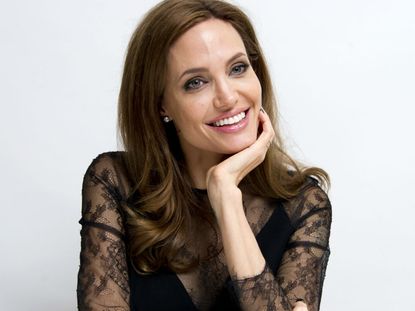
From Martin Luther King to Margaret Thatcher, prepare to be moved by the most iconic speeches of all time...
1. Martin Luther King, I Have A Dream , 1963
2. Margaret Thatcher, The Lady's Not For Turning, 1980
3. Angelina Jolie , World Refugee Day, 2009
4. Winston Churchill, We Shall Fight On The Beaches, 1940
5. Barack Obama, The Audacity Of Hope, 2004
Marie Claire Newsletter
Celebrity news, beauty, fashion advice, and fascinating features, delivered straight to your inbox!
6. President Kennedy's Inaugural Address, 1961
7. Cuba Gooding Jr, Oscars Acceptance, 1997
8. Ronald Reagan, Brandenburg Gate, 1987
9. Elizabeth Gilbert, Your Creative Genius, 2009
10. Michelle Obama at Oxford University, 2011
The First Lady gave an inspirational speech telling a group of London schoolgirls they can achieve anything and when they do, to use that power to help others. *Melts*
11. Earl Spencer, Princess Diana 's Funeral, 1997
12. Nelson Mandela, Release From Prison, 1990
13. Steve Jobs, Stanford Commencement Address, 2005
14. J. K. Rowling , Harvard Commencement Address, 2011
J. K. Rowling gave a speech entitled The Fringe Benefits Of Failure And The Importance Of Imagination
15. Hillary Clinton, Women In The World, 2012
16. Maya Angelou, On the Pulse of Morning, 1993
17. Malala Yousafzai, Worldwide Access To Education, 2013
Her bravery stunned the world, and this speech marked her 16th birthday. Malala urged all assembled to 'fund new teachers, schools, books and recommit to getting every girl and boy in school by December 2015'.
18. Sir Ken Robinson, Do Schools Kill Creativity?, 2006
19. Stephen Hawking, Questioning The Universe, 2008
20. Oprah Winfrey , Stanford Address, 2008
21. The Queen's Speech, 1957
Although the footage seems quaint now, at the time, it was groundbreaking. She said: 'I very much hope that this new medium will make my Christmas message more personal and direct'. Her speech included the historic quote: 'I cannot lead you into battle, I do not give you laws or administer justice but I can do something else, I can give you my heart and my devotion to these old islands.'
22. Sheryl Sandberg, Why We have Too Many Female Leaders, 2010
COO of Facebook Sheryl looks at why a smaller percentage of women than men reach the top of their professions and advises women on how to get to the top.
23. Baz Luhrmann, Everybody's Free, 1999
Baz's speech is our only speech that's spoken over a score music. Narrated by the actor Lee Perry, the song reached number one in the UK and features witty advice like 'Be kind to your knees – you'll miss them when they're gone.' So true.
24. Scarlett Johansson, DNC Speech, 2012
25. Sally Field, Oscars Acceptance, 1985
Famously gushing, and also misinterpreted, Sally Field's emotional speech saw her utter the lines 'I can't deny the fact that you like me, right now, you like me!'. She was parodying a line from her role in Norma Rae for which she had one the Oscar, but it went over many people's heads and the line has been satirised in many speeches since.
The leading destination for fashion, beauty, shopping and finger-on-the-pulse views on the latest issues. Marie Claire's travel content helps you delight in discovering new destinations around the globe, offering a unique – and sometimes unchartered – travel experience. From new hotel openings to the destinations tipped to take over our travel calendars, this iconic name has it covered.
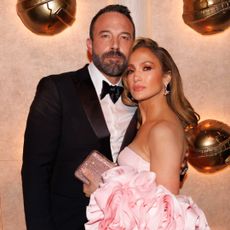
The couple has been at the centre of split speculation this week
By Jadie Troy-Pryde

By Andrea Thompson

From Audrey Hepburn's Givenchy LBD, to Faye Dunaway's runaway wardrobe and Rita Hayworth's Gilda moment, come and see the most iconic style statements to grace the big screen...
By Marie Claire
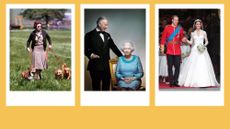
Look back at the 25 most iconic royal family photos of all time...

Marie Claire's 25th birthday party was a total blast. Come inside and see exactly what went down...
By Suzannah Ramsdale
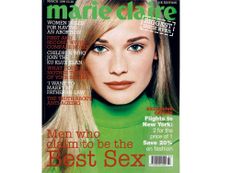
Tonight we'll be celebrating Marie Claire's 25th birthday the only way we know how: with a star-filled, ultra-glam party.
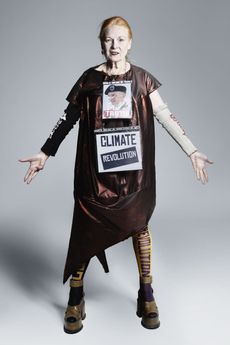
To celebrate our 25th birthday, Marie Claire asked acclaimed photographer Rankin to shoot the women who've rocked the last quarter century, with the rising stars who are following in their footsteps. Everyone from Vivienne Westwood – the grand dame of British fashion – to Bridget Jones's Diary author Helen Fielding and TV queen Davina McCall were included. You need to see these stunning images...
By Francesca Rice
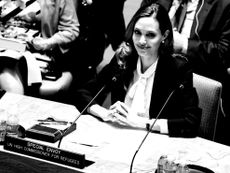
Angelina Jolie is being honoured with the Jean Hersholt Humanitarian Oscar for her incredible charity work. This 2009 speech she gave on World Refugee Day shows exactly why she deserves the award. And a dozen more.
By Rebecca Martin
- Site Archive
- Contact Future's experts
- Terms and conditions
- Advertise with us
- Privacy policy
- Cookies policy
Marie Claire UK is part of Future plc, an international media group and leading digital publisher. Visit our corporate site . © Future Publishing Limited Quay House, The Ambury, Bath BA1 1UA. All rights reserved. England and Wales company registration number 2008885.
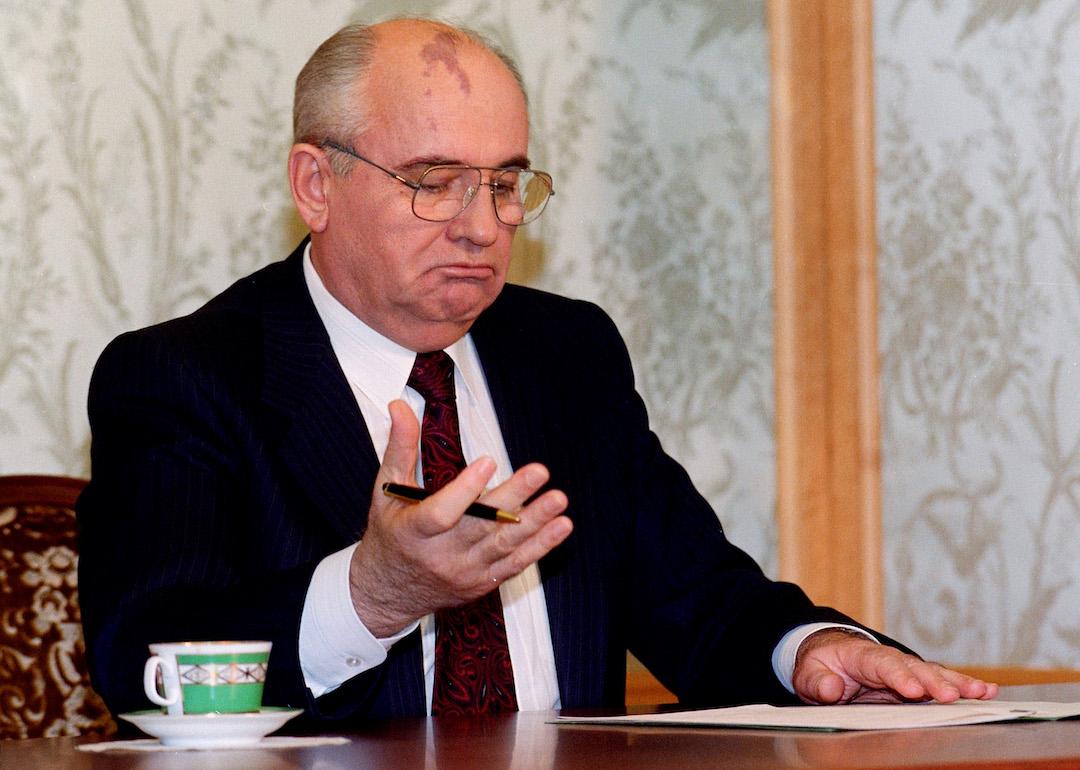
100 of the greatest speeches of the 20th century
100 greatest speeches of the 20th century.
The 20th century was one of the most varied, hopeful, and tumultuous in world history. From the Gilded Age to the beginning of the Internet Age—with plenty of stops along the way—it was a century punctuated by conflicts including two World Wars, the Cold War, the War in Vietnam, and the development of nuclear warfare. At the same time, the 20th century was characterized by a push for equality: Women in the United States received the right to vote after decades of activism, while the civil rights movement here ended the era of Jim Crow, inspired marginalized groups to take action, and introduced this country to great leaders like Martin Luther King Jr. and Malcolm X.
Hundreds of people have used their voices along the way to heal, inspire, and enact change with speeches that helped to define these poignant moments in world history. Stacker has curated a list of 100 of the greatest speeches from the 20th century, drawing from research into great American speeches as determined by 137 scholars of American public address , as well as other historical sources. What follows is a gallery of speeches from around the U.S. and the world dealing with the most pressing issues of the day. Not all images show the speech event itself, but do feature the people who gave them.
Read on to discover which American author accepted his Nobel prize under protest and whether an American president accidentally called himself a jelly donut in German.
You may also like: 50 essential civil rights speeches
#100. Maya Angelou's "On the Pulse of Morning"
Delivered Jan. 20, 1993, in Washington D.C.
Maya Angelou, a longtime supporter of the Clinton family , became the second poet (after Robert Frost in 1961), and the first African American poet, to read at a presidential inauguration. She delivered "On the Pulse of Morning" directly after President Bill Clinton gave his first address, a poem that spanned the entire history of America and ended with a hopeful "Good morning." She won the Best Spoken Word Grammy for her performance, and a new audience was introduced to her previous work with the recognition she'd gained from the performance.
#99. Robert M. La Follette's "Free Speech in Wartime"
Delivered Oct. 6, 1917, in Washington D.C.
Wisconsin Senator Robert La Follette was one of just six Senators to oppose U.S. entry into World War I and, after war was declared, an antiwar speech he gave was misleadingly portrayed in the media. As Senators threatened to expel him from the legislative body, he launched a lengthy filibuster that concluded with his rousing defense of "Free Speech in Wartime." He decisively stated that free speech during times of war was not only necessary, but that "the first step toward the prevention of war and the establishment of peace, permanent peace, is to give the people who must bear the brunt of war's awful burden more to say about it." Not everyone in the Senate was convinced, and La Follette was under investigation for treason until the end of the war.
#98. Yasser Arafat's "Gun and Olive Branch"
Delivered Nov. 13, 1974, at the UN General Assembly, New York City, N.Y.
A divisive historical figure at the center of one of the most controversial conflicts, Yasser Arafat served as the Chairman of the Palestinian Liberation Organization for nearly half a century. In 1974, he became the first non-voting member to speak in front of a plenary session of the United Nations. He declared, " Today I have come bearing an olive branch and a freedom fighter's gun . Do not let the olive branch fall from my hand." His "olive branch" appeal to peace in the long-running conflict affected the audience, slightly boosted public support for the Palestinians, and PLO was granted observer status in the international body .
#97. Audre Lorde's "Uses of Anger" keynote address
Delivered June 1981, in Storrs, Conn.
Well-known as a poet, writer, feminist, and civil rights activist, Audre Lorde wasn't afraid to critique the second-wave feminism movement for its disregard for the different ways women of color, particularly black women, suffered under the patriarchy. "Uses of Anger" was her keynote speech at the National Women's Studies Association Conference, but in it, Lorde doesn't only express rage at men and the white feminists who silence those marginalized voices. She also declares , "And I am not free as long as one person of color remains chained. Nor is anyone of you." Here and throughout she echoes the language of more inclusive intersectional feminism but also portends the modern solidarity movements between minority groups we see today.
#96. Charles de Gaulle's "Appeal of June 18"
Broadcast June 18, 19, and 22, 1940, via BBC radio
By 1940, things weren't looking great for Allied powers fighting in Europe, and in June 1940, France, one of the last remaining military powers on the continent, fell to the Nazi army. Escaping the country before a complete Nazi takeover, General Charles de Gaulle declared himself the leader of Free France (based in London), and broadcast several messages calling for resistance in his home country. He knew that "the flame of French resistance must not and shall not die," and ultimately he was proved correct four years later when France was liberated from the Nazi party. He would later become President of the French Republic.
#95. Margaret Sanger's "The Children's Era"
Delivered March 30, 1925, in New York City, N.Y.
The founder of what today is Planned Parenthood, and one of America's most famous birth control advocates, has both the reason and experience to be concerned with the plight of the country's children. In this speech at the Sixth International Neo-Malthusian and Birth Control Conference, Margaret Sanger uses the powerful imagery of turning the world into "a beautiful garden of children." This garden, she suggests, must be cultivated from a fetus' conception and lays out several criteria she thinks parents should be forced to meet before having children—echoing several eugenicist talking points popular before World War II.
#94. George C. Marshall's "Marshall Plan"
Delivered June 5, 1947, at Harvard University, Cambridge, Mass.
Following World War II, the European continent was in shambles, and after failing to negotiate German reconstruction with the Soviet Union, the United States decided it couldn't wait for the USSR to get involved before stepping in. Secretary of State George Marshall doesn't necessarily outline the specifics of the plan that today bears his name, instead calling on European leaders to accept U.S. help to rebuild (and of course, stop the spread of Communism). American journalists were kept as far away from the speech as possible because the Truman administration feared Americans wouldn't like the plan. But it was delivered and later accepted by Europe.
#93. Corazon Aquino's "Speech Before the Joint Session of the United States Congress"
Delivered: Sept. 18, 1986, in Washington D.C.
Corazon Aquino transformed from a self-described "plain housewife" to the presidency of the Philippines after the assassination of her husband Senator Benigno Aquino Jr. He was outspoken about the dictatorial rule of President Ferdinand Marcos, and Corazon took up the mantle, becoming the face of the People Power Revolution that ultimately ousted Marcos and elevated Aquino to the presidency. In this speech, the newly installed president eloquently recalls her journey thus far and reaffirms her commitment to bringing democracy and prosperity to the Filipino people.
#92. Jimmy Carter's "Energy and National Goals: Address to the Nation"
Delivered: July 15, 1979, in Washington D.C.
Energy policy is one of the signature domestic achievements of the Carter administration , reducing U.S. dependence on foreign oil and improving nuclear power in the U.S. However, President Carter's address on energy policy ended up being about more than those policies. Energy is the jumping-off point for those who have lost faith in government—who feel hopeless and fragmented. He tells these frightened people to "have faith in each other, faith in our ability to govern ourselves, and faith in the future of this nation," and that his energy policy is a start in the right direction for healing the nation.
#91. Eva Perón's "Renunciation of the Vice Presidency of Argentina"
Delivered Aug. 31, 1951, on Argentine radio
Immortalized by the people of Argentina, a Broadway musical, and a movie starring Madonna, Eva "Evita" Perón climbed from a childhood of poverty to First Lady when her husband Juan Perón became president in 1946 with the help of her campaigning. She was active as First Lady, helping women earn the right to vote, furthering her husband's Perónist movement, and meeting with the poor. She became something of a celebrity in the country, and in 1951 she announced her candidacy for the vice presidency alongside her husband, to the delight of the poor and working-class citizens she dedicated her time to. Their joy was short-lived; cancer left Perón unable to run for office, as she announces in this speech .
#90. Elizabeth Gurley Flynn's "Statement at the Smith Act Trial"
Delivered April 24, 1952, in New York City, N.Y.
The Smith Act Trial swept up huge numbers of Communist Party members and put them on trial for allegedly trying to overthrow the U.S. government. American Communist Party leader and co-founder of the American Civil Liberties Union, Elizabeth Gurley Flynn, was one of those. She represented herself, made an impassioned statement to the court about her communist beliefs, and argued that she was not, as a communist, advocating for the fall of the government. Despite her remarks, she was found guilty and sentenced to three years in prison.
#89. Ronald Reagan's "Speech on the Challenger Disaster"
Delivered: Jan. 28, 1986, via TV broadcast
The explosion of the Challenger Shuttle just seconds after took off into the sky left seven people dead, including a civilian school teacher, on the same day that President Reagan was to give the State of the Union. Instead, he called in a young speechwriter, Peggy Noonan , to write a new speech that would help the nation process the tragedy they had seen broadcast on live TV. Reagan's speech is lauded even today for its careful balance between honoring the dead while reminding listeners of the importance of exploring the vast and unknown reaches of space, a quest for exploration for which the Challenger astronauts died.
#88. Elizabeth Glaser's "Address at the 1992 Democratic National Convention"
Delivered July 14, 1992, in New York City
Elizabeth Glaser contracted HIV early in the AIDS epidemic after receiving a contaminated transfusion while giving birth; she passed it on to both her children either through breastmilk or in utero. After her daughter passed away at age seven from AIDS, Glasner and two friends started the Pediatric AIDS Foundation, and this activism led to her invitation to speak at the DNC in 1992. There, she described the issue as "not politics" but a "crisis of caring" that led the Republican administration to fail to tackle the AIDS crisis, and she called out Democrats as well to do better. She passed away from complications of the disease two years later.
#87. Theodore Roosevelt's "The Man with the Muckrake"
Delivered April 14, 1906, in Washington D.C.
Investigative journalism was booming in the first decade of the 20th century, as Progressive Era muckraking writers continued to publicize injustices to the country. These journalists had one powerful enemy: President Theodore Roosevelt, as he disliked writers who focused on bad things at the exclusion of all the good that was happening. His speech didn't call for these journalists to stop their practices of uncovering corrupt businessmen but reminded writers that their work affects public outlook and opinion, so only focusing on the worst moments could have a negative impact on the fabric of the nation.
#86. Richard Nixon's "The Great Silent Majority"
Delivered Nov. 3, 1969, in Washington D.C.
Richard Nixon was sworn into office in January 1969 after a wave of anti-Vietnam protests across the country left opposition to the war at a peak. Eleven months after he took office, Nixon gave an Oval Office speech that made clear he believed those protesting the war didn't demonstrate what most Americans actually thought about Vietnam—their opinions were just louder. He called on "the great silent majority of Americans" watching to support him in his decision. It was a gamble, but it paid off as Nixon's approval ratings shot up overnight and popularized the use of the term "silent majority," which is still used in politics today .
#85. John F. Kennedy's "Ich Bin Ein Berliner"
Delivered June 26, 1963, in West Berlin, Germany
Huge crowds thronged around the stage where President John F. Kennedy threw away the speech written by his advisers designed not to offend the Soviet Union and instead read one he'd written himself. The president demonstrated his solidarity with the citizens of the divided city by declaring, "Ich bin ein Berliner," or essentially, "I'm a citizen of Berlin in spirit." (For those who may be wondering, it's a popular myth, but JFK did not accidentally call himself a jelly donut when he called himself a Berliner.) Those who saw the speech in West Berlin, as well as those who watched it around the globe, were inspired.
#84. Rachel Carson's "A New Chapter in Silent Spring"
Delivered Jan. 8, 1963, in New York City, N.Y.
In the '60s and '70s, environmentalism sprang up as a social justice organization inspired by the civil rights movement. A seminal text was Rachel Carson's "Silent Spring," which detailed the effects of the harmful pesticide DDT. In a speech to the Garden Club of America after her book's publication, Carson discusses the importance of raising public awareness of environmental issues, the next steps for those against pesticides, and new environmental dangers emerging on the horizon.
#83. Dwight Eisenhower's "Atoms for Peace"
Delivered Dec. 8, 1953, at the UN General Assembly, New York City, N.Y.
The development of nuclear warfare gave the Cold War higher stakes and led to fears of a potential nuclear holocaust should something go wrong. In his "Atoms for Peace" speech before the UN, Eisenhower admitted that he needed to speak in a " new language...the language of atomic warfare ," and for the first time let the public know what the atomic age actually meant. Ultimately, the speech demonstrated the need for nuclear disarmament due to its destructive power; at the same time, the huge danger offered the U.S. an excuse to continue the arms race with the USSR after the Soviets refused to disarm.
#82. Eugene V. Debs' "Statement to the Court"
Delivered Sept. 18, 1918, in Girard, Kan.
Eugene V. Debs ran for president five times as a candidate for the Socialist Party but ran his final campaign in 1920 from a prison cell. Debs made an enemy of President Woodrow Wilson for his repeated speeches denouncing U.S. entry into World War I and was arrested on 10 charges of sedition. At his trial, Debs was granted permission to testify on his own behalf; the two-hour speech is remembered for its beautiful passages that moved even people who did not support him, such as in his concluding call for listeners everywhere to "take heart of hope, for the cross is bending, the midnight is passing, and joy cometh with the morning." He was sentenced to a decade in prison but only served a few years before his sentence was commuted.
#81. Margaret Chase Smith's "Declaration of Conscience"
Delivered June 1, 1950, in Washington D.C.
Joseph Welch ultimately took down Joseph McCarthy during a 1953 trial investigating communism in the Army, but he was far from the first person to attempt to end the Senator's red-scare fearmongering. Senator Margaret Chase of Maine took aim at him from the Senate to the House floor four months after he became a national figure, with a speech that endorsed " the right to criticize, the right to hold unpopular beliefs, the right to protest, [and] the right of independent thought " as fundamental to American democracy. She was joined by six other moderate Republican Senators in her rebuke, and some publications praised her for taking a stand while others dismissed her concerns. It wasn't until 1954 that the rest of the Senate took her side and formally censured McCarthy .
#80. Gloria Steinem's "Testimony Before Senate Hearings on the Equal Rights Amendment"
Delivered May 6, 1970, in Washington D.C.
While Shirley Chisholm's speech on the Equal Rights Amendment emphasized all the change its passage would bring, Gloria Steinem—a feminist, activist, and journalist—focused on the sex-based myths that she saw as the root of these problems. Among other myths she took down during her testimony, Steinem cited science that proves men aren't biologically superior to women, points out that discrimination keeps women and African Americans from pursuing their dreams as fully as possible, and noted that men, women, and children all benefit when women are treated more equally in the family.
#79. Barbara Bush's "Choices and Change" commencement address
Delivered June 1, 1990, at Wellesley College, Wellesley, Mass.
Unlike most commencement addresses, all three major news networks interrupted their coverage to carry First Lady Barbara Bush's speech to Wellesley College live. Students were unhappy after Bush had replaced author Alice Walker after she withdrew as the speaker, but the First Lady silenced even her most fervent protestors when she showed up with the First Lady of the USSR, Raisa Gorbachev. The speech itself addressed student criticism head-on and exhorted all students, no matter their goals, to prioritize relationships above all .
#78. Lyndon B. Johnson's "The Great Society"
Delivered May 22, 1964, at the University of Michigan, Ann Arbor, Mich.
This speech launched President Lyndon Johnson's ambitious domestic policy agenda and outlined exactly what he meant by a "Great Society." He defined it as "[demanding] an end to poverty and racial injustice," a place where all children can be educated, and "a challenge constantly renewed." Though the rhetoric in the speech is so sweeping it seems impossible to live up to, Johnson's list of accomplishments is long . He signed the Civil Rights Act, integrated schools, started Medicare, gave federal aid to K-12 schools and created federally backed college loans.
#77. Ronald Reagan's "Address at the U.S. Ranger Monument on the 40th Anniversary of D-Day"
Delivered June 6, 1984, in Pointe du Hoc, France
The title of Ronald Reagan's eloquent D-Day memorial address provides a bland package for the stirring—and at times chilling—speech he gave in honor of the storming of Normandy four decades prior. Reagan spoke of the Rangers that climbed the cliffs, remarking that "when one...fell, another would take his place." The focus, however, did not remain on how the men who died there passed away, but rather on the convictions that drove them; speaking directly to the men who died, Reagan praised them : "You all knew that some things are worth dying for...democracy is worth dying for, because it's the most deeply honorable form of government ever devised by man."
#76. Emma Goldman's "Address to the Jury"
Delivered July 9, 1917, in New York City, N.Y.
A Russian-born feminist and anarchist , Emma Goldman went around the country delivering speeches supporting free speech, birth control, women's rights, labor's right to organize, and other progressive causes. In 1917, she and fellow radical Alexander Berkman were arrested for organizing the anti-war No Conscription League because it encouraged men not to register for a draft. At her trial, Goldman invoked the First Amendment , and like many other free speech advocates at the time, pointed out that "if America has entered the war to make the world safe for democracy, she must first make democracy safe in America" by safeguarding free speech protections. The jury was not convinced, and both were found guilty.
#75. Edward Kennedy's "Eulogy for Robert F. Kennedy"
Delivered June 8, 1968, at St. Patrick's Cathedral, New York City, N.Y.
Within a decade, Senator Edward "Ted" Kennedy lost both his brothers to assassination, first President John F. Kennedy in 1963, then Robert "Bobby" Kennedy in 1968, whom he eulogized three days later. His heart-wrenching speech pulled together the past, present, and future , deftly weaving together Bobby's writings, the grief of his family and the nation over his brother's death, and his own vision for the future.
#74. Mario Savio's "Bodies Upon the Gears"
Delivered Dec. 2, 1964, in Berkeley, Calif.
Mario Savio was a student leader during the Berkeley Free Speech Movement, which worked to end the school's restriction on students' political speech. Known for his fiery speeches, Savio delivered his most famous one during a sit-in at Sprout Hall, advocating for civil disobedience: "There is a time when the operation of the machine becomes so odious, makes you so sick at heart, that you can't take part! ... And you've got to put your bodies upon the gears and upon the wheels...and you've got to make it stop." This inspired hundreds to occupy an administrative building overnight , and they continue to inspire countercultural and anti-government movements around the world.
#73. Jesse Jackson's "1984 Democratic National Convention"
Delivered July 18, 1984, in San Francisco, Calif.
Perhaps one of the biggest shifts in 20th-century politics was the "great reversal" of each political party's key constituencies: White Southerners became overwhelmingly Republican while black voters abandoned the party of Lincoln in favor of the Democratic presidents who worked to pass civil rights legislation. In the '80s, Democrats thought they should pivot back to the whites who'd abandoned the party, but civil rights leader Jesse Jackson's 1984 DNC address proposed an alternative: build a "rainbow coalition" that "makes room" for diversity, including black, Latino, young, Native American, environmentalist, activist, union, and LGBTQ+ voters. The strategy seems to have worked, if the diversity of the candidates for the 2020 Democratic nomination is any indication.
#72. John L. Lewis, "Labor and the Nation"
Delivered Sept. 2, 1937, in Washington D.C.
Powerful unions like the American Federation of Labor and the Congress of Industrial Organizations—whose founding president was John L. Lewis —emerged in the 1920s and '30s. Lewis' speech lays out the long, occasionally bloody history of unions that brought them to this point and argues that the labor movement's fight for "peace with justice" shouldn't be seen as communist and should be supported by the people. It seems his speech fell on deaf ears, as unions were significantly weakened in the 1970s and have been on the decline since .
#71. Margaret Sanger's "The Morality of Birth Control"
Delivered Nov. 18, 1921, at Park Theatre, New York
Margaret Sanger, the founder of Planned Parenthood, was one of the most outspoken advocates for every man and woman's right to access birth control and take control of their own family planning. In this speech, she argues that it is not immoral, as some claim, but rather that it's moral for children to be desired and that motherhood should " be the function of dignity and choice ." (She also argues that disabled and impoverished people might not be fit parents, echoing eugenicist ideas of the time , but her fundamental argument is a woman's right to choose.) Open access to birth control for married and unmarried couples wouldn't be realized until the 1965 Griswold v. Connecticut Supreme Court decision established a constitutional right to privacy over reproductive choices.
#70. Shirley Chisholm, "For the Equal Rights Amendment"
Delivered Aug. 10, 1970, in Washington D.C.
Versions of the Equal Rights Amendment (ERA), which would enshrine women's equality into the Constitution, have been proposed since women earned the right to vote, but it didn't take off until the second-wave feminist movement began to push for its passage. Shirley Chisholm, the first black woman in Congress, delivered an eloquent defense of the ERA in the face of arguments that its passage would do nothing to change sexist attitudes. It passed the Senate two years later but was never ratified by enough states—just one more state needs to do so for it to become law .
#69. Edward Kennedy's "Faith, Truth, and Tolerance in America"
Delivered Oct. 3, 1983, at Liberty Baptist College, Lynchburg, Va.
Polls from the 2018 midterms stuck to a trend that's been evident for decades: White Christians, particularly evangelical Protestants, overwhelmingly vote Republican. The rise of the evangelical or "religious" right in the 1970s, and America's increasing polarization, led to this point, but Senator Edward Kennedy's address at the evangelical Liberty University suggested it didn't have to be this way. The devoutly Catholic Kennedy argued that no one's "convictions about religion should command any greater respect than any other faith in this pluralistic society," leading to a robust separation of church and state . The connection between Americans is not, he suggests, a shared faith but rather " individual freedom and mutual respect ."
#68. Mary Church Terrell's "What It Means to Be Colored in the Capital of the United States"
Delivered Oct. 10, 1906, in Washington D.C.
A trailblazer half a century before the full force of the civil rights movement, Mary Church Terrell was one of the first African American women to earn a college degree. She spent her life working in the D.C. education system and the fight for black women's rights. Her hallmark speech detailed the discrimination and racism she and other African Americans experienced in the nation's capital and called on white listeners to realize the impact this oppression has on the future of black people living in D.C. and across the country.
#67. Winston Churchill's "Blood, Toil, Tears, and Sweat"
Delivered May 13, 1940, at the House of Commons, London, England
Winston Churchill replaced Neville Chamberlain as British Prime Minister following Chamberlain's failed attempts to prevent war with Nazi Germany through appeasement. Churchill wasn't an immediately obvious choice as his successor , as his reputation left him with few friends in Parliament, but he was the only man with enough experience willing to take on the job in the middle of a war. In his first speech to Parliament , he offered only his "blood, toil, tears, and sweat...to wage war against [the] monstrous tyranny" that was Nazi Germany. The sentiment won him the support of skeptics in Parliament and was the first in a trio of speeches that unified the country in the early years of the war.
#66. Wilma Mankiller's "On Rebuilding the Cherokee Nation"
Delivered April 2, 1993, in Sweet Briar, Va.
An activist from her early days, Wilma Mankiller became the first woman to be Principal Chief of the Cherokee Nation after decades of community organizing. In her speech at Sweet Briar , Mankiller infuses her story with wry humor and keen insight while at the same time, with gravity, narrating the history of the Cherokee tribe and the deadly removals they faced at the hands of the U.S. government. Mankiller emphasizes trying to rebuild the community that endured within the Cherokee Nation despite all the removals. This theme was made all the more powerful when you remember that Native American children were separated from their communities and forced into assimilationist boarding schools up through the 1970s.
#65. Russell Conwell's "Acres of Diamonds"
Delivered from 1900 to 1925, in multiple locations across the U.S.
The American Dream and the "pull yourself up by your bootstraps" school of thought were popularized in the Gilded Age , creating an ideology of success that proposes any person in the country can succeed, no matter their circumstance, as long as they work hard. Russell Conwell, a former minister, ushered this school of thought into the 20th century with the "Acres of Diamonds" speech, which claims it is "your duty to get rich," and, in general, that impoverished people are unsympathetic because it was their own shortcomings that got them there.
#64. Ellen DeGeneres' "Vigil for Matthew Shepard"
Delivered Oct. 14, 1998, in Washington D.C.
In 1997, Ellen DeGeneres came out, as did the character on her sitcom (becoming the first LGBTQ+ lead on a TV show), paving the way for more LGBTQ+ representation in Hollywood. The following year, Matthew Shepard's murder sent shock waves through the LGBTQ+ community, evident in the angry, tearful speech DeGeneres gave at a celebrity vigil. She called out the hypocrisy of the church and framed Shepard's murder as "a wake-up call" for straight allies "to help us end the hate" and "raise your children with love and non-judgment." Already emerging as a spokesperson for LGBTQ+ rights, she gave voice to the rage and heartbreak many in the community, and across the nation, felt in the wake of the brutal anti-gay hate crime.
#63. Harry Truman's "Statement by the President Announcing the Use of the A-Bomb at Hiroshima"
Delivered Aug. 6, 1945, via radio address
On Aug. 6, 1945, modern warfare changed forever when the atomic bomb was dropped on the Japanese city of Hiroshima. In a radio address to the nation announcing both the development of atomic-bomb technology and the attack, President Harry Truman announced "let there be no mistake; we shall completely destroy Japan's power to make war" using the atomic bomb. Three days later, a bomb was dropped on Nagasaki, Japan, decisively ending the war in the Pacific.
#62. Harold Ickes' "What Is an American?"
Delivered May 1941, in Central Park, New York City, N.Y.
In this speech, Harold Ickes, Secretary of the Interior during the Roosevelt Administration, asks a question that we're still grappling with in one way or another today . Here, Ickes answers the question to advocate for American involvement in World War II, bemoaning the loss of America's "vaunted idealism" . He characterizes an American as someone who "loves justice," "will fight for his freedom" and "in whose heart is engraved the immortal second sentence of the Declaration of Independence." Ickes appeals to these ideals to establish the necessity of fighting the Nazi threat to democracy; however, the bombing of Pearl Harbor a few months later is ultimately what pulled the U.S. into the war.
#61. Golda Meir's "Speech That Made Possible a Jewish State"
Delivered Jan. 2, 1948, in Chicago, Ill.
As the fight between Israelis and Palestinians intensified over the land to form the Jewish state of Israel, David Ben-Gurion (who would become Israel's first Prime Minister) sent Golda Meir (who would become the third) to America to ask for money to finance the fighting from the American Jewish community. The speech, first delivered in Chicago , then across the U.S., appealed to a sense of unity within the community, suggesting that "if you were in Palestine and we were in the United States," the American Jewish community would do the same thing they did. She then asked for between $25 and $30 million to continue the fight; she returned home with $50 million to finance the effort.
#60. Rigoberta Menchú's "Nobel Peace Prize Lecture"
Delivered Dec. 10, 1992, in Oslo, Norway
Rigoberta Menchú is a fierce advocate for the rights of indigenous people, stemming from racism she's experienced in her home country and the violence that caused her to flee her home. She told her story that resulted in the book, "I, Rigoberta Menchú: An Indian Woman in Guatemala," which shaped her into a spokeswoman for indigenous rights in the Western Hemisphere. She makes her universal message clear in her Nobel Lecture , in which she declares her prize "constitutes a sign of hope in the struggle of the indigenous people in the entire Continent."
#59. Robert F. Kennedy's "On the Death of Martin Luther King"
Delivered April 4, 1968, in Indianapolis, Ind.
Brother to John F. Kennedy and candidate for the Democratic nomination for president, Robert F. Kennedy was at a campaign stop in Indiana when news came that Martin Luther King had been shot while marching with striking sanitation workers. His death would lead to marches and protests across the country but when RFK announced the death in Indianapolis, no violence broke out . Instead, in this short and powerful speech, Kennedy empathizes with those hurt by King's death, connecting it with his own brother's murder, and calls for unity and compassion in honor of King's legacy.
#58. Indira Gandhi's "What Educated Women Can Do"
Delivered Nov. 23, 1973, in New Delhi, India
Daughter of India's first prime minister, Jawaharlal Nehru, and the world's longest-serving female PM, Indira Gandhi had the kind of education that most Indian girls would never dream of receiving, especially in the 1930s and 40s. However, her own story doesn't figure into her famous speech on women's education, instead focusing on the need for more scientifically educated people , both men and women, so the country could achieve great things and become truly modern.
#57. Tony Blair's "Address to the Irish Parliament"
Delivered Nov. 26, 1998, in Dublin, Ireland
The relationship between Britain and Ireland had been characterized by centuries of colonialism and violence, culminating in the partition of Ireland and later the Troubles, decades of intense violence between Northern Ireland and the Republic of Ireland. The two sides had made peace with the Good Friday Agreement in 1998. British Prime Minister Tony Blair's address to the Irish Parliament a few months later marked the first time a British PM addressed an Irish parliament and affirmed that healing had begun and more could be accomplished by both nations when "our voices speak in harmony."
#56. Richard Nixon's "Checkers"
Delivered Sept. 23, 1952, via television broadcast
This speech, delivered when Nixon was a candidate for Vice President, might be named after the Nixon family dog, but the actual subject proves slightly less adorable. In it, Nixon used a television broadcast to directly answer accusations that he'd used political contributions to pay for personal expenses. He denied the allegations, laid out his financial history and proved his political intelligence by turning the question to the Democrats, asking their candidate to do the same. But what about Checkers the dog? Apparently, she was the only political contribution the Nixon's kept.
#55. Nelson Mandela's "Free at Last"
Delivered May 2, 1994, in Pretoria, South Africa
Decades earlier, Nelson Mandela made a name for himself for his anti-apartheid speech while on trial in Pretoria; now, after 27 years in prison, apartheid had officially ended and Mandela had become South Africa's first democratically elected president. "Free at last" is a reference to a Dr. Martin Luther King speech , showing how closely connected the anti-apartheid and civil rights movement were, though the two leaders never met. The speech emphasizes both the joy of the moment and continued work needed to build " a better life for all South Africans ."
#54. Nikita Khrushchev's "The Cult of the Individual"
Delivered Dec. 5, 1956, in Moscow, Russia
Very few men in the Soviet Union dared insult or question Joseph Stalin, a man who ordered the deaths of millions of his own people , including political rivals. It wasn't until after his death that his successor, Nikita Khrushchev, was willing to say that elevating an individual and worshiping a cult of personality went against the kind of communism that Karl Marx and Vladimir Lenin espoused—the communism that formed the foundation of the Soviet Union's political philosophy. Khrushchev's denunciation of his predecessor shocked the world and offered the first thorough account of Stalin's crimes, but his motivations for giving the speech remain unclear.
#53. Franklin D. Roosevelt's "First Inaugural Address"
Delivered March 4, 1933, in Washington D.C.
President Franklin Roosevelt is lauded for guiding the United States through the thick of World War II, but upon first taking office, he was facing down a different kind of war: the one against the Great Depression. When FDR assumed office, the Depression was at its peak, with almost a quarter of the working population unemployed . His inauguration address emphasizes the enormous scale of the project it would take to rebuild the nation; still, he famously invigorated everyone listening by declaring that " the only thing we have to fear is fear itself ."
#52. Betty Friedan's "Farewell to the National Organization of Women"
Delivered Mar. 20, 1970, in Chicago, Ill.
Betty Friedan's best-selling book, "The Feminine Mystique," got women talking about "the problem with no name" and is often credited with helping spark second-wave feminism. Her voice continued to have power even as she stepped down as president from the National Organization of Women. That day, she called for a general women's strike to be held on Aug. 26, 1970. Despite skepticism from media outlets, thousands of women heeded Friedan's call and took to the street that day—a physical manifestation of the feminist movement's enduring power.
#51. Malcolm X's "Message to the Grassroots"
Delivered on Nov. 10, 1963, in Detroit, Mich.
The divisions between the civil rights movement become obvious in "Message to the Grassroots," which contrasted the "Negro revolution" which was nonviolent and ineffectual, and the "black revolution," which was necessarily violent and had proved itself effective across Africa . This stands alongside the powerful but historically flawed distinction he makes between the self-hating "house slaves" loyal their white owners and "field slaves" as illustrative of X's criticism of black activists whom he thought were too eager to acquiesce to the white people whose oppression the movement was trying to overcome.
#50. Martin Luther King Jr.'s "Beyond Vietnam: Breaking the Silence"
Delivered on April 4, 1967, in New York City, N.Y.
Though today Martin Luther King is revered by nearly all Americans as a powerful spokesman for equal rights and integration, not every political opinion was popular among the American public. Exactly one year before he was assassinated, King spoke out against the Vietnam War. He accused America of ignoring conflicts at home in favor of war abroad, pointing out the "cruel irony of watching Negro and white boys on TV screens as they kill and die together for a nation that has been unable to seat them together in the same schools." Delivered several years before popular opinion on the war changed, King lost many of the powerful allies in government and media due to this speech .
#49. Bill Clinton's "Oklahoma Bombing Memorial Prayer Service Address"
Delivered April 23, 1992, in Oklahoma City, Okla.
Before President Bill Clinton became the nation's "consoler-in-chief" during Columbine, he had to face a nation mourning the 168 people killed in the Oklahoma City Bombing by two domestic terrorists angry about the FBI raid in Waco, Texas. The speech he gave at the memorial service reminded those who had lost loved ones that they "have not lost everything" because they "have certainly not lost America, for we will stand with you for as many tomorrows as it takes" to heal from the tragedy. The sentiment struck a chord with the American public, evident in the boosting of Clinton's poll numbers after the speech.
#48. Nora Ephron's "Commencement Address to the Wellesley Class of 1996"
Delivered June 3, 1996, in Wellesley College, Wellesley, Mass.
Commencement speeches are usually uplifting addresses to graduating seniors looking to inspire them before they begin the next chapter of their lives. Journalist, filmmaker, and writer Nora Ephron returned to her alma mater, Wellesley College, to discuss all the ways the world had changed for the better since she graduated but also offered a note of warning for the grads. "Don't underestimate how much antagonism there is toward women and how many people wish we could turn the clock back," she remarked , listing off current events that reminded the Wellesley graduates that feminism was still urgently needed at the close of the 20th century.
#47. Barbara C. Jordan's "Statement on the Articles of Impeachment"
Delivered: July 25, 1974, in Washington D.C.
As a newly minted State Senator in Texas, Barbara Jordan won over segregationists to pass an equal rights amendment in the state and became a hugely popular political figure in her state. She was elected to the House of Representatives in 1973 just as the Watergate investigation was heating up, and there she gave a rousing political speech subtly advocating for the president's impeachment. Grounding her argument in the Constitution, she called on her fellow House members to use "reason, and not passion" to "guide our deliberations, guide our debate, and guide our decision" as she just adeptly demonstrated.
#46. General Douglas MacArthur's "Farewell Address to Congress"
Delivered April 19, 1951, in Washington D.C.
President Harry Truman and five-star general Douglas MacArthur had a combative relationship, which heated up after the President relieved him of command of UN forces in the Korean War for insubordination. General MacArthur's speech before a joint session of Congress questioned Truman's decision not to take on China in the war, commenting that "War's very object is victory, not prolonged indecision." He received 50 standing ovations during the address while Truman's approval rating plummeted after firing a popular general and World War II hero.
#45. Virginia Woolf's "A Room of One's Own" lectures
Delivered October 20 and 26, 1928, at Cambridge University, Cambridge, England
English author Virginia Woolf's lectures at the women's college at Cambridge are not remembered as stirring works of oratory, but rather as a book. "A Room of One's Own" is a foundational piece of feminist literary theory adapted from this pair of lectures that examines the different types of marginalization women have faced throughout history and the impact on their creative productivity. Among other things, she posits that in order for women to write literature , they need a "room of one's own" or a private space and financial independence in order to write well—a revolutionary claim in late-1920s Europe.
#44. Joseph Welch's "Have You No Sense of Decency?" testimony
Delivered June 9, 1953, in Washington D.C.
Though not technically a speech, the exchange between Senator Joseph McCarthy and Joseph Welch, a lawyer hired by the U.S. Army, proved to be the final blow in the Wisconsin Senator's fall from grace . McCarthy had been conducting trials of suspected Communists since 1950 and everyone was beginning to tire of his methods. A heated back-and-forth erupted between the two men when McCarthy questioned whether one of the lawyers at Welch's firm had Communist ties, leading Welch to ask heatedly McCarthy, "Have you no sense of decency, sir?" With these famous lines, Senator McCarthy saw the last of his power evaporate and died three years later.
#43. Carrie Chapman Catt's "The Crisis"
Delivered Sept. 7, 1916, in Atlantic City, N.J.
Carrie Chapman Catt was a leading figure in the late stages of the American women's suffrage movement, founding the International Women's Suffrage Alliance and serving as president of the National American Women's Suffrage Association during the final push to pass the 19th Amendment. In "The Crisis," Catt outlines her plan to make pushing for a federal amendment to the Constitution NAWSA's priority. At the same time, she tied their fight for the vote to World War I in Europe and the broader fight for women's rights around the world. Ultimately, her instinct to focus on federal legislation instead of working state-by-state proved correct; white women gained the right to vote just three years after this address.
#42. Lyndon B. Johnson's "We Shall Overcome"
Delivered March 15, 1965, in Washington D.C.
One of the most stirring pieces of American rhetoric was written by a hungover speechwriter in just eight hours , after President Lyndon B. Johnson decided he wanted to address Congress about the "Bloody Sunday" attacks against protestors in Selma, Ala. In it, Johnson called on all of America to join him in the cause of civil rights. He appealed specifically to white Americans, noting that "it's not just Negroes, but really it's all of us who must overcome the crippling legacy of bigotry and injustice. And we shall overcome." The speech was interrupted for applause 40 times and brought civil rights activists to tears. And overcome they did; five months later, President Johnson signed the Civil Rights Act.
#41. Geraldine Ferraro's "Vice Presidential Nomination Acceptance Address"
Delivered July 19, 1984, in San Francisco, Calif.
In her concession speech in 2016, presidential candidate Hillary Clinton noted that women have yet to shatter the "highest and hardest glass ceiling" of the American presidency or vice presidency. Very few have come close, the first being Geraldine Ferraro, Walter Mondale's VP pick in the 1984 campaign. In her acceptance speech, Ferraro demonstrates her adeptness as a politician, weaving critiques of the Reagan administration together with her career as an avid activist for women's rights. Though they would ultimately lose to the Republicans, Ferraro cemented her place as a prominent voice in the Democratic party and a trailblazer for women in politics .
#40. Richard Nixon's "Resignation Address to the Nation"
Delivered: Aug. 8, 1974, from Washington D.C.
The case against President Richard Nixon had been growing for years as more details about the Watergate scandal emerged. By August 1974, The Supreme Court ordered the release of tapes he made in the Oval Office, articles of impeachment were being drawn up, and Nixon had lost the support of members of his own party. Rather than suffer the shame of being the first president to be removed from office, Nixon opted to be the first president to resign in a speech highlighting his successes and the work that would need to be continued by his successor.
#39. Franklin D. Roosevelt's "Pearl Harbor Address to the Nation"
Delivered Dec. 8, 1941, via radio broadcast
World War II had been raging since 1939 across the Atlantic but America's historic reluctance to enter global conflict barred President Franklin Roosevelt from taking the direct action he wanted to support U.S. allies in Europe. That changed after the Japanese military bombed Pearl Harbor on Dec. 7, 1941, killing thousands of Americans. The next day, FDR took to the radio to report what had happened on this "date which will live in infamy" and called on Congress to declare war on Japan, which they did shortly after.
#38. Huey P. Long's "Share the Wealth"
Delivered Feb. 23, 1934, via radio broadcast
Also called the "Every Man a King" speech, Louisiana Senator Huey P. Long addressed the nation and laid out his radical plan to redistribute wealth between the richest and poorest Americans by capping fortunes and guaranteeing a basic income, among other radical policy proposals . This was a break from the Democratic Party's New Deal policies, which Long felt did not address wealth discrepancies that he believed caused the Great Depression. His embrace of radio to speak directly to the people won him many supporters to his cause; though he was assassinated the following year.
#37. Woodrow Wilson's "Fourteen Points"
Delivered Jan. 8, 1918, in Washington D.C.
Woodrow Wilson and many others who lived through World War I wanted the deadly global conflict to be "the war to end all wars." The idealistic, progressive Wilson turned this desire into his Fourteen Points for world peace, which he later laid out before Congress after other combatants failed to articulate their aims in the war. Cornerstones of Wilson's peace plan included self-determination , free trade, open seas, and a League of Nations to enforce peace around the world—a plan that was ultimately hampered by Congress' refusal to join the League.
#36. Margaret Thatcher's "The Lady's Not for Turning"
Delivered Oct. 10, 1980, in Brighton, England
Margaret Thatcher took over as Prime Minister and leader of the Tory Party at a time when conservatism was becoming politically popular in much of the Western world (Ronald Reagan would be elected a month after this speech was given). In it, Thatcher lays out her opposition to changing the conservative economic policies she'd instituted, one that focuses on curbing inflation and removing economic regulations. It's most famous line, "'You turn [U-turn the economy] if you want to. The lady's not for turning!" fed into her formidable reputation as the Iron Lady of British politics.
#35. Ursula K. Le Guin's "A Left-Handed Commencement Address"
Delivered in 1983, at Mills College, Oakland, Calif.
Feminist science-fiction writer Ursula K. Le Guin wasn't shy about interrogating the complexities of gender in her work, featuring everything from strong female characters to genderfluid aliens. Her famous commencement address is shaped around some of her concerns regarding gender, pointing out that "women as women are largely excluded from, alien to, the self-declared male norms of this society," and that language itself is centered around men. Citing many famous feminists and women leaders of the era, Le Guin's speech provides a powerful call to action for women (and men) to "grow human souls" and work toward gender equality in their own lives.
#34. Harold Macmillan's "Wind of Change"
Delivered Feb. 3, 1960, in Cape Town, South Africa
The list of countries that have never been invaded by the British is shorter than the list of those that have, but by 1960, the British Empire no longer stretched around the world. British Prime Minister Harold Macmillan signaled this by visiting several British colonies in southern Africa before giving a speech to the South African Parliament announcing that England would no longer stand in the way of colonies wishing to become independent. In his opinion, the emergence of these new nations were the result of "the wind of change...blowing through this continent," and there was nothing Parliament could do to stop them.
#33. Mikhail Gorbachev's resignation
Delivered Dec. 25, 1991, in Moscow, Russia
The fall of the Soviet Union marked the end of the Cold War, the conflict which defined almost every aspect of the post-World War II era. The Cold War didn't end with nuclear holocaust, as many had feared during the conflict's peak, but rather the resignation of executive President Mikhail Gorbachev after several Soviet bloc countries broke away from the USSR behind his back. In the speech he warned that though the country had acquired freedom, "we haven't learned to use freedom yet," so it was important to tread carefully—a warning that has a new salience as the country slides back into authoritarian rule under President Vladimir Putin.
#32. Frank James' "Suppressed Speech"
Delivered Nov. 1970, in Plymouth, Mass.
Wampanoag elder Frank James was invited to speak at a celebration at Plymouth in honor of the 350th Thanksgiving. Organizers objected to his portrayal of the Puritan Pilgrims and white settlers as people who "sought to tame the 'savage' and convert him," but James had refused to read the more PR-friendly speech they gave him. James instead held a protest nearby that has since become the annual Day of Mourning , in which indigenous Americans come to protest and speak out about their experiences.
#31. Jawaharlal Nehru's "Tryst with Destiny"
Delivered Aug. 14–15, 1947, in New Delhi, India
The struggle against the British Empire on the Indian subcontinent finally came to a triumphant finish with Jawaharlal Nehru's "Tryst with Destiny" speech just before midnight on the eve of India's independence. He honors Gandhi as the leader of the movement, as well as the victory they achieved. He also alludes to the Partition that split India and Pakistan into two countries, as well as the sectarian divides between Hindus and Muslims—problems that still plague the country today.
#30. Sacheen Littlefeather's speech at the 1972 Academy Award ceremony
Delivered March 27, 1973, in Los Angeles, Calif.
Marlon Brando shocked the Academy Awards when he refused his Oscar for mobster classic "The Godfather." Instead, he sent indigenous activist Sacheen Littlefeather to refuse the award and give her a platform to protest the treatment of Native Americans in Hollywood, and more importantly, bring attention to the standoff between federal agents and Native Americans at Wounded Knee that was under a media blackout. Littlefeather delivered a shortened version of his message amid boos; The New York Times later printed Brando's letter in its entirety , and the media blackout at Wounded Knee was lifted.
#29. Bill Clinton's "Presidential Address to Columbine High School"
Delivered May 20, 1999, at Dakota Ridge High School, Littleton, Colo.
One of the most difficult jobs of the U.S. President is to act as "consoler-in-chief" when tragedy strikes the nation. President Bill Clinton found himself in that position—and, in the eyes of many, set the standard for future American leaders —after the shooting at Columbine High School left 12 students and one teacher dead. In the speech given a month after the tragedy, Clinton traveled to Colorado to offer support to grieving families and try to come to terms with an event that " pierced the soul of America ."
#28. Eleanor Roosevelt's "On the Adoption of the Declaration of Human Rights"
Delivered Dec. 9, 1948, in Paris, France
Eleanor Roosevelt dedicated her life to human rights around the world, serving as the chair of the United Nations Human Rights Commission after World War II. In that position, she pushed for creation of the Universal Declaration of Human Rights, which lays out 30 articles affirming " that man must have freedom in which to develop his full stature and through common effort to raise the level of human dignity."
#27. Stokely Carmichael's "Black Power"
Delivered Oct. 29, 1966, in Berkeley, Calif.
Stokely Carmichael firmly believed in nonviolent protest in the early days of the civil rights movement, but as the years wore on, he became convinced that "black power for black people" was needed to jump-start the next phase of the civil rights project. Black power, later adopted by groups like the Black Panther Party, required a sense of solidarity between black people and the election of black representatives. As his speech demonstrates , this wasn't an inherently violent concept, but rather questions the notion of nonviolence because, as Carmichael points out, "white people beat up black people every day—don't nobody talk about nonviolence."
#26. Aung San Suu Kyi's "Freedom from Fear"
Delivered Jan. 1 1990, in Myanmar (formerly Burma)
Daughter of the founder of the modern Burmese military and a key figure in Burmese independence, Aung San Suu Kyi followed in her father's footsteps to become a leader in the push for democratic government in the country. The military placed her under house arrest on-and-off for over 20 years while she continued to push for democracy, including in this speech, which calls for "a united determination to persevere in the struggle, to make sacrifices in the name of enduring truths, to resist the corrupting influences of desire, ill will, ignorance and fear." She ascended to governmental power in 2010 with global praise and hope for change, but the recent ethnic cleansing of a minority group in the country threatens her legacy as an advocate for freedom .
#25. Emmeline Pankhurst's "Freedom or Death"
Delivered Nov. 13, 1913, in Hartford, Conn.
The early decades of the 1900s brought new energy and activism to the push for women's suffrage in England, just as it did in the United States and Canada. Emmeline Pankhurst delivered this speech on a fundraising tour of the U.S. after a long period of hunger striking and arrests, using imagery from the American Revolution and other powerful metaphors to justify militant tactics adopted by her group in the push for the vote.
#24. Severn Cullis-Suzuki's "Speech to the UN Summit in Rio"
Delivered in 1992, in Rio de Janeiro, Brazil
Twelve-year-old Severn Cullis-Suzuki became "The Girl Who Silenced the World for Five Minutes" after she stunned the United Nations Conference on Environment and Development with a plea for older generations to work to improve the environment. Her demand that "If [adults] don't know how to fix it, please stop breaking it!" echoes those of modern child climate activists like Greta Thunberg, who has led a worldwide movement of school strikes pushing for action on the climate crisis.
#23. Nellie McClung's "Should Men Vote?"
Delivered Jan. 29, 1914, in Winnipeg, Canada
The Canadian women's suffrage movement was kicked into high gear when prominent activist Nellie McClung turned a rejection of the request for the vote into a piece of theater. Drawing on humor and showmanship, she presented a mock trial of men asking women legislators for suffrage, arguing that "manhood suffrage has not been a success in the unhappy countries where it has been tried," among other satirical moments. McClung later campaigned against the party that previously denied her the right to vote, finally winning suffrage for white Manitoban women in 1916.
#22. Ronald Reagan's "Remarks at the Brandenburg Gate"
Delivered June 12, 1987, in West Berlin, Germany
It might be hard to believe, but, coming just a few short years before the fall of the Berlin Wall and the Soviet Union, President Ronald Reagan's cry of "Mr. Gorbachev, tear down this wall!" didn't make much of a splash when he first gave his speech. It didn't reach its status as a famous piece of American political rhetoric until the wall actually began to come down in 1989. While some scholars claim it helped Reagan build support for his plans to work with the Soviet Union, others believe the Wall's destruction had far more to do with reforms going on inside the USSR.
#21. William Faulkner's Nobel lecture
Delivered Jan. 10, 1950, in Stockholm, Sweden
Author of stories rooted in the American South, William Faulkner's Nobel lecture ( for a prize he didn't even want! ) spoke to deeply American concerns. He addresses the difficulty in creating art in an age of anxiety over atomic destruction, noting that until a writer relearns their craft under this condition, " he will write as though he stood among and watched the end of man ." He ends the address rejecting this possibility, offering a surprisingly hopeful view in an age characterized by fear of a nuclear holocaust.
#20. John F. Kennedy's Inaugural Address
Delivered Jan. 20, 1961, in Washington D.C.
One line from President John F. Kennedy's Inaugural Address has endured in the American imagination for nearly half a century: "My fellow Americans: Ask not what your country can do for you—ask what you can do for your country." However, Kennedy's call to public service has overshadowed the fact that most of the speech focused on global issues. As Kennedy was elected near the height of tensions in the Cold War, he felt the need to address both the Soviet Union and allies abroad to reassure them of his competency and desire for global peace.
#19. Lou Gehrig's "Farewell to Baseball Address"
Delivered July 4, 1939, at Yankee Stadium, The Bronx, N.Y.
The crowd at Yankee Stadium sat silent as Lou "The Iron Horse" Gehrig addressed his retirement from baseball after being diagnosed with a disease that would later be named after him. Declaring himself "the luckiest man on the face of the earth," he spoke briefly of the "awful lot [of things] to live for," including his fans, his teammates, and his family members. Following the address, he received a two-minute standing ovation and was showered with gifts and praise.
#18. Winston Churchill's "We Shall Fight on the Beaches"
Delivered: June 4, 1940, in London, England
In the first five weeks after he took over as Prime Minister, Winston Churchill gave three major speeches addressing the worsening war in France. The second of these dealt with the intensifying situation in France. Implying that battle might come to Britain, he declared that "we shall fight on the beaches, we shall fight on the landing grounds, we shall fight in the fields and in the streets" and never surrender. Parliament praised the rousing address, but the public didn't hear it in Churchill's own words until after the war had ended and caused public pessimism after it was read by broadcasters .
#17. Mahatma Gandhi's "Quit India"
Delivered Aug. 8, 1942, in Bombay (now Mumbai), India
Mohandas "Mahatma" Gandhi became the face of Indian independence as he organized the "Quit India" movement, which, as he laid out in the speech to fellow leaders , would coerce the British to voluntarily leave India using nonviolent protest. His fellow leaders agreed, passing a resolution to that effect, but thousands of arrests followed and Gandhi's speech was suppressed. Underground presses published his speech, and his call to "either free India or die in the attempt" became a rallying point for the movement.
#16. Nelson Mandela's "I am prepared to die"
Delivered April 20, 1964, in Pretoria, South Africa
The address Nelson Mandela gave instead of testimony at his trial for alleged sabotage became the defining speech of the anti-apartheid movement—and of his legacy as an advocate for equality in South Africa. In it, he argues that his cause is correct and explains his views, before launching into his famous conclusion, in which he states a free and equal state is "an ideal for which I am prepared to die." Mandela was sentenced to life in prison but did not die there, instead continuing his advocacy from prison before his release 27 years later.
#15. William Jennings Bryan's "Against Imperialism"
Delivered Aug. 8, 1900, in Indianapolis, Ind.
Perennial presidential candidate (but never winner) William Jennings Bryan advocated against American imperialism shortly after U.S. victory in the Spanish-American War allowed the country to begin building an empire. He appealed to American ideals, pointing out the lack of "full citizenship" offered to Puerto Ricans and Filipinos, and decried the "gun-powder gospel" that argued imperial wars should be fought due to Christianity. Unfortunately, his status as perennial presidential loser continued into the early 1900s and none of his proposed reforms were taken into consideration.
#14. Dolores Huerta's speech at the NFWA march and rally
Delivered April 10, 1966, in Sacramento, Calif.
Dolores Huerta worked alongside César Chávez to establish the National Farm Workers Association and direct the Delano grape strike, where she quickly emerged as a leading feminist figure. Her speech at the NFWA march illustrates her dedication and zeal , exclaiming "La huelga [the strike] and la causa is our cry, and everyone must listen. Viva la huelga!" Huerta's success with the Delano strike led to continued labor organizing and support for feminist causes, activities which she continues today.
#13. Gabriel García Márquez's "The Solitude of Latin America"
Delivered Dec. 8, 1982, in Stockholm, Sweden
Gabriel García Márquez, storied Colombian author whose books "One Hundred Years of Solitude" and "Love in the Time of Cholera" helped fuel the Latin American literature boom, used his Nobel acceptance speech to make a political statement . In it, he spoke of Latin America's isolation in the world, despite decades of imperialism and outside influence in the region. However, with the same magical realism for which his writing was famous, he envisioned " a new and sweeping utopia of life ...where the races condemned to one hundred years of solitude will have, at last and forever, a second opportunity on earth."
#12. Ryan White's "Testimony before the President's Commission on AIDS"
Delivered: March 3, 1988, in Washington D.C.
Born with a rare blood disorder, Ryan White became infected with HIV as a young child because of the factor 8 used for his treatment, which was collected using untested, anonymous blood donors. After his diagnosis in 1984, White attempted to return to school but faced huge stigma and attempts to bar him from the classroom, experiences which formed the basis of his testimony before the commission. This speech, and the court battles over his schooling, led to his becoming a leading HIV/AIDS activist, dispelling myths about the disease for the American public before his death in 1990 at 18.
#11. Elie Wiesel's "The Perils of Indifference"
Delivered April 12, 1999, in Washington D.C.
Eliezer "Elie" Wiesel survived the Holocaust as a teenager, losing his family in the process. The experience fueled his lifelong activism ; he became an educator about the Holocaust and advocate of victims of other atrocities, such as apartheid in South Africa and genocides around the world. His "Perils of Indifference" speech criticized those who ignored the horrors of the Holocaust and reminded listeners that " indifference is not a response " and "in denying [victims] their humanity we betray our own."
#10. Anita Hill's Opening Statement to the Senate Judiciary Committee
Delivered Oct. 11, 1991, in Washington D.C.
Anita Hill's testimony at the Supreme Court confirmation of Clarence Thomas, alleging that he sexually harassed her, proved to be a powerful and occasionally painful day in Washington D.C. Hill, a black woman, shared her experience staring down a Senate Judiciary Committee composed entirely of white men, who have since admitted to mishandling Hill's testimony . Thomas was confirmed to the bench despite Hill's allegations, but her testimony in part spurred record-breaking numbers of women to run for elected office and is seen by some as a precursor to the modern #MeToo movement.
#9. Hillary Rodham Clinton's "Women's Rights are Human Rights"
Delivered Sept. 5, 1995, in Beijing, China
Advisors to then-First Lady Hillary Rodham Clinton advised her to soften her rhetoric in her speech at the United Nations Fourth World Congress on Women , but Clinton refused, seizing the opportunity to shine a spotlight on the abuse of women in China and around the world. Though she is not the first person to declare " human rights are women's rights and women's rights are human rights, once and for all," she popularized use of the phrase on that day, in a speech that defined Clinton's career apart from her husband's. Since then, it's become a rallying cry in the fight for women's rights and became a focal point in Clinton's 2016 bid for president.
#8. Franklin D. Roosevelt's 1941 State of the Union Address
Delivered Jan. 6, 1941, in Washington D.C.
Delivered just under a year before the attack on Pearl Harbor, President Franklin D. Roosevelt's 1941 State of the Union emphasized the value of democracy in a world embroiled in a devastating war. It's most famous for FDR's declaration of the four freedoms : freedom of speech, freedom of worship, freedom from want (meaning economic security), and freedom from fear (meaning global disarmament and prevention of wars).
#7. César Chávez's "The Mexican American and the Church"
Delivered: March 10, 1968, in Delano, Calif.
César Chávez is an iconic figure in movements for labor rights and Latino rights due to his organization and leadership of the National Farm Workers Association (alongside colleague Dolores Huerta), particularly during the five-year Delano grape strike. Chávez adopted historical tactics of nonviolence and resistance, such as fasting; after breaking a 25-day fast, the religious Chávez spoke at a conference about the relationship between Mexican Americans and the church, calling on the ministry to use their " tremendous spiritual and economic power " to support the striking farm workers. His work with the NFWA formed a cornerstone of the Chicano Movement that pushed for Mexican American rights in the 1960s and beyond.
#6. Harvey Milk's "Hope Speech"
Delivered June 25, 1978, in San Francisco, Calif.
Harvey Milk, the first openly gay man to be elected to public office in California, used his "Hope Speech" as his stump speech during his 1977 run for the San Francisco Board of Supervisors; he expanded on it for its final delivery at the San Francisco Gay Freedom Day Parade the following year. The rousing speech emphasizes the importance of electing LGBTQ+ leaders so that young LGBTQ+ people across the country surrounded by homophobia can have those to look up to and regain their hope. Milk's life was cut short when he was assassinated only months later, but he continued to inspire hope as a martyr for the LGBTQ+ movement.
#5. Malcom X's "The Ballot or the Bullet"
Delivered April 12, 1964, at King Solomon Baptist Church, Detroit, Mich. (also delivered nine days earlier in Cleveland)
Malcolm X stands alongside Martin Luther King as one of the leading figures of the civil rights movement, but X's advocacy for black nationalism and defeating racism by "any means necessary" often conflicted with King's support for integration and nonviolent protest. "The Ballot or the Bullet," considered by many to be one of Malcolm X's best orations, urges African Americans to exercise their power at the ballot box in the 1964 election and select leaders who will pass civil rights legislation and care about issues affecting black communities.
#4. Dennis Shepard's "Statement to the Court"
Delivered Nov. 4, 1999, in Laramie, Wyo.
Matthew Shepard, a young gay man attending college in Laramie, Wyo., was beaten to death in an apparent hate crime in October 1998. His father gave an emotional impact statement to the court (since excerpted in several movies and plays about the crime), emphasizing the effect of his son's life and death on his family and the world. After their son's death, Dennis Shepard and his wife, Judy, helped to fulfill the promise he made "to see that this never, ever happens to another person or another family again" by advocating for the passage of hate crime legislation that became the Matthew Shepard and James Byrd, Jr., Hate Crimes Prevention Act of 2009.
#3. Sylvia Rivera's "Y'all Better Quiet Down"
Delivered in 1973, at Washington Square Park, New York City, N.Y.
On June 28, 1969, police raided the Stonewall Inn, a gay bar in New York City, and the riots that resulted jumpstarted the modern LGBTQ+ rights movement. Sylvia Rivera participated in the riots that day (she's said to have thrown one of the first bottles at police) and began a storied career as an activist . Rivera, a transgender Puerto Rican woman, wasn't afraid to call out what she saw as shortcomings in the movement; she delivered her "Y'all Better Quiet Down" to the crowd at the Christopher Street Liberation Rally, decrying white, middle-class gay men and lesbians for ignoring transgender people and other marginalized voices in the fight for LGBTQ+ rights.
#2. John F. Kennedy's "We choose to go to the moon"
Delivered Sept. 12, 1962, at Rice Stadium, Houston, Texas
In 1962, the U.S. and Soviet Union were in the thick of the Space Race, and the U.S. government was fighting over how much money to put into the project to put a man on the moon. With this speech , President Kennedy put an end to the squabbling; he laid out why it was important for the U.S. to lead the way to the stars and famously declared, " We choose to go to the moon in this decade and do the other things, not because they are easy, but because they are hard." This speech inspired the American people, and the Apollo mission was made a priority, leading to Neil Armstrong's first steps on the moon on July 20, 1969.
#1. Martin Luther King Jr.'s "I Have a Dream"
Delivered Aug. 28, 1963, in Washington D.C.
While Dr. Martin Luther King Jr. was giving a speech on the steps of the Lincoln Memorial during the 1963 March on Washington for Jobs and Freedom, gospel singer (and King's close friend) Mahalia Jackson spurred him to go off-script , calling out, "Tell them about the dream, Martin! Tell them about the dream!" He did, and today, King's dream that his four children "live in a nation where they will not be judged by the color of their skin but by the content of their character" is one of the most lauded pieces of American rhetoric. It cemented King's place as the face of the civil rights movement, for which he's still celebrated today. Pictured here is Martin Luther King (center) leading the "March on Washington" the day he gave the speech.
Trending Now
Best black and white films of all time.

50 best crime TV shows of all time
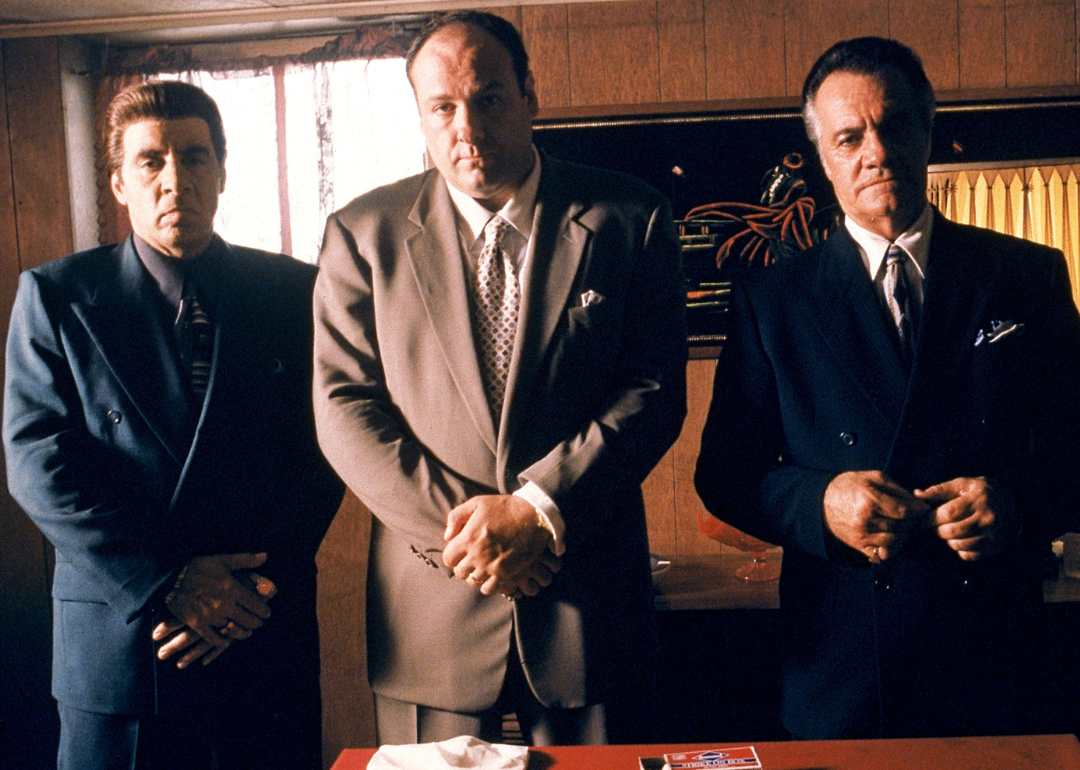
100 best John Wayne movies
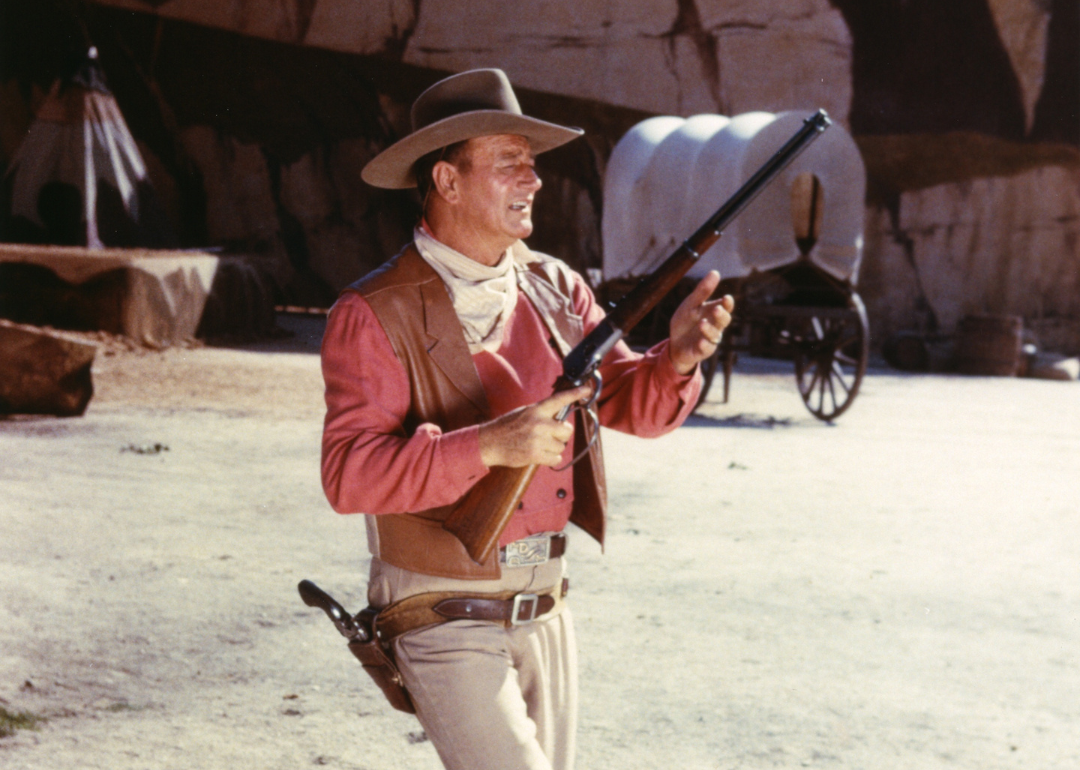
50 most meaningful jobs in America


10 of the Most Famous and Inspirational Speeches from History
By Dr Oliver Tearle (Loughborough University)
What makes a great and iconic speech? There are numerous examples of brilliant orators and speechmakers throughout history, from classical times to the present day. What the best speeches tend to have in common are more than just a solid intellectual argument: they have emotive power, or, for want of a more scholarly word, ‘heart’. Great speeches rouse us to action, or move us to tears – or both.
But of course, historic speeches are often also associated with landmark, or watershed, moments in a nation’s history: when Churchill delivered his series of wartime speeches to Britain in 1940, it was against the backdrop of a war which was still in its early, uncertain stages. And when Martin Luther King stood in front of the Lincoln Memorial in 1963, he was addressing a crowd who, like him, were marching for justice, freedom, and civil rights for African Americans.
Let’s take a closer look at ten of the best and most famous speeches from great moments in history.
Abraham Lincoln, ‘ Gettysburg Address ’ (1863).
The Gettysburg Address is one of the most famous speeches in American history, yet it was extremely short – just 268 words, or less than a page of text – and Abraham Lincoln, who gave the address, wasn’t even the top billing .
The US President Abraham Lincoln gave this short address at the dedication of the Soldiers’ National Cemetery in Gettysburg, Pennsylvania on 19 November 1863. At the time, the American Civil War was still raging, and the Battle of Gettysburg had been the bloodiest battle in the war, with an estimated 23,000 casualties.
Lincoln’s speech has been remembered while Edward Everett’s – the main speech delivered on that day – has long been forgotten because Lincoln eschewed the high-flown allusions and wordy style of most political orators of the nineteenth century. Instead, he addresses his audience in plain, homespun English that is immediately relatable and accessible.
Sojourner Truth, ‘ Ain’t I a Woman? ’ (1851).
Sometimes known as ‘Ar’n’t I a Woman?’, this is a speech which Sojourner Truth, a freed African slave living in the United States, delivered in 1851 at the Women’s Convention in Akron, Ohio. The women in attendance were being challenged to call for the right to vote.
In her speech, Sojourner Truth attempts to persuade the audience to give women the vote . As both an ex-slave and a woman, Sojourner Truth knew about the plight of both groups of people in the United States. Her speech shows her audience the times: change is coming, and it is time to give women the rights that should be theirs.
John Ball, ‘ Cast off the Yoke of Bondage ’ (1381).
The summer of 1381 was a time of unrest in England. The so-called ‘Peasants’ Revolt’, led by Wat Tyler (in actual fact, many of the leaders of the revolt were more well-to-do than your average peasant), gathered force until the rebels stormed London, executing a number of high-ranking officials, including the Archbishop of Canterbury and Lord Chancellor, Simon Sudbury.
Alongside Tyler, the priest John Ball was an important leading figure of the rebellion. His famous couplet, ‘When Adam delved and Eve span, / Who was then the gentleman?’ sums up the ethos of the Peasants’ Revolt: social inequality was unheard of until men created it.
Winston Churchill, ‘ We Shall Fight on the Beaches ’ (1940).
Winston Churchill had only recently assumed the role of UK Prime Minister when he gave the trio of wartime speeches which have gone down in history for their rhetorical skill and emotive power. This, for our money, is the best of the three.
Churchill gave this speech in the House of Commons on 4 June 1940. Having brought his listeners up to speed with what has happened, Churchill comes to the peroration of his speech : by far the most famous part. He reassures them that if nothing is neglected and all arrangements are made, he sees no reason why Britain cannot once more defend itself against invasion: something which, as an island nation, it has always been susceptible to by sea, and now by air.
Even if it takes years, and even if Britain must defend itself alone without any help from its allies, this is what must happen. Capitulation to the Nazis is not an option. The line ‘if necessary for years; if necessary, alone’ is sure to send a shiver down the spine, as is the way Churchill barks ‘we shall never surrender!’ in the post-war recording of the speech he made several years later.
William Faulkner, ‘ The Agony and the Sweat ’ (1950).
This is the title sometimes given to one of the most memorable Nobel Prize acceptance speeches: the American novelist William Faulkner’s acceptance of the Nobel Prize for Literature at Stockholm in 1950.
In his speech, Faulkner makes his famous statement about the ‘duty’ of writers: that they should write about ‘the human heart in conflict with itself’, as well as emotions and themes such as compassion, sacrifice, courage, and hope. He also emphasises that being a writer is hard work, and involves understanding human nature in all its complexity. But good writing should also remind readers what humankind is capable of.
Emmeline Pankhurst, ‘ The Plight of Women ’ (1908).
Pankhurst (1858-1928) was the leader of the British suffragettes, campaigning – and protesting – for votes for women. After she realised that Asquith’s Liberal government were unlikely to grand women the vote, the Women’s Social and Political Union, founded by Pankhurst with her daughter Christabel, turned to more militant tactics to shift public and parliamentary opinion.
Her emphasis in this speech is on the unhappy lot most women could face, in marriage and in motherhood. She also shows how ‘man-made’ the laws of England are, when they are biased in favour of men to the detriment of women’s rights.
This speech was given at the Portman Rooms in London in 1908; ten years later, towards the end of the First World War, women over 30 were finally given the vote. But it would be another ten years, in 1928 – the year of Pankhurst’s death – before the voting age for women was equal to that for men (21 years).
Franklin Roosevelt, ‘ The Only Thing We Have to Fear Is Fear Itself ’ (1933).
This is the title by which Roosevelt’s speech at his inauguration in 1933 has commonly become known, and it has attained the status of a proverb. Roosevelt was elected only a few years after the Wall Street Crash of 1929 which ushered in the Great Depression.
Roosevelt’s famous line in the speech, which offered hope to millions of Americans dealing with unemployment and poverty, was probably inspired by a line from Henry David Thoreau, a copy of whose writings FDR had been gifted shortly before his inauguration. The line about having nothing to fear except fear itself was, in fact, only added into the speech the day before the inauguration took place, but it ensured that the speech went down in history.
Marcus Tullius Cicero, ‘ Among Us You Can Dwell No Longer ’ (63 BC).
Of all of the great classical orators, perhaps the greatest of all was the Roman statesman, philosopher, and speechmaker, Cicero (whose name literally means ‘chickpea’).
This is probably his best-known speech. At the Temple of Jupiter in Rome, Cicero addressed the crowd, but specifically directed his comments towards Lucius Catiline, who was accused of plotting a conspiracy to set fire to the capital and stage and insurrection. The speech was considered such a fine example of Roman rhetoric that it was a favourite in classrooms for centuries after, as Brian MacArthur notes in The Penguin Book of Historic Speeches .
Queen Elizabeth I, ‘ The Heart and Stomach of a King ’ (1588).
Queen Elizabeth I’s speech to the troops at Tilbury is among the most famous and iconic speeches in English history. On 9 August 1588, Elizabeth addressed the land forces which had been mobilised at the port of Tilbury in Essex, in preparation for the expected invasion of England by the Spanish Armada.
When she gave this speech, Elizabeth was in her mid-fifties and her youthful beauty had faded. But she had learned rhetoric as a young princess, and this training served her well when she wrote and delivered this speech (she was also a fairly accomplished poet ).
She famously tells her troops: ‘I know I have the body but of a weak and feeble woman; but I have the heart and stomach of a king, and of a king of England too’. She acknowledged the fact that her body was naturally less masculine and strong than the average man’s, but it is not mere physical strength that will win the day. It is courage that matters.
Martin Luther King, ‘ I Have a Dream ’ (1963).
Let’s conclude this selection of the best inspirational speeches with the best-known of all of Martin Luther King’s speeches. The occasion for this piece of oratorical grandeur was the march on Washington , which saw some 210,000 men, women, and children gather at the Washington Monument in August 1963, before marching to the Lincoln Memorial. King reportedly stayed up until 4am the night before he was due to give the speech, writing it out.
King’s speech imagines a collective vision of a better and more equal America which is not only shared by many Black Americans, but by anyone who identifies with their fight against racial injustice, segregation, and discrimination.
Discover more from Interesting Literature
Subscribe to get the latest posts to your email.
Type your email…
1 thought on “10 of the Most Famous and Inspirational Speeches from History”
- Pingback: Top Motivational Speeches That Shook the World - Kiiky
Comments are closed.
Subscribe now to keep reading and get access to the full archive.
Continue reading
Uncategorized
40 famous persuasive speeches you need to hear.
Written by Kai Xin Koh
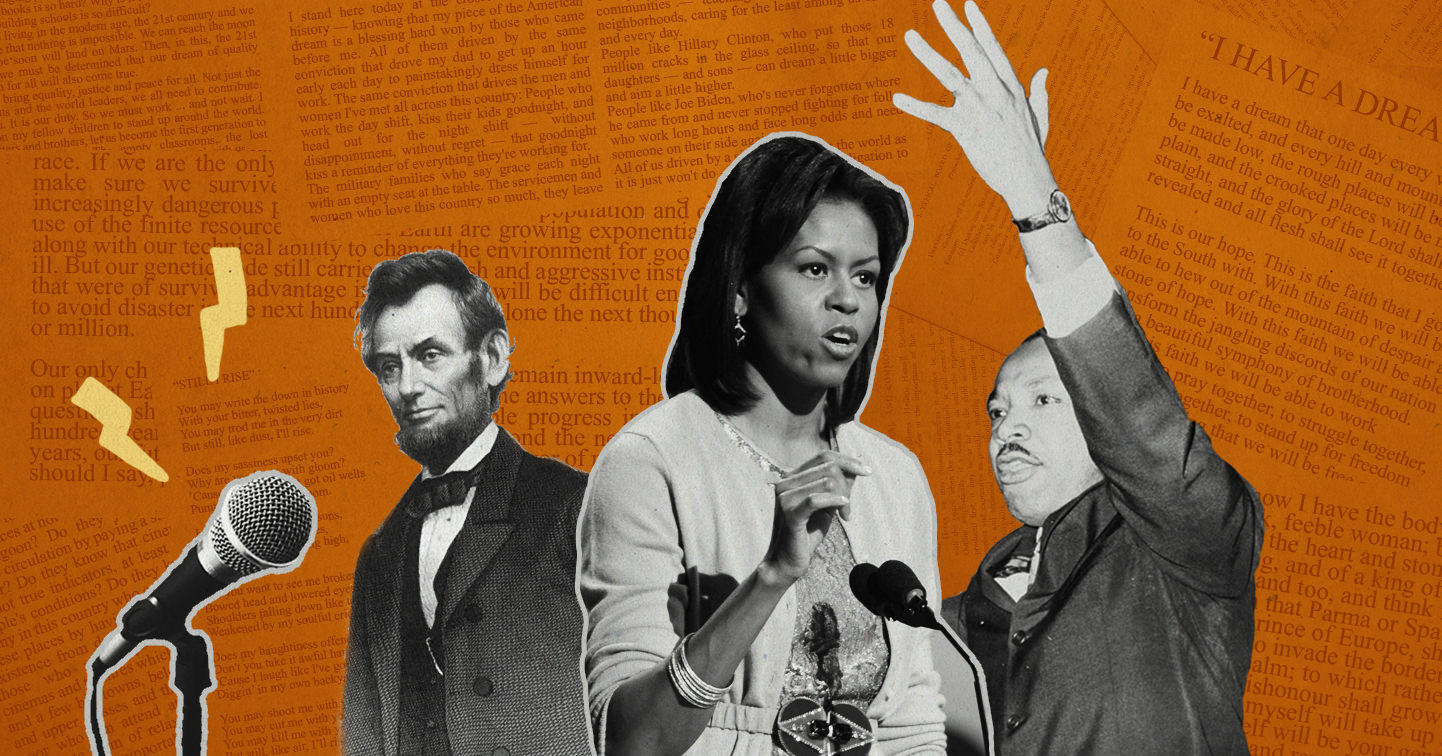
Across eras of calamity and peace in our world’s history, a great many leaders, writers, politicians, theorists, scientists, activists and other revolutionaries have unveiled powerful rousing speeches in their bids for change. In reviewing the plethora of orators across tides of social, political and economic change, we found some truly rousing speeches that brought the world to their feet or to a startling, necessary halt. We’ve chosen 40 of the most impactful speeches we managed to find from agents of change all over the world – a diversity of political campaigns, genders, positionalities and periods of history. You’re sure to find at least a few speeches in this list which will capture you with the sheer power of their words and meaning!
1. I have a dream by MLK
“I have a dream that one day down in Alabama, with its vicious racists, with its governor having his lips dripping with the words of interposition and nullification – one day right there in Alabama little black boys and black girls will be able to join hands with little white boys and white girls as sisters and brothers. I have a dream today. I have a dream that one day every valley shall be exalted, and every hill and mountain shall be made low, the rough places will be made plain, and the crooked places will be made straight, and the glory of the Lord shall be revealed and all flesh shall see it together. This is our hope. This is the faith that I go back to the South with. With this faith we will be able to hew out of the mountain of despair a stone of hope. With this faith we will be able to transform the jangling discords of our nation into a beautiful symphony of brotherhood. With this faith we will be able to work together, to pray together, to struggle together, to go to jail together, to stand up for freedom together, knowing that we will be free one day. This will be the day, this will be the day when all of God’s children will be able to sing with new meaning “My country ’tis of thee, sweet land of liberty, of thee I sing. Land where my father’s died, land of the Pilgrim’s pride, from every mountainside, let freedom ring!”
Unsurprisingly, Martin Luther King’s speech comes up top as the most inspiring speech of all time, especially given the harrowing conditions of African Americans in America at the time. In the post-abolition era when slavery was outlawed constitutionally, African Americans experienced an intense period of backlash from white supremacists who supported slavery where various institutional means were sought to subordinate African American people to positions similar to that of the slavery era. This later came to be known as the times of Jim Crow and segregation, which Martin Luther King powerfully voiced his vision for a day when racial discrimination would be a mere figment, where equality would reign.
2. Tilbury Speech by Queen Elizabeth I
“My loving people, We have been persuaded by some that are careful of our safety, to take heed how we commit our selves to armed multitudes, for fear of treachery; but I assure you I do not desire to live to distrust my faithful and loving people. Let tyrants fear. I have always so behaved myself that, under God, I have placed my chiefest strength and safeguard in the loyal hearts and good-will of my subjects; and therefore I am come amongst you, as you see, at this time, not for my recreation and disport, but being resolved, in the midst and heat of the battle, to live and die amongst you all; to lay down for my God, and for my kingdom, and my people, my honour and my blood, even in the dust. I know I have the body of a weak, feeble woman; but I have the heart and stomach of a king, and of a king of England too, and think foul scorn that Parma or Spain, or any prince of Europe, should dare to invade the borders of my realm; to which rather than any dishonour shall grow by me, I myself will take up arms, I myself will be your general, judge, and rewarder of every one of your virtues in the field. I know already, for your forwardness you have deserved rewards and crowns; and We do assure you on a word of a prince, they shall be duly paid. In the mean time, my lieutenant general shall be in my stead, than whom never prince commanded a more noble or worthy subject; not doubting but by your obedience to my general, by your concord in the camp, and your valour in the field, we shall shortly have a famous victory over these enemies of my God, of my kingdom, and of my people.”
While at war with Spain, Queen Elizabeth I was most renowned for her noble speech rallying the English troops against their comparatively formidable opponent. Using brilliant rhetorical devices like metonymy, meronymy, and other potent metaphors, she voiced her deeply-held commitment as a leader to the battle against the Spanish Armada – convincing the English army to keep holding their ground and upholding the sacrifice of war for the good of their people. Eventually against all odds, she led England to victory despite their underdog status in the conflict with her confident and masterful oratory.
3. Woodrow Wilson, address to Congress (April 2, 1917)
“The world must be made safe for democracy. Its peace must be planted upon the tested foundations of political liberty. We have no selfish ends to serve. We desire no conquest, no dominion. We seek no indemnities for ourselves, no material compensation for the sacrifices we shall freely make. We are but one of the champions of the rights of mankind. We shall be satisfied when those rights have been made as secure as the faith and the freedom of nations can make them. Just because we fight without rancor and without selfish object, seeking nothing for ourselves but what we shall wish to share with all free peoples, we shall, I feel confident, conduct our operations as belligerents without passion and ourselves observe with proud punctilio the principles of right and of fair play we profess to be fighting for. … It will be all the easier for us to conduct ourselves as belligerents in a high spirit of right and fairness because we act without animus, not in enmity toward a people or with the desire to bring any injury or disadvantage upon them, but only in armed opposition to an irresponsible government which has thrown aside all considerations of humanity and of right and is running amuck. We are, let me say again, the sincere friends of the German people, and shall desire nothing so much as the early reestablishment of intimate relations of mutual advantage between us—however hard it may be for them, for the time being, to believe that this is spoken from our hearts. We have borne with their present government through all these bitter months because of that friendship—exercising a patience and forbearance which would otherwise have been impossible. We shall, happily, still have an opportunity to prove that friendship in our daily attitude and actions toward the millions of men and women of German birth and native sympathy who live among us and share our life, and we shall be proud to prove it toward all who are in fact loyal to their neighbors and to the government in the hour of test. They are, most of them, as true and loyal Americans as if they had never known any other fealty or allegiance. They will be prompt to stand with us in rebuking and restraining the few who may be of a different mind and purpose. If there should be disloyalty, it will be dealt with with a firm hand of stern repression; but, if it lifts its head at all, it will lift it only here and there and without countenance except from a lawless and malignant few. It is a distressing and oppressive duty, gentlemen of the Congress, which I have performed in thus addressing you. There are, it may be, many months of fiery trial and sacrifice ahead of us. It is a fearful thing to lead this great peaceful people into war, into the most terrible and disastrous of all wars, civilization itself seeming to be in the balance. But the right is more precious than peace, and we shall fight for the things which we have always carried nearest our hearts—for democracy, for the right of those who submit to authority to have a voice in their own governments, for the rights and liberties of small nations, for a universal dominion of right by such a concert of free peoples as shall bring peace and safety to all nations and make the world itself at last free. To such a task we can dedicate our lives and our fortunes, everything that we are and everything that we have, with the pride of those who know that the day has come when America is privileged to spend her blood and her might for the principles that gave her birth and happiness and the peace which she has treasured. God helping her, she can do no other.”
On April 2, 1917, President Woodrow Wilson of the USA delivered his address to Congress, calling for declaration of war against what was at the time, a belligerent and aggressive Germany in WWI. Despite his isolationism and anti-war position earlier in his tenure as president, he convinced Congress that America had a moral duty to the world to step out of their neutral observer status into an active role of world leadership and stewardship in order to liberate attacked nations from their German aggressors. The idealistic values he preached in his speech left an indelible imprint upon the American spirit and self-conception, forming the moral basis for the country’s people and aspirational visions to this very day.
4. Ain’t I A Woman by Sojourner Truth
“That man over there says that women need to be helped into carriages, and lifted over ditches, and to have the best place everywhere. Nobody ever helps me into carriages, or over mud-puddles, or gives me any best place! And ain’t I a woman? Look at me! Look at my arm! I have ploughed and planted, and gathered into barns, and no man could head me! And ain’t I a woman? I could work as much and eat as much as a man – when I could get it – and bear the lash as well! And ain’t I a woman? I have borne thirteen children, and seen most all sold off to slavery, and when I cried out with my mother’s grief, none but Jesus heard me! And ain’t I a woman? … If the first woman God ever made was strong enough to turn the world upside down all alone, these women together ought to be able to turn it back , and get it right side up again! And now they is asking to do it, the men better let them.”
Hailing from a background of slavery and oppression, Sojourner Truth was one of the most revolutionary advocates for women’s human rights in the 1800s. In spite of the New York Anti-Slavery Law of 1827, her slavemaster refused to free her. As such, she fled, became an itinerant preacher and leading figure in the anti-slavery movement. By the 1850s, she became involved in the women’s rights movement as well. At the 1851 Women’s Rights Convention held in Akron, Ohio, she delivered her illuminating, forceful speech against discrimination of women and African Americans in the post-Civil War era, entrenching her status as one of the most revolutionary abolitionists and women’s rights activists across history.
5. The Gettsyburg Address by Abraham Lincoln
“Fondly do we hope, fervently do we pray, that this mighty scourge of war may speedily pass away. Yet, if God wills that it continue until all the wealth piled by the bondsman’s two hundred and fifty years of unrequited toil shall be sunk, and until every drop of blood drawn with the lash shall be paid by another drawn with the sword, as was said three thousand years ago, so still it must be said “the judgments of the Lord are true and righteous altogether.” With malice toward none, with charity for all, with firmness in the right as God gives us to see the right, let us strive on to finish the work we are in, to bind up the nation’s wounds, to care for him who shall have borne the battle and for his widow and his orphan, to do all which may achieve and cherish a just and lasting peace among ourselves and with all nations.”
President Abraham Lincoln had left the most lasting legacy upon American history for good reason, as one of the presidents with the moral courage to denounce slavery for the national atrocity it was. However, more difficult than standing up for the anti-slavery cause was the task of unifying the country post-abolition despite the looming shadows of a time when white Americans could own and subjugate slaves with impunity over the thousands of Americans who stood for liberation of African Americans from discrimination. He urged Americans to remember their common roots, heritage and the importance of “charity for all”, to ensure a “just and lasting peace” among within the country despite throes of racial division and self-determination.
6. Woman’s Rights to the Suffrage by Susan B Anthony
“For any State to make sex a qualification that must ever result in the disfranchisement of one entire half of the people is to pass a bill of attainder, or an ex post facto law, and is therefore a violation of the supreme law of the land. By it the blessings of liberty are for ever withheld from women and their female posterity. To them this government has no just powers derived from the consent of the governed. To them this government is not a democracy. It is not a republic. It is an odious aristocracy; a hateful oligarchy of sex; the most hateful aristocracy ever established on the face of the globe; an oligarchy of wealth, where the right govern the poor. An oligarchy of learning, where the educated govern the ignorant, or even an oligarchy of race, where the Saxon rules the African, might be endured; but this oligarchy of sex, which makes father, brothers, husband, sons, the oligarchs over the mother and sisters, the wife and daughters of every household–which ordains all men sovereigns, all women subjects, carries dissension, discord and rebellion into every home of the nation. Webster, Worcester and Bouvier all define a citizen to be a person in the United States, entitled to vote and hold office. The only question left to be settled now is: Are women persons? And I hardly believe any of our opponents will have the hardihood to say they are not. Being persons, then, women are citizens; and no State has a right to make any law, or to enforce any old law, that shall abridge their privileges or immunities. Hence, every discrimination against women in the constitutions and laws of the several States is today null and void, precisely as in every one against Negroes.”
Susan B. Anthony was a pivotal leader in the women’s suffrage movement who helped to found the National Woman Suffrage Association with Elizabeth Cady Stanton and fight for the constitutional right for women to vote. She courageously and relentlessly advocated for women’s rights, giving speeches all over the USA to convince people of women’s human rights to choice and the ballot. She is most well known for her act of righteous rebellion in 1872 when she voted in the presidential election illegally, for which she was arrested and tried unsuccessfully. She refused to pay the $100 fine in a bid to reject the demands of the American system she denounced as a ‘hateful oligarchy of sex’, sparking change with her righteous oratory and inspiring many others in the women’s suffrage movement within and beyond America.
7. Vladimir Lenin’s Speech at an International Meeting in Berne, February 8, 1916
“It may sound incredible, especially to Swiss comrades, but it is nevertheless true that in Russia, also, not only bloody tsarism, not only the capitalists, but also a section of the so-called or ex-Socialists say that Russia is fighting a “war of defence,” that Russia is only fighting against German invasion. The whole world knows, however, that for decades tsarism has been oppressing more than a hundred million people belonging to other nationalities in Russia; that for decades Russia has been pursuing a predatory policy towards China, Persia, Armenia and Galicia. Neither Russia, nor Germany, nor any other Great Power has the right to claim that it is waging a “war of defence”; all the Great Powers are waging an imperialist, capitalist war, a predatory war, a war for the oppression of small and foreign nations, a war for the sake of the profits of the capitalists, who are coining golden profits amounting to billions out of the appalling sufferings of the masses, out of the blood of the proletariat. … This again shows you, comrades, that in all countries of the world real preparations are being made to rally the forces of the working class. The horrors of war and the sufferings of the people are incredible. But we must not, and we have no reason whatever, to view the future with despair. The millions of victims who will fall in the war, and as a consequence of the war, will not fall in vain. The millions who are starving, the millions who are sacrificing their lives in the trenches, are not only suffering, they are also gathering strength, are pondering over the real cause of the war, are becoming more determined and are acquiring a clearer revolutionary understanding. Rising discontent of the masses, growing ferment, strikes, demonstrations, protests against the war—all this is taking place in all countries of the world. And this is the guarantee that the European War will be followed by the proletarian revolution against capitalism”
Vladimir Lenin remains to this day one of the most lauded communist revolutionaries in the world who brought the dangers of imperialism and capitalism to light with his rousing speeches condemning capitalist structures of power which inevitably enslave people to lives of misery and class stratification. In his genuine passion for the rights of the working class, he urged fellow comrades to turn the “imperialist war” into a “civil” or class war of the proletariat against the bourgeoisie. He encouraged the development of new revolutionary socialist organisations, solidarity across places in society so people could unite against their capitalist overlords, and criticised nationalism for its divisive effect on the socialist movement. In this speech especially, he lambasts “bloody Tsarism” for its oppression of millions of people of other nationalities in Russia, calling for the working class people to revolt against the Tsarist authority for the proletariat revolution to succeed and liberate them from class oppression.
8. I Have A Dream Speech by Mary Wollstonecraft
“If, I say, for I would not impress by declamation when Reason offers her sober light, if they be really capable of acting like rational creatures, let them not be treated like slaves; or, like the brutes who are dependent on the reason of man, when they associate with him; but cultivate their minds, give them the salutary, sublime curb of principle, and let them attain conscious dignity by feeling themselves only dependent on God. Teach them, in common with man, to submit to necessity, instead of giving, to render them more pleasing, a sex to morals. Further, should experience prove that they cannot attain the same degree of strength of mind, perseverance, and fortitude, let their virtues be the same in kind, though they may vainly struggle for the same degree; and the superiority of man will be equally clear, if not clearer; and truth, as it is a simple principle, which admits of no modification, would be common to both. Nay, the order of society as it is at present regulated would not be inverted, for woman would then only have the rank that reason assigned her, and arts could not be practised to bring the balance even, much less to turn it.”
In her vindication of the rights of women, Mary Wollstonecraft was one of the pioneers of the feminist movement back in 1792 who not only theorised and advocated revolutionarily, but gave speeches that voiced these challenges against a dominantly sexist society intent on classifying women as irrational less-than-human creatures to be enslaved as they were. In this landmark speech, she pronounces her ‘dream’ of a day when women would be treated as the rational, deserving humans they are, who are equal to man in strength and capability. With this speech setting an effective precedent for her call to equalize women before the law, she also went on to champion the provision of equal educational opportunities to women and girls, and persuasively argued against the patriarchal gender norms which prevented women from finding their own lot in life through their being locked into traditional institutions of marriage and motherhood against their will.
9. First Inaugural Speech by Franklin D Roosevelt
“So, first of all, let me assert my firm belief that the only thing we have to fear is…fear itself — nameless, unreasoning, unjustified terror which paralyzes needed efforts to convert retreat into advance. In every dark hour of our national life a leadership of frankness and of vigor has met with that understanding and support of the people themselves which is essential to victory. And I am convinced that you will again give that support to leadership in these critical days. … More important, a host of unemployed citizens face the grim problem of existence, and an equally great number toil with little return. Only a foolish optimist can deny the dark realities of the moment. Our greatest primary task is to put people to work. This is no unsolvable problem if we face it wisely and courageously. There are many ways in which it can be helped, but it can never be helped merely by talking about it. We must act and act quickly. … I am prepared under my constitutional duty to recommend the measures that a stricken Nation in the midst of a stricken world may require. These measures, or such other measures as the Congress may build out of its experience and wisdom, I shall seek, within my constitutional authority, to bring to speedy adoption. But in the event that the Congress shall fail to take one of these two courses, and in the event that the national emergency is still critical, I shall not evade the clear course of duty that will then confront me. I shall ask the Congress for the one remaining instrument to meet the crisis — broad Executive power to wage a war against the emergency, as great as the power that would be given to me if we were in fact invaded by a foreign foe.”
Roosevelt’s famous inaugural speech was delivered in the midst of a period of immense tension and strain under the Great Depression, where he highlighted the need for ‘quick action’ by Congress to prepare for government expansion in his pursuit of reforms to lift the American people out of devastating poverty. In a landslide victory, he certainly consolidated the hopes and will of the American people through this compelling speech.
10. The Hypocrisy of American Slavery by Frederick Douglass
“What to the American slave is your Fourth of July? I answer, a day that reveals to him more than all other days of the year, the gross injustice and cruelty to which he is the constant victim. To him your celebration is a sham; your boasted liberty an unholy license; your national greatness, swelling vanity; your sounds of rejoicing are empty and heartless; your shouts of liberty and equality, hollow mock; your prayers and hymns, your sermons and thanksgivings, with all your religious parade and solemnity, are to him mere bombast, fraud, deception, impiety, and hypocrisy – a thin veil to cover up crimes which would disgrace a nation of savages. There is not a nation of the earth guilty of practices more shocking and bloody than are the people of these United States at this very hour. Go search where you will, roam through all the monarchies and despotisms of the Old World, travel through South America, search out every abuse and when you have found the last, lay your facts by the side of the everyday practices of this nation, and you will say with me that, for revolting barbarity and shameless hypocrisy, America reigns without a rival.”
On 4 July 1852, Frederick Douglass gave this speech in Rochester, New York, highlighting the hypocrisy of celebrating freedom while slavery continues. He exposed the ‘revolting barbarity and shameless hypocrisy’ of slavery which had gone unabolished amidst the comparatively obscene celebration of independence and liberty with his potent speech and passion for the anti-abolition cause. After escaping from slavery, he went on to become a national leader of the abolitionist movement in Massachusetts and New York with his oratory and incisive antislavery writings. To this day, his fierce activism and devotion to exposing virulent racism for what it was has left a lasting legacy upon pro-Black social movements and the overall sociopolitical landscape of America.
11. Still I Rise by Maya Angelou
“You may write me down in history With your bitter, twisted lies, You may trod me in the very dirt But still, like dust, I’ll rise. Does my sassiness upset you? Why are you beset with gloom? ’Cause I walk like I’ve got oil wells Pumping in my living room. Just like moons and like suns, With the certainty of tides, Just like hopes springing high, Still I’ll rise. Did you want to see me broken? Bowed head and lowered eyes? Shoulders falling down like teardrops, Weakened by my soulful cries? Does my haughtiness offend you? Don’t you take it awful hard ’Cause I laugh like I’ve got gold mines Diggin’ in my own backyard. You may shoot me with your words, You may cut me with your eyes, You may kill me with your hatefulness, But still, like air, I’ll rise. Does my sexiness upset you? Does it come as a surprise That I dance like I’ve got diamonds At the meeting of my thighs? Out of the huts of history’s shame I rise Up from a past that’s rooted in pain I rise I’m a black ocean, leaping and wide, Welling and swelling I bear in the tide. Leaving behind nights of terror and fear I rise Into a daybreak that’s wondrously clear I rise Bringing the gifts that my ancestors gave, I am the dream and the hope of the slave. I rise I rise I rise.”
With her iconic poem Still I Rise , Maya Angelou is well-known for uplifting fellow African American women through her empowering novels and poetry and her work as a civil rights activist. Every bit as lyrical on the page, her recitation of Still I Rise continues to give poetry audiences shivers all over the world, inspiring women of colour everywhere to keep the good faith in striving for equality and peace, while radically believing in and empowering themselves to be agents of change. A dramatic reading of the poem will easily showcase the self-belief, strength and punch that it packs in the last stanza on the power of resisting marginalization.
12. Their Finest Hour by Winston Churchill
“What General Weygand called the Battle of France is over. I expect that the Battle of Britain is about to begin. Upon this battle depends the survival of Christian civilization. Upon it depends our own British life, and the long continuity of our institutions and our Empire. The whole fury and might of the enemy must very soon be turned on us. Hitler knows that he will have to break us in this Island or lose the war. If we can stand up to him, all Europe may be free and the life of the world may move forward into broad, sunlit uplands. But if we fail, then the whole world, including the United States, including all that we have known and cared for, will sink into the abyss of a new Dark Age made more sinister, and perhaps more protracted, by the lights of perverted science. Let us therefore brace ourselves to our duties, and so bear ourselves that, if the British Empire and its Commonwealth last for a thousand years, men will still say, “This was their finest hour.””
In the darkest shadows cast by war, few leaders have been able to step up to the mantle and effectively unify millions of citizens for truly sacrificial causes. Winston Churchill was the extraordinary exception – lifting 1940 Britain out of the darkness with his hopeful, convicted rhetoric to galvanise the English amidst bleak, dreary days of war and loss. Through Britain’s standalone position in WWII against the Nazis, he left his legacy by unifying the nation under shared sacrifices of the army and commemorating their courage.
13. A Room of One’s Own by Virginia Woolf
“Life for both sexes – and I looked at them (through a restaurant window while waiting for my lunch to be served), shouldering their way along the pavement – is arduous, difficult, a perpetual struggle. It calls for gigantic courage and strength. More than anything, perhaps, creatures of illusion as we are, it calls for confidence in oneself. Without self-confidence we are babes in the cradle. And how can we generate this imponderable quality, which is yet so invaluable, most quickly? By thinking that other people are inferior to oneself. By feeling that one has some innate superiority – it may be wealth, or rank, a straight nose, or the portrait of a grandfather by Romney – for there is no end to the pathetic devices of the human imagination – over other people. Hence the enormous importance to a patriarch who has to conquer, who has to rule, of feeling that great numbers of people, half the human race indeed, are by nature inferior to himself. It must indeed be one of the great sources of his power….Women have served all these centuries as looking-glasses possessing the magic and delicious power of reflecting the figure of man at twice its natural size. Without that power probably the earth would still be swamp and jungle. The glories of all our wars would be on the remains of mutton bones and bartering flints for sheepskins or whatever simple ornament took our unsophisticated taste. Supermen and Fingers of Destiny would never have existed. The Czar and the Kaiser would never have worn their crowns or lost them. Whatever may be their use in civilised societies, mirrors are essential to all violent and heroic action. That is why Napoleon and Mussolini both insist so emphatically upon the inferiority of women, for if they were not inferior, they would cease to enlarge. That serves to explain in part the necessity that women so often are to men. And it serves to explain how restless they are under her criticism; how impossible it is for her to say to them this book is bad, this picture is feeble, or whatever it may be, without giving far more pain and rousing far more anger than a man would do who gave the same criticism. For if she begins to tell the truth, the figure in the looking-glass shrinks; his fitness in life is diminished. How is he to go on giving judgment, civilising natives, making laws, writing books, dressing up and speechifying at banquets, unless he can see himself at breakfast and at dinner at least twice the size he really is?”
In this transformational speech , Virginia Woolf pronounces her vision that ‘a woman must have money and a room of her own if she is to write fiction’. She calls out the years in which women have been deprived of their own space for individual development through being chained to traditional arrangements or men’s prescriptions – demanding ‘gigantic courage’ and ‘confidence in oneself’ to brave through the onerous struggle of creating change for women’s rights. With her steadfast, stolid rhetoric and radical theorization, she paved the way for many women’s rights activists and writers to forge their own paths against patriarchal authority.
14. Inaugural Address by John F Kennedy
“In the long history of the world, only a few generations have been granted the role of defending freedom in its hour of maximum danger. I do not shrink from this responsibility–I welcome it. I do not believe that any of us would exchange places with any other people or any other generation. The energy, the faith, the devotion which we bring to this endeavor will light our country and all who serve it–and the glow from that fire can truly light the world. And so, my fellow Americans: ask not what your country can do for you–ask what you can do for your country. My fellow citizens of the world: ask not what America will do for you, but what together we can do for the freedom of man. Finally, whether you are citizens of America or citizens of the world, ask of us here the same high standards of strength and sacrifice which we ask of you. With a good conscience our only sure reward, with history the final judge of our deeds, let us go forth to lead the land we love, asking His blessing and His help, but knowing that here on earth God’s work must truly be our own.”
For what is probably the most historically groundbreaking use of parallelism in speech across American history, President JFK placed the weighty task of ‘asking what one can do for their country’ onto the shoulders of each American citizen. Using an air of firmness in his rhetoric by declaring his commitment to his countrymen, he urges each American to do the same for the broader, noble ideal of freedom for all. With his crucial interrogation of a citizen’s moral duty to his nation, President JFK truly made history.
15. Atoms for Peace Speech by Dwight Eisenhower
“To pause there would be to confirm the hopeless finality of a belief that two atomic colossi are doomed malevolently to eye each other indefinitely across a trembling world. To stop there would be to accept helplessly the probability of civilization destroyed, the annihilation of the irreplaceable heritage of mankind handed down to us from generation to generation, and the condemnation of mankind to begin all over again the age-old struggle upward from savagery towards decency, and right, and justice. Surely no sane member of the human race could discover victory in such desolation. Could anyone wish his name to be coupled by history with such human degradation and destruction?Occasional pages of history do record the faces of the “great destroyers”, but the whole book of history reveals mankind’s never-ending quest for peace and mankind’s God-given capacity to build. It is with the book of history, and not with isolated pages, that the United States will ever wish to be identified. My country wants to be constructive,not destructive. It wants agreements, not wars, among nations. It wants itself to live in freedom and in the confidence that the peoples of every other nation enjoy equally the right of choosing their own way of life. So my country’s purpose is to help us to move out of the dark chamber of horrors into the light, to find a way by which the minds of men, the hopes of men, the souls of men everywhere, can move forward towards peace and happiness and well-being.”
On a possibility as frightful and tense as nuclear war, President Eisenhower managed to convey the gravity of the world’s plight in his measured and persuasive speech centred on the greater good of mankind. Using rhetorical devices such as the three-part paratactical syntax which most world leaders are fond of for ingraining their words in the minds of their audience, he centers the discourse of the atomic bomb on those affected by such a world-changing decision in ‘the minds, hopes and souls of men everywhere’ – effectively putting the vivid image of millions of people’s fates at stake in the minds of his audience. Being able to make a topic as heavy and fraught with moral conflict as this as eloquent as he did, Eisenhower definitely ranks among some of the most skilled orators to date.
16. The Transformation of Silence into Language and Action by Audre Lorde
“I was going to die, if not sooner then later, whether or not I had ever spoken myself. My silences had not protected me. Your silence will not protect you. But for every real word spoken, for every attempt I had ever made to speak those truths for which I am still seeking, I had made contact with other women while we examined the words to fit a world in which we all believed, bridging our differences. What are the words you do not have yet? What do you need to say? What are the tyrannies you swallow day by day and attempt to make your own, until you will sicken and die of them, still in silence? Perhaps for some of you here today, I am the face of one of your fears. Because I am a woman, because I am black, because I am myself, a black woman warrior poet doing my work, come to ask you, are you doing yours?”
Revolutionary writer, feminist and civil rights activist Audre Lorde first delivered this phenomenal speech at Lesbian and Literature panel of the Modern Language Association’s December 28, 1977 meeting, which went on to feature permanently in her writings for its sheer wisdom and truth. Her powerful writing and speech about living on the margins of society has enlightened millions of people discriminated across various intersections, confronting them with the reality that they must speak – since their ‘silence will not protect’ them from further marginalization. Through her illuminating words and oratory, she has reminded marginalized persons of the importance of their selfhood and the radical capacity for change they have in a world blighted by prejudice and division.
17. 1965 Cambridge Union Hall Speech by James Baldwin
“What is dangerous here is the turning away from – the turning away from – anything any white American says. The reason for the political hesitation, in spite of the Johnson landslide is that one has been betrayed by American politicians for so long. And I am a grown man and perhaps I can be reasoned with. I certainly hope I can be. But I don’t know, and neither does Martin Luther King, none of us know how to deal with those other people whom the white world has so long ignored, who don’t believe anything the white world says and don’t entirely believe anything I or Martin is saying. And one can’t blame them. You watch what has happened to them in less than twenty years.”
Baldwin’s invitation to the Cambridge Union Hall is best remembered for foregrounding the unflinching differences in white and African Americans’ ‘system of reality’ in everyday life. Raising uncomfortable truths about the insidious nature of racism post-civil war, he provides several nuggets of thought-provoking wisdom on the state of relations between the oppressed and their oppressors, and what is necessary to mediate such relations and destroy the exploitative thread of racist hatred. With great frankness, he admits to not having all the answers but provides hard-hitting wisdom on engagement to guide activists through confounding times nonetheless.
18. I Am Prepared to Die by Nelson Mandela
“Above all, My Lord, we want equal political rights, because without them our disabilities will be permanent. I know this sounds revolutionary to the whites in this country, because the majority of voters will be Africans. This makes the white man fear democracy. But this fear cannot be allowed to stand in the way of the only solution which will guarantee racial harmony and freedom for all. It is not true that the enfranchisement of all will result in racial domination. Political division, based on colour, is entirely artificial and, when it disappears, so will the domination of one colour group by another. The ANC has spent half a century fighting against racialism. When it triumphs as it certainly must, it will not change that policy. This then is what the ANC is fighting. Our struggle is a truly national one. It is a struggle of the African people, inspired by our own suffering and our own experience. It is a struggle for the right to live. During my lifetime I have dedicated my life to this struggle of the African people. I have fought against white domination, and I have fought against black domination. I have cherished the ideal of a democratic and free society in which all persons will live together in harmony and with equal opportunities. It is an ideal for which I hope to live for and to see realised. But, My Lord, if it needs be, it is an ideal for which I am prepared to die.”
Apartheid is still considered one of these most devastating events of world history, and it would not have ended without the crucial effort and words of Nelson Mandela during his courageous political leadership. In this heartbreaking speech , he voices his utter devotion to the fight against institutionalised racism in African society – an ideal for which he was ‘prepared to die for’. Mandela continues to remind us today of his moral conviction in leading, wherein the world would likely to be a better place if all politicians had the same resolve and genuine commitment to human rights and the abolition of oppression as he did.
19. Critique on British Imperialism by General Aung San
“Do they form their observations by seeing the attendances at not very many cinemas and theatres of Rangoon? Do they judge this question of money circulation by paying a stray visit to a local bazaar? Do they know that cinemas and theatres are not true indicators, at least in Burma, of the people’s conditions? Do they know that there are many in this country who cannot think of going to these places by having to struggle for their bare existence from day to day? Do they know that those who nowadays patronise or frequent cinemas and theatres which exist only in Rangoon and a few big towns, belong generally to middle and upper classes and the very few of the many poor who can attend at all are doing so as a desperate form of relaxation just to make them forget their unsupportable existences for the while whatever may be the tomorrow that awaits them?”
Under British colonial rule, one of the most legendary nationalist leaders emerged from the ranks of the thousands of Burmese to boldly lead them towards independence, out of the exploitation and control under the British. General Aung San’s speech criticising British social, political and economic control of Burma continues to be scathing, articulate, and relevant – especially given his necessary goal of uniting the Burmese natives against their common oppressor. He successfully galvanised his people against the British, taking endless risks through nationalist speeches and demonstrations which gradually bore fruit in Burma’s independence.
20. Nobel Lecture by Mother Teresa
“I believe that we are not real social workers. We may be doing social work in the eyes of the people, but we are really contemplatives in the heart of the world. For we are touching the Body Of Christ 24 hours. We have 24 hours in this presence, and so you and I. You too try to bring that presence of God in your family, for the family that prays together stays together. And I think that we in our family don’t need bombs and guns, to destroy to bring peace–just get together, love one another, bring that peace, that joy, that strength of presence of each other in the home. And we will be able to overcome all the evil that is in the world. There is so much suffering, so much hatred, so much misery, and we with our prayer, with our sacrifice are beginning at home. Love begins at home, and it is not how much we do, but how much love we put in the action that we do. It is to God Almighty–how much we do it does not matter, because He is infinite, but how much love we put in that action. How much we do to Him in the person that we are serving.”
In contemporary culture, most people understand Mother Teresa to be the epitome of compassion and kindness. However, if one were to look closer at her speeches from the past, one would discover not merely her altruistic contributions, but her keen heart for social justice and the downtrodden. She wisely and gracefully remarks that ‘love begins at home’ from the individual actions of each person within their private lives, which accumulate into a life of goodness and charity. For this, her speeches served not just consolatory value or momentary relevance, as they still inform the present on how we can live lives worth living.
21. June 9 Speech to Martial Law Units by Deng Xiaoping
“This army still maintains the traditions of our old Red Army. What they crossed this time was in the true sense of the expression a political barrier, a threshold of life and death. This was not easy. This shows that the People’s Army is truly a great wall of iron and steel of the party and state. This shows that no matter how heavy our losses, the army, under the leadership of the party, will always remain the defender of the country, the defender of socialism, and the defender of the public interest. They are a most lovable people. At the same time, we should never forget how cruel our enemies are. We should have not one bit of forgiveness for them. The fact that this incident broke out as it did is very worthy of our pondering. It prompts us cool-headedly to consider the past and the future. Perhaps this bad thing will enable us to go ahead with reform and the open policy at a steadier and better — even a faster — pace, more speedily correct our mistakes, and better develop our strong points.”
Mere days before the 4 June 1989 Tiananmen Square uprising, Chinese Communist Party leader Deng Xiaoping sat with six party elders (senior officials) and the three remaining members of the Politburo Standing Committee, the paramount decision-making body in China’s government. The meeting was organised to discuss the best course of action for restoring social and political order to China, given the sweeping economic reforms that had taken place in the past decade that inevitably resulted in some social resistance from the populace. Deng then gave this astute and well-regarded speech, outlining the political complexities in shutting down student protests given the context of reforms encouraging economic liberalization already taking place, as aligned with the students’ desires. It may not be the most rousing or inflammatory of speeches, but it was certainly persuasive in voicing the importance of taking a strong stand for the economic reforms Deng was implementing to benefit Chinese citizens in the long run. Today, China is an economic superpower, far from its war-torn developing country status before Deng’s leadership – thanks to his foresight in ensuring political stability would allow China to enjoy the fruits of the massive changes they adapted to.
22. Freedom or Death by Emmeline Pankhurst
“You won your freedom in America when you had the revolution, by bloodshed, by sacrificing human life. You won the civil war by the sacrifice of human life when you decided to emancipate the negro. You have left it to women in your land, the men of all civilised countries have left it to women, to work out their own salvation. That is the way in which we women of England are doing. Human life for us is sacred, but we say if any life is to be sacrificed it shall be ours; we won’t do it ourselves, but we will put the enemy in the position where they will have to choose between giving us freedom or giving us death. Now whether you approve of us or whether you do not, you must see that we have brought the question of women’s suffrage into a position where it is of first rate importance, where it can be ignored no longer. Even the most hardened politician will hesitate to take upon himself directly the responsibility of sacrificing the lives of women of undoubted honour, of undoubted earnestness of purpose. That is the political situation as I lay it before you today.”
In 1913 after Suffragette Emily Davison stepped in front of King George V’s horse at the Epsom Derby and suffered fatal injuries, Emmeline Pankhurst delivered her speech to Connecticut as a call to action for people to support the suffragette movement. Her fortitude in delivering such a sobering speech on the state of women’s rights is worth remembering for its invaluable impact and contributions to the rights we enjoy in today’s world.
23. Quit India by Mahatma Gandhi
“We shall either free India or die in the attempt; we shall not live to see the perpetuation of our slavery. Every true Congressman or woman will join the struggle with an inflexible determination not to remain alive to see the country in bondage and slavery. Let that be your pledge. Keep jails out of your consideration. If the Government keep me free, I will not put on the Government the strain of maintaining a large number of prisoners at a time, when it is in trouble. Let every man and woman live every moment of his or her life hereafter in the consciousness that he or she eats or lives for achieving freedom and will die, if need be, to attain that goal. Take a pledge, with God and your own conscience as witness, that you will no longer rest till freedom is achieved and will be prepared to lay down your lives in the attempt to achieve it. He who loses his life will gain it; he who will seek to save it shall lose it. Freedom is not for the coward or the faint-hearted.”
Naturally, the revolutionary activist Gandhi had to appear in this list for his impassioned anti-colonial speeches which rallied Indians towards independence. Famous for leading non-violent demonstrations, his speeches were a key element in gathering Indians of all backgrounds together for the common cause of eliminating their colonial masters. His speeches were resolute, eloquent, and courageous, inspiring the hope and admiration of many not just within India, but around the world.
24. 1974 National Book Award Speech by Adrienne Rich, Alice Walker, Audre Lorde
“The statement I am going to read was prepared by three of the women nominated for the National Book Award for poetry, with the agreement that it would be read by whichever of us, if any, was chosen.We, Audre Lorde, Adrienne Rich, and Alice Walker, together accept this award in the name of all the women whose voices have gone and still go unheard in a patriarchal world, and in the name of those who, like us, have been tolerated as token women in this culture, often at great cost and in great pain. We believe that we can enrich ourselves more in supporting and giving to each other than by competing against each other; and that poetry—if it is poetry—exists in a realm beyond ranking and comparison. We symbolically join together here in refusing the terms of patriarchal competition and declaring that we will share this prize among us, to be used as best we can for women. We appreciate the good faith of the judges for this award, but none of us could accept this money for herself, nor could she let go unquestioned the terms on which poets are given or denied honor and livelihood in this world, especially when they are women. We dedicate this occasion to the struggle for self-determination of all women, of every color, identification, or derived class: the poet, the housewife, the lesbian, the mathematician, the mother, the dishwasher, the pregnant teen-ager, the teacher, the grandmother, the prostitute, the philosopher, the waitress, the women who will understand what we are doing here and those who will not understand yet; the silent women whose voices have been denied us, the articulate women who have given us strength to do our work.”
Adrienne Rich, Audre Lorde, and Alice Walker wrote this joint speech to be delivered by Adrienne Rich at the 1974 National Book Awards, based on their suspicions that the first few African American lesbian women to be nominated for the awards would be snubbed in favour of a white woman nominee. Their suspicions were confirmed, and Adrienne Rich delivered this socially significant speech in solidarity with her fellow nominees, upholding the voices of the ‘silent women whose voices have been denied’.
25. Speech to 20th Congress of the CPSU by Nikita Khruschev
“Considering the question of the cult of an individual, we must first of all show everyone what harm this caused to the interests of our Party. Vladimir Ilyich Lenin had always stressed the Party’s role and significance in the direction of the socialist government of workers and peasants; he saw in this the chief precondition for a successful building of socialism in our country. Pointing to the great responsibility of the Bolshevik Party, as ruling Party of the Soviet state, Lenin called for the most meticulous observance of all norms of Party life; he called for the realization of the principles of collegiality in the direction of the Party and the state. Collegiality of leadership flows from the very nature of our Party, a Party built on the principles of democratic centralism. “This means,” said Lenin, “that all Party matters are accomplished by all Party members – directly or through representatives – who, without any exceptions, are subject to the same rules; in addition, all administrative members, all directing collegia, all holders of Party positions are elective, they must account for their activities and are recallable.””
This speech is possibly the most famed Russian speech for its status as a ‘secret’ speech delivered only to the CPSU at the time, which was eventually revealed to the public. Given the unchallenged political legacy and cult of personality which Stalin left in the Soviet Union, Nikita Khruschev’s speech condemning the authoritarian means Stalin had resorted to to consolidate power as un-socialist was an important mark in Russian history.
26. The Struggle for Human Rights by Eleanor Roosevelt
“It is my belief, and I am sure it is also yours, that the struggle for democracy and freedom is a critical struggle, for their preservation is essential to the great objective of the United Nations to maintain international peace and security. Among free men the end cannot justify the means. We know the patterns of totalitarianism — the single political party, the control of schools, press, radio, the arts, the sciences, and the church to support autocratic authority; these are the age-old patterns against which men have struggled for three thousand years. These are the signs of reaction, retreat, and retrogression. The United Nations must hold fast to the heritage of freedom won by the struggle of its people; it must help us to pass it on to generations to come. The development of the ideal of freedom and its translation into the everyday life of the people in great areas of the earth is the product of the efforts of many peoples. It is the fruit of a long tradition of vigorous thinking and courageous action. No one race and on one people can claim to have done all the work to achieve greater dignity for human beings and great freedom to develop human personality. In each generation and in each country there must be a continuation of the struggle and new steps forward must be taken since this is preeminently a field in which to stand still is to retreat.”
Eleanor Roosevelt has been among the most well-loved First Ladies for good reason – her eloquence and gravitas in delivering every speech convinced everyone of her suitability for the oval office. In this determined and articulate speech , she outlines the fundamental values that form the bedrock of democracy, urging the rest of the world to uphold human rights regardless of national ideology and interests.
27. The Ballot or The Bullet by Malcolm X
“And in this manner, the organizations will increase in number and in quantity and in quality, and by August, it is then our intention to have a black nationalist convention which will consist of delegates from all over the country who are interested in the political, economic and social philosophy of black nationalism. After these delegates convene, we will hold a seminar; we will hold discussions; we will listen to everyone. We want to hear new ideas and new solutions and new answers. And at that time, if we see fit then to form a black nationalist party, we’ll form a black nationalist party. If it’s necessary to form a black nationalist army, we’ll form a black nationalist army. It’ll be the ballot or the bullet. It’ll be liberty or it’ll be death.”
Inarguably, the revolutionary impact Malcolm X’s fearless oratory had was substantial in his time as a radical anti-racist civil rights activist. His speeches’ emancipatory potential put forth his ‘theory of rhetorical action’ where he urges Black Americans to employ both the ballot and the bullet, strategically without being dependent on the other should the conditions of oppression change. A crucial leader in the fight for civil rights, he opened the eyes of thousands of Black Americans, politicising and convincing them of the necessity of fighting for their democratic rights against white supremacists.
28. Living the Revolution by Gloria Steinem
“The challenge to all of us, and to you men and women who are graduating today, is to live a revolution, not to die for one. There has been too much killing, and the weapons are now far too terrible. This revolution has to change consciousness, to upset the injustice of our current hierarchy by refusing to honor it, and to live a life that enforces a new social justice. Because the truth is none of us can be liberated if other groups are not.”
In an unexpected commencement speech delivered at Vassar College in 1970, Gloria Steinem boldly makes a call to action on behalf of marginalized groups in need of liberation to newly graduated students. She proclaimed it the year of Women’s Liberation and forcefully highlighted the need for a social revolution to ‘upset the injustice of the current hierarchy’ in favour of human rights – echoing the hard-hitting motto on social justice, ‘until all of us are free, none of us are free’.
29. The Last Words of Harvey Milk by Harvey Milk
“I cannot prevent some people from feeling angry and frustrated and mad in response to my death, but I hope they will take the frustration and madness and instead of demonstrating or anything of that type, I would hope that they would take the power and I would hope that five, ten, one hundred, a thousand would rise. I would like to see every gay lawyer, every gay architect come out, stand up and let the world know. That would do more to end prejudice overnight than anybody could imagine. I urge them to do that, urge them to come out. Only that way will we start to achieve our rights. … All I ask is for the movement to continue, and if a bullet should enter my brain, let that bullet destroy every closet door…”
As the first openly gay elected official in the history of California, Harvey Milk’s entire political candidature was in itself a radical statement against the homophobic status quo at the time. Given the dangerous times he was in as an openly gay man, he anticipated that he would be assassinated eventually in his political career. As such, these are some of his last words which show the utter devotion he had to campaigning against homophobia while representing the American people, voicing his heartbreaking wish for the bullet that would eventually kill him to ‘destroy every closet door’.
30. Black Power Address at UC Berkeley by Stokely Carmichael
“Now we are now engaged in a psychological struggle in this country, and that is whether or not black people will have the right to use the words they want to use without white people giving their sanction to it; and that we maintain, whether they like it or not, we gonna use the word “Black Power” — and let them address themselves to that; but that we are not going to wait for white people to sanction Black Power. We’re tired waiting; every time black people move in this country, they’re forced to defend their position before they move. It’s time that the people who are supposed to be defending their position do that. That’s white people. They ought to start defending themselves as to why they have oppressed and exploited us.”
A forceful and impressive orator, Stokely Carmichael was among those at the forefront of the civil rights movement, who was a vigorous socialist organizer as well. He led the Black Power movement wherein he gave this urgent, influential speech that propelled Black Americans forward in their fight for constitutional rights in the 1960s.
31. Speech on Vietnam by Lyndon Johnson
“The true peace-keepers are those men who stand out there on the DMZ at this very hour, taking the worst that the enemy can give. The true peace-keepers are the soldiers who are breaking the terrorist’s grip around the villages of Vietnam—the civilians who are bringing medical care and food and education to people who have already suffered a generation of war. And so I report to you that we are going to continue to press forward. Two things we must do. Two things we shall do. First, we must not mislead the enemy. Let him not think that debate and dissent will produce wavering and withdrawal. For I can assure you they won’t. Let him not think that protests will produce surrender. Because they won’t. Let him not think that he will wait us out. For he won’t. Second, we will provide all that our brave men require to do the job that must be done. And that job is going to be done. These gallant men have our prayers-have our thanks—have our heart-felt praise—and our deepest gratitude. Let the world know that the keepers of peace will endure through every trial—and that with the full backing of their countrymen, they are going to prevail.”
During some of the most harrowing periods of human history, the Vietnam War, American soldiers were getting soundly defeated by the Vietnamese in guerrilla warfare. President Lyndon Johnson then issued this dignified, consolatory speech to encourage patriotism and support for the soldiers putting their lives on the line for the nation.
32. A Whisper of AIDS by Mary Fisher
“We may take refuge in our stereotypes, but we cannot hide there long, because HIV asks only one thing of those it attacks. Are you human? And this is the right question. Are you human? Because people with HIV have not entered some alien state of being. They are human. They have not earned cruelty, and they do not deserve meanness. They don’t benefit from being isolated or treated as outcasts. Each of them is exactly what God made: a person; not evil, deserving of our judgment; not victims, longing for our pity people, ready for support and worthy of compassion. We must be consistent if we are to be believed. We cannot love justice and ignore prejudice, love our children and fear to teach them. Whatever our role as parent or policymaker, we must act as eloquently as we speak else we have no integrity. My call to the nation is a plea for awareness. If you believe you are safe, you are in danger. Because I was not hemophiliac, I was not at risk. Because I was not gay, I was not at risk. Because I did not inject drugs, I was not at risk. The lesson history teaches is this: If you believe you are safe, you are at risk. If you do not see this killer stalking your children, look again. There is no family or community, no race or religion, no place left in America that is safe. Until we genuinely embrace this message, we are a nation at risk.”
Back when AIDS research was still undeveloped, the stigma of contracting HIV was even more immense than it is today. A celebrated artist, author and speaker, Mary Fisher became an outspoken activist for those with HIV/AIDS, persuading people to extend compassion to the population with HIV instead of stigmatizing them – as injustice has a way of coming around to people eventually. Her bold act of speaking out for the community regardless of the way they contracted the disease, their sexual orientation or social group, was an influential move in advancing the human rights of those with HIV and spreading awareness on the discrimination they face.
33. Freedom from Fear by Aung San Suu Kyi
“The quintessential revolution is that of the spirit, born of an intellectual conviction of the need for change in those mental attitudes and values which shape the course of a nation’s development. A revolution which aims merely at changing official policies and institutions with a view to an improvement in material conditions has little chance of genuine success. Without a revolution of the spirit, the forces which produced the iniquities of the old order would continue to be operative, posing a constant threat to the process of reform and regeneration. It is not enough merely to call for freedom, democracy and human rights. There has to be a united determination to persevere in the struggle, to make sacrifices in the name of enduring truths, to resist the corrupting influences of desire, ill will, ignorance and fear. Saints, it has been said, are the sinners who go on trying. So free men are the oppressed who go on trying and who in the process make themselves fit to bear the responsibilities and to uphold the disciplines which will maintain a free society. Among the basic freedoms to which men aspire that their lives might be full and uncramped, freedom from fear stands out as both a means and an end. A people who would build a nation in which strong, democratic institutions are firmly established as a guarantee against state-induced power must first learn to liberate their own minds from apathy and fear.”
Famous for her resoluteness and fortitude in campaigning for democracy in Burma despite being put under house arrest by the military government, Aung San Suu Kyi’s speeches have been widely touted as inspirational. In this renowned speech of hers, she delivers a potent message to Burmese to ‘liberate their minds from apathy and fear’ in the struggle for freedom and human rights in the country. To this day, she continues to tirelessly champion the welfare and freedom of Burmese in a state still overcome by vestiges of authoritarian rule.
34. This Is Water by David Foster Wallace
“Our own present culture has harnessed these forces in ways that have yielded extraordinary wealth and comfort and personal freedom. The freedom all to be lords of our tiny skull-sized kingdoms, alone at the centre of all creation. This kind of freedom has much to recommend it. But of course there are all different kinds of freedom, and the kind that is most precious you will not hear much talk about much in the great outside world of wanting and achieving…. The really important kind of freedom involves attention and awareness and discipline, and being able truly to care about other people and to sacrifice for them over and over in myriad petty, unsexy ways every day. That is real freedom. That is being educated, and understanding how to think. The alternative is unconsciousness, the default setting, the rat race, the constant gnawing sense of having had, and lost, some infinite thing.”
Esteemed writer David Foster Wallace gave a remarkably casual yet wise commencement speech at Kenyon College in 2005 on the importance of learning to think beyond attaining a formal education. He encouraged hundreds of students to develop freedom of thought, a heart of sacrificial care for those in need of justice, and a consciousness that would serve them in discerning the right choices to make within a status quo that is easy to fall in line with. His captivating speech on what it meant to truly be ‘educated’ tugged at the hearts of many young and critical minds striving to achieve their dreams and change the world.
35. Questioning the Universe by Stephen Hawking
“This brings me to the last of the big questions: the future of the human race. If we are the only intelligent beings in the galaxy, we should make sure we survive and continue. But we are entering an increasingly dangerous period of our history. Our population and our use of the finite resources of planet Earth are growing exponentially, along with our technical ability to change the environment for good or ill. But our genetic code still carries the selfish and aggressive instincts that were of survival advantage in the past. It will be difficult enough to avoid disaster in the next hundred years, let alone the next thousand or million. Our only chance of long-term survival is not to remain inward-looking on planet Earth, but to spread out into space. The answers to these big questions show that we have made remarkable progress in the last hundred years. But if we want to continue beyond the next hundred years, our future is in space. That is why I am in favor of manned — or should I say, personned — space flight.”
Extraordinary theoretical physicist, cosmologist, and author Stephen Hawking was a considerable influence upon modern physics and scientific research at large, inspiring people regardless of physical ability to aspire towards expanding knowledge in the world. In his speech on Questioning the Universe, he speaks of the emerging currents and issues in the scientific world like that of outer space, raising and answering big questions that have stumped great thinkers for years.
36. 2008 Democratic National Convention Speech by Michelle Obama
“I stand here today at the crosscurrents of that history — knowing that my piece of the American dream is a blessing hard won by those who came before me. All of them driven by the same conviction that drove my dad to get up an hour early each day to painstakingly dress himself for work. The same conviction that drives the men and women I’ve met all across this country: People who work the day shift, kiss their kids goodnight, and head out for the night shift — without disappointment, without regret — that goodnight kiss a reminder of everything they’re working for. The military families who say grace each night with an empty seat at the table. The servicemen and women who love this country so much, they leave those they love most to defend it. The young people across America serving our communities — teaching children, cleaning up neighborhoods, caring for the least among us each and every day. People like Hillary Clinton, who put those 18 million cracks in the glass ceiling, so that our daughters — and sons — can dream a little bigger and aim a little higher. People like Joe Biden, who’s never forgotten where he came from and never stopped fighting for folks who work long hours and face long odds and need someone on their side again. All of us driven by a simple belief that the world as it is just won’t do — that we have an obligation to fight for the world as it should be. That is the thread that connects our hearts. That is the thread that runs through my journey and Barack’s journey and so many other improbable journeys that have brought us here tonight, where the current of history meets this new tide of hope. That is why I love this country.”
Ever the favourite modern First Lady of America, Michelle Obama has delivered an abundance of iconic speeches in her political capacity, never forgetting to foreground the indomitable human spirit embodied in American citizens’ everyday lives and efforts towards a better world. The Obamas might just have been the most articulate couple of rhetoricians of their time, making waves as the first African American president and First Lady while introducing important policies in their period of governance.
37. The Audacity of Hope by Barack Obama
“I’m not talking about blind optimism here — the almost willful ignorance that thinks unemployment will go away if we just don’t think about it, or the health care crisis will solve itself if we just ignore it. That’s not what I’m talking about. I’m talking about something more substantial. It’s the hope of slaves sitting around a fire singing freedom songs; the hope of immigrants setting out for distant shores; the hope of a young naval lieutenant bravely patrolling the Mekong Delta; the hope of a millworker’s son who dares to defy the odds; the hope of a skinny kid with a funny name who believes that America has a place for him, too. Hope — Hope in the face of difficulty. Hope in the face of uncertainty. The audacity of hope! In the end, that is God’s greatest gift to us, the bedrock of this nation. A belief in things not seen. A belief that there are better days ahead.”
Now published into a book, Barack Obama’s heart-capturing personal story of transformational hope was first delivered as a speech on the merits of patriotic optimism and determination put to the mission of concrete change. He has come to be known as one of the most favoured and inspiring presidents in American history, and arguably the most skilled orators ever.
38. “Be Your Own Story” by Toni Morrison
“But I’m not going to talk anymore about the future because I’m hesitant to describe or predict because I’m not even certain that it exists. That is to say, I’m not certain that somehow, perhaps, a burgeoning ménage a trois of political interests, corporate interests and military interests will not prevail and literally annihilate an inhabitable, humane future. Because I don’t think we can any longer rely on separation of powers, free speech, religious tolerance or unchallengeable civil liberties as a matter of course. That is, not while finite humans in the flux of time make decisions of infinite damage. Not while finite humans make infinite claims of virtue and unassailable power that are beyond their competence, if not their reach. So, no happy talk about the future. … Because the past is already in debt to the mismanaged present. And besides, contrary to what you may have heard or learned, the past is not done and it is not over, it’s still in process, which is another way of saying that when it’s critiqued, analyzed, it yields new information about itself. The past is already changing as it is being reexamined, as it is being listened to for deeper resonances. Actually it can be more liberating than any imagined future if you are willing to identify its evasions, its distortions, its lies, and are willing to unleash its secrets.”
Venerated author and professor Toni Morrison delivered an impressively articulate speech at Wellesley College in 2004 to new graduates, bucking the trend by discussing the importance of the past in informing current and future ways of living. With her brilliance and eloquence, she blew the crowd away and renewed in them the capacity for reflection upon using the past as a talisman to guide oneself along the journey of life.
39. Nobel Speech by Malala Yousafzai
“Dear brothers and sisters, the so-called world of adults may understand it, but we children don’t. Why is it that countries which we call “strong” are so powerful in creating wars but so weak in bringing peace? Why is it that giving guns is so easy but giving books is so hard? Why is it that making tanks is so easy, but building schools is so difficult? As we are living in the modern age, the 21st century and we all believe that nothing is impossible. We can reach the moon and maybe soon will land on Mars. Then, in this, the 21st century, we must be determined that our dream of quality education for all will also come true. So let us bring equality, justice and peace for all. Not just the politicians and the world leaders, we all need to contribute. Me. You. It is our duty. So we must work … and not wait. I call upon my fellow children to stand up around the world. Dear sisters and brothers, let us become the first generation to decide to be the last. The empty classrooms, the lost childhoods, wasted potential-let these things end with us.”
At a mere 16 years of age, Malala Yousafzai gave a speech on the severity of the state of human rights across the world, and wowed the world with her passion for justice at her tender age. She displayed tenacity and fearlessness speaking about her survival of an assassination attempt for her activism for gender equality in the field of education. A model of courage to us all, her speech remains an essential one in the fight for human rights in the 21st century.
40. Final Commencement Speech by Michelle Obama
“If you are a person of faith, know that religious diversity is a great American tradition, too. In fact, that’s why people first came to this country — to worship freely. And whether you are Muslim, Christian, Jewish, Hindu, Sikh — these religions are teaching our young people about justice, and compassion, and honesty. So I want our young people to continue to learn and practice those values with pride. You see, our glorious diversity — our diversities of faiths and colors and creeds — that is not a threat to who we are, it makes us who we are. So the young people here and the young people out there: Do not ever let anyone make you feel like you don’t matter, or like you don’t have a place in our American story — because you do. And you have a right to be exactly who you are. But I also want to be very clear: This right isn’t just handed to you. No, this right has to be earned every single day. You cannot take your freedoms for granted. Just like generations who have come before you, you have to do your part to preserve and protect those freedoms. … It is our fundamental belief in the power of hope that has allowed us to rise above the voices of doubt and division, of anger and fear that we have faced in our own lives and in the life of this country. Our hope that if we work hard enough and believe in ourselves, then we can be whatever we dream, regardless of the limitations that others may place on us. The hope that when people see us for who we truly are, maybe, just maybe they, too, will be inspired to rise to their best possible selves.”
Finally, we have yet another speech by Michelle Obama given in her final remarks as First Lady – a tear-inducing event for many Americans and even people around the world. In this emotional end to her political tenure, she gives an empowering, hopeful, expressive speech to young Americans, exhorting them to take hold of its future in all their diversity and work hard at being their best possible selves.
Amidst the bleak era of our current time with Trump as president of the USA, not only Michelle Obama, but all 40 of these amazing speeches can serve as sources of inspiration and hope to everyone – regardless of their identity or ambitions. After hearing these speeches, which one’s your favorite? Let us know in the comments below!
Article Written By: Kai Xin Koh
You may also like….

How To Prepare An Awesome Business Presentation
by Kai Xin Koh
Business presentations are inescapable in today’s world, where entrepreneurship and innovation are at the heart of businesses. With limited...
Sign Up for Winning With Stories!
- First Name *
- Email This field is for validation purposes and should be left unchanged.
© Copyright 2001-Present. American Rhetoric by Michael E. Eidenmuller All rights reserved.
- Best Fountain Pens
- How to Smoke a Cigar
- Best nerf guns for adults
- The best Netflix movies
- Best Ernest Hemingway books
10 famous speeches in history that continue to stand the test of time
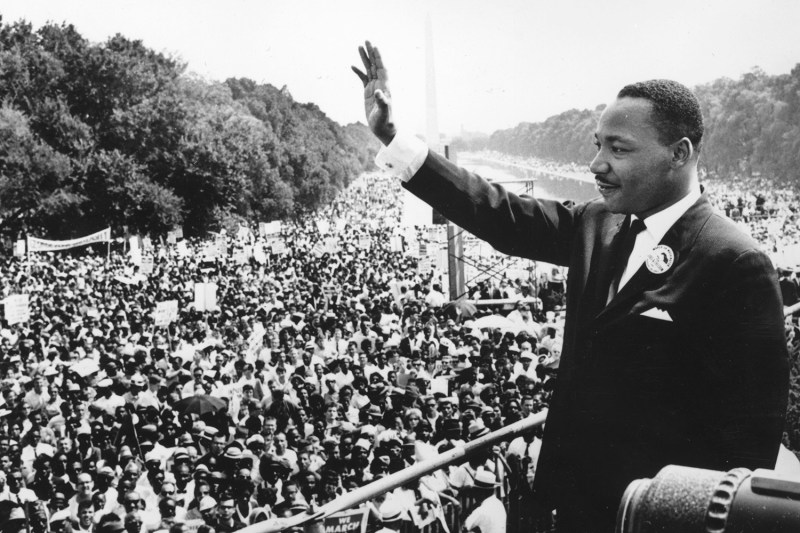
A great speech is something that combines persuasive writing, a comfort with public speaking , and a meaningful message to create an impression greater than the sum of its parts. There’s no one set of rules to govern the ideal speech, and plenty of people struggle with them even with teams of experts to help them out — just see the majority of speeches given by politicians. But once in a while, a truly great speaker and a truly great speech come together to create something that stands out and withstands the test of time, carrying meaning with it through generations even to those who weren’t yet born when it was given.
Martin Luther King, Jr.
Demosthenes, queen elizabeth i, george washington, abraham lincoln, chief joseph, winston churchill, john f. kennedy, barack obama, more famous speeches to inspire you.
Great speeches are more than just rhetorical flourish or impressive performance — they’re also calls to action, able to persuade and embolden the listener. These speeches can be inspiring, informative, and instructive, whether you’re interested in learning more about history or working on a speech of your own .
We’ve rounded up 10 of history’s greatest speeches, including excerpts so you can learn about how the power of a great speech can last for years.
1963 ‘I Have a Dream’ speech
The Reverend Martin Luther King, Jr. ‘s I Have a Dream speech, delivered on August 28, 1963, is one of the finest pieces of oratory in human history. It blended masterful, rich language with the oratorical technique of repetition and it was utterly fearless.
- The 5 best Super Bowl commercials of all time (and the 4 worst)
- 2024 Oscars nominations: The 10 biggest snubs (it’s not just Barbie)
- From college to the barbershop, here are the 10 best Simpsons episodes of all time, ranked
King would be dead by an assassin’s bullet less than five years after delivering his most famous speech. His words were no mere rhetoric; they were an affirmation of the value of human life and the expression of a cause for which he would give his own.
“I say to you today, my friends, so even though we face the difficulties of today and tomorrow, I still have a dream. It is a dream deeply rooted in the American dream. I have a dream that one day this nation will rise up and live out the true meaning of its creed, ‘We hold these truths to be self-evident, that all men are created equal’ … “I have a dream that my four little children will one day live in a nation where they will not be judged by the color of their skin but by the content of their character.”
341 BCE ‘Third Philippic’
Though you may not have heard of the Athenian orator Demosthenes, consider the fact that one of history’s most famed speakers of all time, Cicero, cited his ancient forebear 300 years later. Demosthenes’ Third Philippic , so-called because it was the third speech he gave devoted to convincing his fellow Athenians to take up arms against the encroaching forces of Phillip of Macedon, literally led men to war. At the end of his speech, delivered in 341 BCE, the Athenian Assembly moved at once against their rival, spurred on by lines damning the past inaction of his fellow citizens:
“You are in your present plight because you do not do any part of your duty, small or great; for of course, if you were doing all that you should do, and were still in this evil case, you could not even hope for any improvement. As it is, Philip has conquered your indolence and your indifference; but he has not conquered Athens. You have not been vanquished, you have never even stirred.
1588 ‘Spanish Armada’ speech t o the troops at Tilbury
In 1588, English monarch Queen Elizabeth I gave one of the manliest speeches in history, even at one point, putting down her own body for being female. As the “mighty” Spanish Armada, a flotilla of some 130 ships, sailed toward Britain with plans of invasion, the queen delivered a rousing address at Tilbury, Essex, England. As it turned out, a storm and some navigational errors took care of the Spanish warships for the most part. Still, it was a bold speech that helped bolster a nation. This speech also made Queen Elizabeth famous for the armor she wore in front of her troops.
“I am come amongst you, as you see, at this time, not for my recreation and disport, but being resolved, in the midst and heat of the battle, to live and die amongst you all; to lay down for my God, and for my kingdom, and my people, my honour and my blood, even in the dust. I know I have the body but of a weak and feeble woman; but I have the heart and stomach of a king, and of a king of England too, and think foul scorn that Parma or Spain, or any prince of Europe, should dare to invade the borders of my realm: To which rather than any dishonour shall grow by me, I myself will take up arms, I myself will be your general, judge, and rewarder of every one of your virtues in the field.”
1783 Resignation speech
To grasp the true power of George Washington ‘s resignation as the commander-in-chief of the U.S. military (then known as the Continental Army) on December 23, 1783, you have to go beyond the words themselves and appreciate the context. Washington was in no way obliged to resign his commission, but did so willingly and even gladly, just as he would later refuse a third term as president of the nation, establishing a precedent honored into the 1940s and thereafter enshrined in law. Despite being the most powerful man in the fledgling military and then becoming the most powerful man in the United States, the staid and humble Washington was never hungry for power for himself; he just happened to be the best man for the job(s).
Even in his last address as leader of the nation’s armed forces, Washington made it all about America, and not about himself:
“Happy in the confirmation of our Independence and Sovereignty, and pleased with the opportunity afforded the United States of becoming a respectable Nation, I resign with satisfaction the Appointment I accepted with diffidence. A diffidence in my abilities to accomplish so arduous a task, which however was superseded by a confidence in the rectitude of our Cause, the support of the Supreme Power of the Union, and the patronage of Heaven.”
1863 ‘Gettysburg Address’
There’s a reason many people consider the Gettysburg Address to be the best speech in American history: It probably is. In just 275 words on November 19, 1863, near Gettysburg, Pennsylvania, President Abraham Lincoln managed to express the following sentiments:
- America is both a place and a concept, both of which are worth fighting.
- Fighting is horrible, but losing is worse.
- We have no intention of losing.
Ironically, one line in Lincoln’s speech proved to be laughably inaccurate. Midway through the speech, he humbly said: “The world will little note, nor long remember what we say here.” In fact, the world continues to remember his brief yet very stirring address.
“In a larger sense, we cannot dedicate, we cannot consecrate — we cannot hallow — this ground. The brave men, living and dead, who struggled here have consecrated it far above our poor power to add or detract …
“It is for us the living, rather, to be dedicated here to the unfinished work which they who fought here have thus far so nobly advanced. It is rather for us to be here dedicated to the great task remaining before us; that from these honored dead we take increased devotion to that cause for which they here gave the last full measure of devotion; that we here highly resolve that these dead shall not have died in vain; that this nation, under God, shall have a new birth of freedom, and that government of the people, by the people, for the people, shall not perish from the Earth.”
1877 Surrender speech
On October 5, 1877, Nez Perce tribe leader Chief Joseph delivered a short, impromptu, and wrenching speech that many see as the lamentation of the end of an era for Native Americans and the lands that were stolen from them. Overtaken by the United States Army during a desperate multi-week retreat toward Canada, Chief Joseph surrendered to General Howard with this bleak, moving message:
“I am tired of fighting. Our chiefs are killed. Looking Glass is dead. Toohoolhoolzote is dead. The old men are all dead. It is the young men who say, ‘yes’ or ‘no.’ He who led the young men [Olikut] is dead. It is cold, and we have no blankets. The little children are freezing to death. My people, some of them, have run away to the hills, and have no blankets, no food. No one knows where they are — perhaps freezing to death. I want to have time to look for my children and see how many of them I can find. Maybe I shall find them among the dead. Hear me, my chiefs! I am tired. My heart is sick and sad. From where the sun now stands I will fight no more forever.”
1939 ‘Luckiest Man’ speech
No one wants a deadly disease named after them, but that’s what happened to baseball legend Lou Gehrig , who died at 37 after a brief battle with ALS, commonly known as “Lou Gehrig’s disease.” Following a career in which the Hall of Fame player earned many of baseball’s top honors and awards, Gehrig delivered one of the most touching speeches of the 20th century, a speech in which he brought comfort to those mourning his illness even as his health fell apart.
In essence, Gehrig told people not to worry about one dying man, but instead to celebrate all life had to offer as he listed all the wonderful things that occurred in his own life. In so doing, he brought solace to many and created a model of selflessness. Gehrig delivered this short speech at Yankee Stadium on July 4, 1939.
“Fans, for the past two weeks you have been reading about a bad break. Yet today I consider myself the luckiest man on the face of the earth. I have been in ballparks for 17 years and have never received anything but kindness and encouragement from you fans … “So I close in saying that I may have had a tough break, but I have an awful lot to live for.”
1940 ‘We Shall Fight on the Beaches’ speech
Winston Churchill delivered many superlative speeches in his day, including the 1946 address that created the term “Iron Curtain” to describe the boundary of Britain’s recent ally, the Soviet Union, and a 1940 speech praising the heroism of the British Royal Air Force in which he uttered the line: “Never was so much owed by so many to so few.”
But it was his bold and bolstering speech delivered on June 4, 1940, to the British Parliament’s House of Commons — commonly referred to as We Shall Fight on the Beaches — that most exemplifies the famed leader. These were more than just words — these were a promise to his nation that they were all in the fight wholeheartedly together and it was a heads-up to the Axis powers that attacking the Brits had been a bad idea.
“We shall go on to the end, we shall fight in France, we shall fight on the seas and oceans, we shall fight with growing confidence and growing strength in the air, we shall defend our Island, whatever the cost may be, we shall fight on the beaches, we shall fight on the landing grounds, we shall fight in the fields and in the streets, we shall fight in the hills; we shall never surrender.”
1961 inaugural address
Much of President John F. Kennedy ‘s pithy 1,366-word inaugural address, delivered on January 20, 1961, was well-written and meaningful, but as often happens, his speech has stood the test of time thanks to one perfect phrase. Amidst an address filled with both hope and dire warnings (“Man holds in his hands the power to abolish all forms of human poverty and all forms of human life,” the latter being a clear reference to atomic weapons), he issued a direct appeal to Americans everywhere to stand up for their country. You know the line:
“And so, my fellow Americans: Ask not what your country can do for you — ask what you can do for your country. My fellow citizens of the world: Ask not what America will do for you, but what together we can do for the freedom of man.”
2004 Democratic National Convention keynote address
When our future president – then a candidate for the U.S. Senate in Illinois – Barack Obama delivered a 17-minute speech on the evening of July 27, 2004, at the Democratic National Convention endorsing presidential candidate John Kerry, the personal trajectory of one man and the history of an entire nation shifted dramatically. Already an up-and-coming politician gaining traction in his home state of Illinois, Obama’s keynote address that night transformed him into a national figure and paved the way for his journey to becoming the first POTUS of color. What was it about the speech that so moved the country?
Partly, it was simply the excellent writing, most of which Obama handled himself. Perhaps more so, it was the message of the speech, which spoke to the “abiding faith in the possibilities of this nation.” In short, Obama reminded us of who we were supposed to be as citizens of this nation. And for a flickering moment, many of us heard him.
“There’s not a liberal America and a conservative America; there’s the United States of America. There’s not a Black America and white America and Latino America and Asian America; there’s the United States of America … “We are one people, all of us pledging allegiance to the stars and stripes, all of us defending the United States of America. In the end, that’s what this election is about. Do we participate in a politics of cynicism, or do we participate in a politics of hope?”
While we’ve taken an in-depth look at some of history’s most famous speeches, the list goes much further than those 10. Here are a few more great speeches that helped shape history that still have the power to inspire.
- 1941 – President Franklin Delano Roosevelt – Day of Infamy speech – Roosevelt’s address to Congress on December 8, 1941, came the day after the attack on Pearl Harbor. It’s best known for its opening line: “Yesterday, December 7, 1941 – a date which will live in infamy – the United States of America was suddenly and deliberately attacked by naval and air forces of the Empire of Japan.” The speech spurred Congress to declare war on Japan and thrust the U.S. into World War II.
- 1933 – President Franklin Delano Roosevelt – First Inaugural Address – Considering FDR served four terms during the end of the Great Depression and through World War II, it stands to reason that he would have some pretty famous speeches. His first inaugural address from 1933 is also remembered for one powerful line. As he discussed his plan to pull the country out of the Great Depression, he uttered this iconic line: “So, first of all, let me assert my firm belief that the only thing we have to fear is … fear itself.”
- 1986 – President Ronald Reagan – Address to the Nation on the Explosion of the Space Shuttle Challenger – when Reagan addressed the country on the night of January 28, 1986, the U.S. was reeling from seeing the Space Shuttle Challenger explode, just seconds after launch, killing the crew, which included Christa McAuliffe, who was to be NASA’s first teacher in space. Reagan was to have delivered his State of the Union speech to Congress that night but canceled it in the wake of the Challenger disaster. The speech included these memorable words of condolence: “We will never forget them, nor the last time we saw them, this morning, as they prepared for their journey and waved goodbye and ‘slipped the surly bonds of earth’ to ‘touch the face of God.'”
- 2001 – President George W. Bush – Address to the nation after 9/11 – The morning of September 11, 2001, Bush was at a Florida elementary school to meet with children. He would have no idea that the day would end with him addressing the country after the horrific terrorist attacks that brought down the World Trade Center and damaged the Pentagon. That night, Bush gave the country words of hope, saying that the attacks did nothing to damage the American spirit. “Today, our fellow citizens, our way of life, our very freedom came under attack in a series of deliberate and deadly terrorist acts,” Bush said. “The pictures of airplanes flying into buildings, fires burning, huge structures collapsing, have filled us with disbelief, terrible sadness, and a quiet, unyielding anger. These acts of mass murder were intended to frighten our nation into chaos and retreat. But they have failed; our country is strong.”
We hope you’re feeling more inspired and determined to make your own history after perusing this list. For more historical inspiration, check out ten of our favorite Black History films , a list of fantastic history books to read , a group of iconic photographs of people who changed history , and seven amazing books documenting LGBTQ+ history — not to mention the importance of historical heroes who have been often overlooked . However you intend to change your present and future, we wish you nothing but the best of luck.
Editors' Recommendations
- The 10 best SNL musical performances of all time
- The best, worst, and most infamous Super Bowl halftime shows of all time
- Somebody finally beat Tetris for the first time ever (but no one has ever won these super hard games)
- Famous last words from the most badass men of history
- Golf Pride reintroduces fan-favorite V55 Heritage grip in corded and rubber for a limited time

It used to be you didn't want to click on an email or link because it was a scammer pretending to be a prince trying to give away their money. Now, you never know if the meme or video you are about to click on is going to be someone trolling you into hearing Rick Astley's 1987 hit Never Gonna Give You Up. If you haven't been Rickrolled yet, tell us your secret. Embracing the iconic nature of the song, Rick Astley re-recorded the jam, but with a twist aimed at bringing awareness to a good cause.
There's animation, then there's Pixar. The animation studio owned by Disney revolutionized computer-generated entertainment in the late 1990s, and it has never looked back since. While Disney is known for bringing magic to the movie screen, Pixar's thematically rich stories and ultra-fleshed-out characters transcend the medium, making critics aware of the greatness that lies within CGI imagery. Pixar's reputation relied more on creativity and abstract, yet relatable concepts in its early years, while it's resided on the sequel content more in recent times. Whether you like one of the company's franchises or its standalone films more, you've surely been touched by the ethereal and effervescent style of Pixar. Here are the 10 best Pixar movies, ranked.
What makes a great thriller? It can be hard to put your finger on an answer, in part because the definition of a thriller is always changing. Some thrillers are also great action movies, while others could be defined as great horror movies, or at least horror adjacent. Thrillers exist in a nebulous zone in the middle; they're often fun to watch, but not the same joyride many action movies are, and they're also unsettling without being outright terrifying. The best thrillers are actively helping to define the genre, and that's what makes them so special.
What unites thrillers, though, is that great ones are riveting from their opening moments. They often tell stories of seedy underworlds or criminal enterprises, and they're often unafraid of being racy when they need to be. A great thriller should entertain you, but it should also leave you asking questions when you exit the theater. The thrillers we've assembled for this list all fit that bill to a tee, and have also stood the test of time as greats of the genre. These are the best thriller movies to watch, and helpful streaming information to make sure you can check them out.
Top 10 Greatest Speeches
As the political season heats up, TIME takes a tour of history's best rhetoric
From the Podium
- Patrick Henry
- Frederick Douglass
- Abraham Lincoln
- Susan B. Anthony
- Winston Churchill
- John F. Kennedy
- Martin Luther King, Jr.
- Lyndon B. Johnson
- Ronald Reagan
- Skip to primary navigation
- Skip to main content
- Skip to primary sidebar
- Skip to footer
Historyplex
7 of the Most Profound and Famous Short Speeches Ever Heard
There are many famous short speeches that have been a turning point in history. Here is a list of some of the most notable speeches ever.

Speech is power: Speech is to persuade, to convert, to compel. – Ralph Waldo Emerson This quote brilliantly summarizes the power of a good speech. There is no dearth of famous short speeches that have irrevocably influenced mankind and history.
Although the list may seem endless, and there will always be some or the other disagreement of which of these should figure in the list of popular speeches of all time, given below is a compilation of famous speeches by famous people including former presidents, politicians, a great visionary, and a world-renowned dramatist.These have gone down in history as something that people find relevant and influential even today. It is not necessary for a speech to be long to be famous, even a short one can be great, if it has an ability to mesmerize and inspire the audience. What follows, is a list of some of the most notable short speeches of all time. These were given at historical junctions, and had a significant impact at that time, and hold true even today. As these speeches continue to inspire many, they will go down in the annals of time.
Franklin D. Roosevelt’s Pearl Harbor Address
One of the most famous speeches given by a sitting American President, although it lasted just a little over seven and a half minutes, it managed to stir a nation’s patriotism to the very bone and was a significant point in American history. President Roosevelt gave the famous speech to a joint session of Congress, the day after the Japanese bombing of the Pearl Harbor in Hawaii. An excerpt from the speech is as follows:
December 7th, 1941, a date which will live in infamy… No matter how long it may take us to overcome this premeditated invasion, the American people in their righteous might, will win through to absolute victory… I ask that the Congress declare that since the unprovoked and dastardly attack by Japan on Sunday, December 7th, 1941, a state of war has existed between the United States and the Japanese empire.
Ronald Reagan’s Speech Following the Challenger Disaster
American President Ronald Reagan made his famous short speech on national television following the disastrous explosion of the Challenger Space Shuttle. On 26 January, 1986 after only 73 seconds into its flight, the space shuttle broke apart, causing the death of all the seven crew members on board, including a classroom teacher who had been chosen to be the first ever non-astronaut classroom teacher to travel into space. President Reagan spoke of the traumatic accident saying:
Today is a day for mourning and remembering. Nancy and I are pained to the core by the tragedy of the shuttle Challenger. We know we share this pain with all people of our country. This is truly a national loss… Nineteen years ago, almost to the day, we lost three astronauts in a terrible accident on the ground. But we’ve never lost an astronaut in flight. We’ve never had a tragedy like this. And perhaps we’ve forgotten the courage it took for the crew of the shuttle. But they, the Challenger Seven, were aware of the dangers, but overcame them and did their jobs brilliantly. We mourn seven heroes: Michael Smith, Dick Scobee, Judith Resnik, Ronald McNair, Ellison Onizuka, Gregory Jarvis, and Christa McAuliffe. We mourn their loss as a nation together. One of President John F. Kennedy’s most famous speech, was given on 26 June, 1963, to consolidate United States’ support for West Germany a little less than two years after the Communist East Germany erected the Berlin Wall. One of the most famous phrases in history “ Ich bin ein Berliner “, was in fact a last-minute brain child of Kennedy, who came up with the idea of saying it in German, while he was walking up the stairs at the Rathaus (City Hall). It was a great motivational speech for West Berliners, who lived in the constant fear of a possible East German occupation. Given below is an excerpt from this historic speech:
Two thousand years ago the proudest boast was ‘Civis Romanus sum [I am a Roman citizen]’. Today, in the world of freedom, the proudest boast is ‘Ich bin ein Berliner’… All free men, wherever they may live, are citizens of Berlin, and, therefore, as a free man, I take pride in the words ‘Ich bin ein Berliner!’

Bill Clinton’s “I Have Sinned” Speech
The famous, or rather infamous “I have sinned” speech, was delivered by President Bill Clinton at the annual White House prayer breakfast on September 11, 1998, in the presence of several ministers, priests and his wife, First Lady Hillary Rodham Clinton. It was hand-written by the President Clinton himself and was delivered on the day of the publication of the first report by Independent Counsel Ken Starr, which threatened to impeach the President Clinton on the grounds of perjury and his sexual affair with former White House intern, Monica Lewinsky.
I agree with those who have said that in my first statement after I testified I was not contrite enough. I don’t think there is a fancy way to say that I have sinned. It is important to me that everybody who has been hurt know that the sorrow I feel is genuine: first and most important, my family; also my friends, my staff, my Cabinet, Monica Lewinsky and her family, and the American people. I have asked all for their forgiveness… But I believe that to be forgiven, more than sorrow is required – at least two more things. First, genuine repentance – a determination to change and to repair breaches of my own making. I have repented. Second, what my bible calls a ”broken spirit”; an understanding that I must have God’s help to be the person that I want to be; a willingness to give the very forgiveness I seek; a renunciation of the pride and the anger which cloud judgment, lead people to excuse and compare and to blame and complain…
Martin Luther King’s “I Have a Dream” Speech
“I have a dream” speech by Martin Luther King Jr., which was delivered on 28 August, 1963 at the steps of the Lincoln Memorial during the March on Washington for Jobs and Freedom , was a path-breaking moment for the Civil Rights Movement in America. Given to an audience of more than 200,000 people, this speech was ranked as the top American speech by a 1999 poll of scholars.
I say to you today, my friends, that in spite of the difficulties and frustrations of the moment, I still have a dream. It is a dream deeply rooted in the American dream. I have a dream that one day this nation will rise up and live out the true meaning of its creed: “We hold these truths to be self-evident: that all men are created equal.” I have a dream that one day on the red hills of Georgia the sons of former slaves and the sons of former slave-owners will be able to sit down together at a table of brotherhood. I have a dream that one day even the state of Mississippi, a desert state, sweltering with the heat of injustice and oppression, will be transformed into an oasis of freedom and justice. I have a dream that my four children will one day live in a nation where they will not be judged by the color of their skin but by the content of their character. I have a dream today. I have a dream that one day the state of Alabama, whose governor’s lips are presently dripping with the words of interposition and nullification, will be transformed into a situation where little black boys and black girls will be able to join hands with little white boys and white girls and walk together as sisters and brothers. I have a dream today. I have a dream that one day every valley shall be exalted, every hill and mountain shall be made low, the rough places will be made plain, and the crooked places will be made straight, and the glory of the Lord shall be revealed, and all flesh shall see it together.
William Shakespeare’s Speeches
The Bard has left behind his legacy in ways more than one. Most of the non-political popular speeches have been written by William Shakespeare. While there are many, like Hamlet’s “To be or not to be…”, and Portia’s speech in Merchant of Venice “The quality of mercy is not strain’d…” to name a few, the Bard’s most famous speech till date is the speech by Jaques in “As You Like It”, which goes as…
All the world’s a stage, And all the men and women merely players: They have their exits and their entrances; And one man in his time plays many parts, His acts being seven ages. At first the infant, Mewling and puking in the nurse’s arms. And then the whining school-boy, with his satchel And shining morning face, creeping like snail Unwillingly to school. And then the lover, Sighing like furnace, with a woeful ballad Made to his mistress’ eyebrow. Then a soldier, Full of strange oaths and bearded like the pard, Jealous in honour, sudden and quick in quarrel, Seeking the bubble reputation Even in the cannon’s mouth. And then the justice, In fair round belly with good capon lined, With eyes severe and beard of formal cut, Full of wise saws and modern instances; And so he plays his part. The sixth age shifts Into the lean and slipper’d pantaloon, With spectacles on nose and pouch on side, His youthful hose, well saved, a world too wide For his shrunk shank; and his big manly voice, Turning again toward childish treble, pipes And whistles in his sound. Last scene of all, That ends this strange eventful history, Is second childishness and mere oblivion, Sans teeth, sans eyes, sans taste, sans everything.
Steve Jobs ‘Stay Hungry, Stay Foolish’ Speech
One of my personal favorites, and a speech that today’s youth identify themselves with, is the Apple CEO Steve Jobs’ commencement speech on 12 June, 2005 at Stanford, which was replete with inspirational quotes. His last words in the address “ Stay hungry, stay foolish ” is one of the most famous quotes and is echoed the world over even today, and spurred on a bestselling book of the same name. It summed up his life in three parts, which he narrated in the form of three stories. This is a small excerpt from this notable short inspirational speech:
I am honored to be with you today at your commencement from one of the finest universities in the world. I never graduated from college. Truth be told, this is the closest I’ve ever gotten to a college graduation. Today I want to tell you three stories from my life. That’s it. No big deal. Just three stories… When I was young, there was an amazing publication called The Whole Earth Catalog, which was one of the bibles of my generation. It was created by a fellow named Stewart Brand not far from here in Menlo Park, and he brought it to life with his poetic touch. This was in the late 1960s’, before personal computers and desktop publishing, so it was all made with typewriters, scissors, and polaroid cameras. It was sort of like Google in paperback form, 35 years before Google came along: it was idealistic, and overflowing with neat tools and great notions.
Stewart and his team put out several issues of The Whole Earth Catalog, and then when it had run its course, they put out a final issue. It was the mid-1970s, and I was your age. On the back cover of their final issue was a photograph of an early morning country road, the kind you might find yourself hitchhiking on if you were so adventurous. Beneath it were the words: “Stay Hungry. Stay Foolish.” It was their farewell message as they signed off. Stay Hungry. Stay Foolish. And I have always wished that for myself. And now, as you graduate to begin anew, I wish that for you.
Stay Hungry. Stay Foolish.
Like it? Share it!
Get Updates Right to Your Inbox
Further insights.

Privacy Overview
- NONFICTION BOOKS
- BEST NONFICTION 2023
- BEST NONFICTION 2024
- Historical Biographies
- The Best Memoirs and Autobiographies
- Philosophical Biographies
- World War 2
- World History
- American History
- British History
- Chinese History
- Russian History
- Ancient History (up to 500)
- Medieval History (500-1400)
- Military History
- Art History
- Travel Books
- Ancient Philosophy
- Contemporary Philosophy
- Ethics & Moral Philosophy
- Great Philosophers
- Social & Political Philosophy
- Classical Studies
- New Science Books
- Maths & Statistics
- Popular Science
- Physics Books
- Climate Change Books
- How to Write
- English Grammar & Usage
- Books for Learning Languages
- Linguistics
- Political Ideologies
- Foreign Policy & International Relations
- American Politics
- British Politics
- Religious History Books
- Mental Health
- Neuroscience
- Child Psychology
- Film & Cinema
- Opera & Classical Music
- Behavioural Economics
- Development Economics
- Economic History
- Financial Crisis
- World Economies
- Investing Books
- Artificial Intelligence/AI Books
- Data Science Books
- Sex & Sexuality
- Death & Dying
- Food & Cooking
- Sports, Games & Hobbies
- FICTION BOOKS
- BEST NOVELS 2024
- BEST FICTION 2023
- New Literary Fiction
- World Literature
- Literary Criticism
- Literary Figures
- Classic English Literature
- American Literature
- Comics & Graphic Novels
- Fairy Tales & Mythology
- Historical Fiction
- Crime Novels
- Science Fiction
- Short Stories
- South Africa
- United States
- Arctic & Antarctica
- Afghanistan
- Myanmar (Formerly Burma)
- Netherlands
- Kids Recommend Books for Kids
- High School Teachers Recommendations
- Prizewinning Kids' Books
- Popular Series Books for Kids
- BEST BOOKS FOR KIDS (ALL AGES)
- Ages Baby-2
- Books for Teens and Young Adults
- THE BEST SCIENCE BOOKS FOR KIDS
- BEST KIDS' BOOKS OF 2023
- BEST BOOKS FOR TEENS OF 2023
- Best Audiobooks for Kids
- Environment
- Best Books for Teens of 2023
- Best Kids' Books of 2023
- Political Novels
- New History Books
- New Historical Fiction
- New Biography
- New Memoirs
- New World Literature
- New Economics Books
- New Climate Books
- New Math Books
- New Philosophy Books
- New Psychology Books
- New Physics Books
- THE BEST AUDIOBOOKS
- Actors Read Great Books
- Books Narrated by Their Authors
- Best Audiobook Thrillers
- Best History Audiobooks
- Nobel Literature Prize
- Booker Prize (fiction)
- Baillie Gifford Prize (nonfiction)
- Financial Times (nonfiction)
- Wolfson Prize (history)
- Royal Society (science)
- Pushkin House Prize (Russia)
- Walter Scott Prize (historical fiction)
- Arthur C Clarke Prize (sci fi)
- The Hugos (sci fi & fantasy)
- Audie Awards (audiobooks)
Make Your Own List
History Books » Contemporary History (1945-)
The best speeches of all time, recommended by clarence b jones.

Behind the Dream by Clarence B Jones
Which were the best speeches ever made? Clarence B Jones , lawyer, friend and adviser to Martin Luther King Jr—and contributor to the ‘I Have a Dream’ speech—chooses his top five, and explains what is that makes these famous speeches so good.
Interview by Anna Blundy
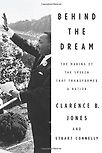
Franklin D Roosevelt’s inaugural address, 4 March 1933 by Various authors
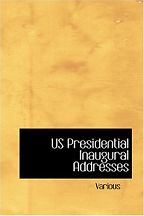
John F Kennedy’s inaugural address, 20 January 1961 by Various authors

Laurence Olivier’s Oscar Acceptance Speech (1979) by YouTube video
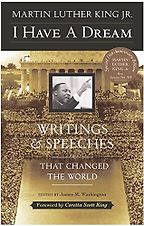
Dr Martin Luther King, Jr’s ‘I Have a Dream’ speech, 28 August 1963 by Martin Luther King Jr
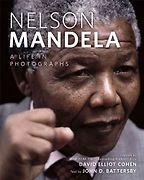
Nelson Mandela’s inaugural address as President of South Africa, 10 May 1994 by David Elliot Cohen
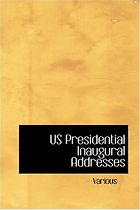
1 Franklin D Roosevelt’s inaugural address, 4 March 1933 by Various authors
2 john f kennedy’s inaugural address, 20 january 1961 by various authors, 3 laurence olivier’s oscar acceptance speech (1979) by youtube video, 4 dr martin luther king, jr’s ‘i have a dream’ speech, 28 august 1963 by martin luther king jr, 5 nelson mandela’s inaugural address as president of south africa, 10 may 1994 by david elliot cohen.
Y ou’ve chosen what you regard as the best speeches of all time for us and Roosevelt’s Inaugural Address is your first choice. Tell me about this speech.
What is it about the actual speech, about the way it’s written, that is so brilliant?
Well, what impressed me about the speech was that, to me, the measure of or index of a good speech is not merely the words that are festooned together and spoken – presumably by someone who has a good delivery or even an exceptional delivery – but the extent to which the text of speech, the substance of the speech, is responsive and addresses the major issues of the time. I wasn’t so concerned about Roosevelt’s delivery, but I measured the text against the magnitude of the problem to which it was addressed.
The famous line is: ‘We have nothing to fear but fear itself.’
Tell me about JFK’s inaugural address.
Well, JFK , as you know, or maybe you don’t know, won the presidential election by merely 120,000 popular votes over Richard Nixon. The country was clearly divided; we were in the apex of what one would now describe as the Cold War, the great competition between ourselves and the Soviet Union, and here this younger man had taken over from Eisenhower, a World War II hero. This young man, whose inauguration day was relatively cold, some would say freezing cold, gave the address with no hat on, no scarf on, signalling the health and vitality of the new younger generation. He enumerated the problems that the country was confronted with, and then, of course, came the classic line: ‘Ask not what your country can do for you, but what you can do for your country.’
“In my judgement, the measure of a speech is not merely the text or words, or even the person who delivers the speech, but the context of the speech.”
Just recently we had the passing of Sargent Shriver, who was the architect of the Peace Corps, the most celebrated form of government volunteer service that this country has ever had. The Peace Corps came out of the Kennedy administration. What came out of the address was that we could indeed be competitive with the Soviet Union, that this was a new generation coming into power and he wanted to say to the people that this new generation was ready – professionally ready, managerially ready, morally ready, militarily ready. It was up to the task.
Who wrote it?
Well, Theodore Sorensen contributed to it.
Did he write most of JFK’s speeches or help write them?
Tell me about Laurence Olivier’s Oscar acceptance speech (which I’ll quote for our readers, since it’s not very long).
“Mr President and governors of the Academy, committee members, fellows, my very noble and approved good masters, my colleagues, my friends, my fellow students: In the great wealth, the great firmament of your nation’s generosities this particular choice may perhaps be found by future generations as a trifle eccentric, but the mere fact of it – the prodigal, pure, human kindness of it – must be seen as a beautiful star in that firmament which shines upon me at this moment dazzling me a little, but filling me with the warmth of the extraordinary elation, the euphoria that happens to so many of us at the first breath of the majestic glow of a new tomorrow. From the top of this moment, in the solace, in the kindly emotion that is charging my soul and my heart at this moment, I thank you for this great gift which lends me such a very splendid part in this, your glorious occasion. Thank you.”
It was a very short speech, and its power was in its spontaneity and its erudition. I don’t have to tell you that he was one of the great actors of the 20th century. A number of people who get Academy Awards come up and read from a written text or they say something that is kind of banal, but Olivier quoted some Shakespeare. It was very eloquent. It really spoke about the fact that he was honoured and humble – but it was just the way he spoke to this group of actors and actresses, and an example of the magnificent use of language.
What did he win for?
So, now we’re moving on to your speech. The Martin Luther King .
Well, the Martin Luther King speech, of course… To understand it, you have to see it within the historical context. It was made three months after a very successful and very searing campaign in Birmingham, Alabama, in April of 1963, when the country and the world saw pictures of young negro girls and boys being pummelled against a wall with fire hoses and police dogs nipping at their ankles as they were peacefully marching in opposition to racial segregation. So that was April 63, and then, in August, some four months later, King was speaking at the foot of the Lincoln Memorial to more than 250,000 people. He was speaking to celebrate and to validate the success of the civil rights movement at that point, but also speaking prophetically about his hope for a better America. The ‘I Have A Dream’ speech, the portion that is most talked about, was totally spontaneous and extemporaneous. It wasn’t written.
You didn’t write that bit?
No. The contribution I made was in the first nine paragraphs. What happened was that as he got through reading the first nine paragraphs of prepared texts to which I contributed some language and concepts, he was interrupted by his favourite gospel singer, Mahalia Jackson, who was on the podium with him, and he paused in the middle of his speaking and she shouted: ‘Tell them about the dream, Martin! Tell them about the dream!’ At which point he put aside the written text. I was standing about 15 yards behind him, and I saw him, I read his body language and I said to the person standing next to me: ‘The people assembled here, they don’t know it, but they’re about ready to go to church.’ It appeared to me that he had gone into his preacher’s body mode.
What did that mean?
Well, before, he stood at the podium reading the text and looking up, but once he decided to speak extemporaneously he assumed a pose I had seen so many times when he was preaching a sermon from a pulpit, being a Baptist minister. He was no longer just a speaker at a public assembly, it was like he was speaking to a massive congregation in a church. And that’s when he went off into this extraordinary ‘I have a dream…’
Get the weekly Five Books newsletter
What did you think? Did you think, ‘Oh no! What’s he doing to my speech?’
No! First of all, I didn’t consider it ‘my’ speech. I didn’t even know if he was going to incorporate and use the material in the first nine paragraphs. I didn’t know that until I heard it for the first time. I just thought it was rather bold and extraordinary for him to cast aside the written text, but Martin Luther King, Jr was a master orator. He didn’t need a written text to speak eloquently. Using contemporary parlance, I say to people that Martin Luther King, Jr was the only person I have ever observed or known – and I’ve never ever seen or heard anyone do it since – who could compose a speech extemporaneously in real time and while he was speaking. Like we use computer skills, he could cut and paste in his mind from previous speeches or writings and he could insert those excerpts into his real time speech. It was an extraordinary ability. It was a transcendental experience to be there. It was like watching lightning captured in a bottle.
I’m fascinated by what you say about him getting carried away and going into preacher mode, because I saw Bill Clinton speak at the London School of Economics, and he is a captivating speaker…
Yes, he is.
He got everyone in the room to fall in love with him, including an 80-year-old Republican oil magnate sitting next to me, but what he did was, he read slowly and falteringly for the first few paragraphs and then he put the speech aside and leant forward to go into preacher mode. He was probably trying to look like Martin Luther King.
That would be a very challenging task. I am frequently asked, since Dr King’s assassination on 4 April 1968: ‘Who today is most like Martin Luther King, Jr?’ I answer the question very quickly. I say: ‘Who today is most like Shakespeare, like Leonardo Da Vinci, like Michelangelo, like Beethoven, like Mozart? Who? No one.’
But they’re trying!
They try. Some people foolishly try, I believe.
I was just thinking about the wonderful oratorical techniques…
Well, Martin Luther King, Jr was a fourth-generation Baptist preacher, and I spent a good part of the 1960s not only around him but around a lot of other preachers. I would say during that period that there is a style, there is an inside way in which they talk about how they preach, and when you go and preach, they say, you have to be capable of telling them the story. You have to tell the story. The story is going to be whatever your text is going to be that day, but you have to tell it, in eloquent words, using various techniques, such as repetition. Some preachers will repeat a key phrase two or three times to make their point. Martin Luther King was the most gifted orator I had ever heard and that I can ever remember hearing in my lifetime. No one, no person I have ever heard, any place, any time, anywhere on this earth can speak as eloquently as Martin Luther King, Jr.
You sound as if you did know, while you were standing there, what kind of impact the speech was having. Do you think everybody did? Did it seem as momentous then as it does now, or did it seem more momentous then than it does now?
Well, when Dr King was introduced, he was the last speaker of the formal programme, and everyone had been waiting. So when A Philip Randolph said, in this deep sonorous voice, ‘And now, ladies and gentlemen, brothers and sisters, the man and the voice that we have been waiting for, the unquestioned moral leader of this nation – I am pleased to introduce the Reverend Dr Martin Luther King, Jr,’ the place exploded. The place was electrified; it was like he had dropped a match and more than 250,000 people exploded in public adulation and acclaim for the person who was about to address them. And then, while he was speaking, particularly when he began to speak extemporaneously in his Baptist preacher mode, it was transcendental. I had heard and seen Martin Luther King give many speeches, under many different circumstances, but this speech was extraordinary.
Support Five Books
Five Books interviews are expensive to produce. If you're enjoying this interview, please support us by donating a small amount .
Tell me, lastly, about the Nelson Mandela. It’s not going to compare at all – I’m feeling sorry for Nelson now!
Well, you should not. Remember what I said earlier? In my judgement, the measure of a speech is not merely the text or words, or even the person who delivers the speech, but the context of the speech. And here the power of Nelson Mandela’s speech is not merely the words he has put together, but the power of the context. Here is a man who was in prison for 27 years, and now he is addressing the country on his inauguration as its president after a period of painful governance, a period of rigid, brutal apartheid. This former political prisoner is now president of the country, and he gives a speech in an effort to guide the country through a peaceful transition to a multiracial society. I mean, what a circumstance! The power, even the pomp and circumstance of the parliament and legislature, and you have President Nelson Mandela of South Africa addressing his country for the first time as president of the republic of South Africa. It’s the context! It’s the power of the moment!
Is it a good speech, though, in itself?
Yes. It’s a good speech. It’s a speech that is responsive and relevant to the particular historical moment in time. If you know anything about South Africa… When did he give the speech?
If you know anything about the preceding 25 years, that has to be an amazing speech. If I just say to you: ‘The former prisoner of Robben Island who was incarcerated for 27 years is now speaking as President of South Africa,’ that says it all.
It does. If you’re only allowed one of these speeches, I assume you’re taking Dr King’s?
If I’m only allowed one of the speeches…
Or you’re only allowed one line from one of the speeches.
Oh, then no question, Martin Luther King. There are two lines. First of all the beginning – and this is a paraphrase, it’s not exact: ‘We’ve come here to the foot of this great monument to redeem a promissory note that has been returned unpaid for insufficient funds.’ The promissory note is the guarantee of negroes’ freedom under the Declaration of Independence, and he says: ‘I refuse to believe that there are insufficient funds in the vaults of justice.’ That’s language that I crafted. And the other part I think is so moving if you know something about the history of the United States of America. ‘I have a dream that one day the great-great-grandsons of slaves and the great-great-grandsons and granddaughters of slave owners will sit down at the table of brotherhood. I have a dream, one day…’ Think about it. He dreams that the country will become one America, that it will become so reconciled that the descendents of former slave masters and former slaves will sit down at the table of brotherhood in our country. If you look at the speech or listen to it carefully, it’s all in the future tense. ‘One day I will…’ It’s always prophetic, always in the future. He reflected a more prophetic confidence in America than America had in itself.
This interview was published in 2011.
December 13, 2012
Five Books aims to keep its book recommendations and interviews up to date. If you are the interviewee and would like to update your choice of books (or even just what you say about them) please email us at [email protected]
Clarence B Jones
Clarence B Jones is the former personal counsel, adviser, draft speech writer and close friend of Dr Martin Luther King, Jr. He is Scholar in Residence at the Martin Luther King Jr Research and Education Institute at Stanford University.
We ask experts to recommend the five best books in their subject and explain their selection in an interview.
This site has an archive of more than one thousand seven hundred interviews, or eight thousand book recommendations. We publish at least two new interviews per week.
Five Books participates in the Amazon Associate program and earns money from qualifying purchases.
© Five Books 2024
- International edition
- Australia edition
- Europe edition

All the world’s a stage: five of the best monologues
From Doctor Faustus to Fleabag, here are the most stirring speeches from some of theatre’s best works
“Another heavenly day,” exclaims Winnie, while trapped up to her waist in a huge mound of earth. Samuel Beckett’s Happy Days is effectively one gargantuan monologue and there is something about its limited horizons – and the achingly persistent optimism of its protagonist – that touches a nerve right now. Weirdly cheering – and chilling.
‘Let Faustus live in hell a thousand years’
Doctor faustus.
Doctor Faustus’s final speech in Christopher Marlowe’s play, as the gates of hell yawn open, will scorch itself on to your memory. It is one of the most distilled expressions of fear – and pure longing for life – that you’ll ever hear. Listen to Dylan Thomas recite it online and shiver.
A sweary final speech
The best bits of Phoebe Waller-Bridge’s play – currently streaming on Amazon Prime – are not the shocking or sexy moments, but glimpses of vulnerability. There is the quietly profound chat with cafe regular Joe and then there’s Fleabag’s final speech, full of loneliness, fear – and plenty of fucks.

‘Of comfort no man speak!’
Bolingbroke is in the ascendancy and Richard is on the way out. In one spellbinding monologue, a king lets his mask slip and confronts his own mortality, and the scant protection a crown provides. You can find stunning renditions from Ben Whishaw and David Tennant online.
‘He was a boy’, Blanche DuBois
A streetcar named desire.
Blanche DuBois is typically remembered as a fading beauty, teetering on the brink of mental collapse. But Tennessee Williams’s fragile heroine is also smart, sensitive and exceptionally perceptive. Her speech about young love – tingling with hope and loss – is unforgettable.
- Samuel Beckett
- Phoebe Waller-Bridge
- William Shakespeare
- Tennessee Williams
Most viewed
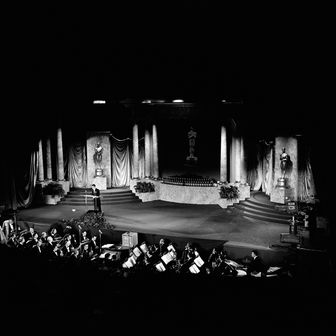
Things you buy through our links may earn Vox Media a commission.
The 50 Greatest Awards-Show Speeches of the Last 55 Years
The best acceptance moments make or break careers, cement fandoms, and spark blind items..
This article was featured in One Great Story , New York ’s reading recommendation newsletter. Sign up here to get it nightly.
The entire room was holding its collective breath when Olivia Colman beat odds-favorite Glenn Close to the Best Actress Oscar in 2019. Close had long been expected to win the season’s biggest prize for her performance in The Wife — a movie in which she plays the wife of all wives — having already taken home the Golden Globe for Best Actress in a Drama and other precursor awards. Colman also won a Golden Globe that year, for Best Actress in a Musical or Comedy , for her part as the gouty, manipulated Queen Anne in The Favourite , and her tipsy speech (in which she thanked her “bitches” and extolled private jets) fortified what prognosticators already thought: Colman was funny, but Close was the serious winner. Until she wasn’t. In the face of such upset, what would Colman say?
Looking out onto a crowd she didn’t expect to face, Colman reached for the truth: to win, she said, is “ genuinely quite stressful ,” before admitting, through gasps and tears, it’s also “hilarious.” It’s an accurate two-part description of the general allure of awards shows, which can present moments both laughable and genuinely thrilling. We anticipate the Oscars and its kindred ceremonies for their red carpets and host monologues and cinematic montages and the times when Queen Latifah sings something, but we endure the hours-long award-show broadcasts for the psychic whiplash of acceptance speeches, when the polished Hollywood stars we admire are caught earnestly surprised, gracious, or moved to tears — or, just as captivating, when they perform surprise, gratitude, and deeply felt emotion and make it all seem genuine. Even the most choreographed of speeches embrace the power of pure spectacle, becoming windows into souls that are, at their core, either deeply beholden to the people who helped them along the way or deeply vengeful toward the people who didn’t help them along the way. Some of the best read like blind items forming live on our TV screens.
Back at the Oscars, Colman eventually composed herself and delivered a heartfelt and perfectly meandering ode to Close, Colman’s kids, her husband of 25 years, her agent, little girls practicing speeches in front of the telly, some people at Fox, Yorgos Lanthimos and her aforementioned “bitches” castmates, and, for no apparent reason other than she’s sitting in the front row of the audience, Lady Gaga — every appreciation customized for the subject and punctuated by genuine physical outbursts, as though her ecstatic brain was warring with her stunned body. It is a spectacle you can’t peel your eyes from that builds with tension until she blows a kiss to Ally Maine and relinquishes the stage to, as promised, snog anyone she forgot to acknowledge. Like any unforgettable speech giver, she managed to meet the high-stakes moment in which she found herself.
Watching as many acceptance speeches as we have as hosts of a podcast with the name “Oscar” in it , we’ve come to appreciate the specific qualities that separate the merely adequate awards-ceremony speeches (from nearly every male performer) from the truly special ones (from actresses, plus certain ornery old men and at least one rabble-rousing documentarian). The greatest acceptance speeches are enthusiastic like Colman’s without verging into inscrutability (sorry, Roberto Benigni ), though exceptions exist for speeches that are so low energy it’s the gag. They are quotable, with at least one defining line of speech, even if it’s the only line of speech (see Nos. 31 and 23 on this list). Sincerity in a speech is more important than the message; it’s why a baffling but believable reaction to winning an Oscar is cemented in our brains before the ones that are dutifully gracious or that perfunctorily advocate for something beyond the recipient’s own skills. (Although everyone loves a scorched-earth speech — see No. 14 on this list). And, of course, the prestige level of the award show itself matters; a memorable speech at the Oscars can outrank one of the same caliber at the Globes, because the pins-and-needles suspense at the pinnacle of awards season only ups the ante of the viewing experience. At the same time, a precursor speech of lower standing can tip the scales of an Oscar campaign, and we recognized those too. (In the interest of variety, we also only considered one speech per actor per awards cycle; sorry, Colman’s breathy “hi” at the Globes, but her breathy “hi” at the Oscars was better.)
This year, an already dense awards season will see the Emmys wedged in between the Golden Globes and the Academy Awards, so what better time to revisit unforgettable awards-season moments by acknowledging the 50 speeches of the last 55 years? (To be eligible for this list, speeches needed to be archived somewhere online, and the earliest recording here dates back to 1969.) While the Grammys will also be broadcast next month, we’re keeping this ranking to screen and stage awards (the MTV movie awards qualify, but the VMAs do not), where the art of the acceptance speech has been perfected by stars who make a living performing dialogue and the filmmakers and craftspeople who make them look good doing it. (Speeches by below-the-line artists were eligible for this list, but our final 50 ended up favoring the performers of Hollywood.) And remember, this ranking is about speeches , not bits. Winona Ryder mugging behind David Harbour’s SAG Ensemble speech for Stranger Things ? Good meme, beautiful meme, but you won’t see Harbour’s acceptance moment celebrated here.
50. Patti LuPone, 62nd Tony Awards (2008)
Best Performance by an Actress in a Leading Role, Gypsy
The Tony Awards are where we’re most reliably reminded that “Stars, they are not like us. Its recipients are accustomed to not only the spotlight but commanding a theater of people eight times a week. Take, for example, Patti LuPone, who in 2008 won the second of her three Tonys as Mama Rose in a revival of Gypsy . It was her first win in nearly three decades, despite boasting one of the most revered careers in the American theater. With a sense of glory and triumph usually reserved for horn sections, LuPone amended a prepared speech from a previous loss (hilarious!) and trilled through an inventory of thank-yous that spanned multiple theater companies and professionals, up to and including the ghosts of the St. James Theatre. But as one of Broadway’s grand dames, naturally she still comes off as earnest and heartfelt doing it. When the orchestra begins to play over her speech (we’ll have more of those, just wait), she’s affable to it at first, but then she erupts like an ocean squall full of pent-up Tony losses and earned litigiousness toward Andrew Lloyd Webber: “Shut up! It’s been 29 years!”
49. Ben Affleck and Matt Damon, 70th Academy Awards (1998)
Best Screenplay Written Directly for the Screen, Good Will Hunting
Speaking of yelling: Sometimes when you win an award, the Boston jumps out. The otherwise prim quality of an awards ceremony can favor a speech where the winner’s enthusiasm and wide-eyed disbelief are at full volume. Here, Affleck and Damon maintain the composure expected in a ceremony like the Oscars (Affleck even says the words “We’re fortunate enough to be involved with a lot of great people upon whom it’s incumbent upon us to thank”) … before basically ending their speech doing keg stands. Like a pair of brothers with a fancy new toy, their thank-yous get louder, more tangled, more manic. Producers are great! Moms are beautiful! Their hometown is everything! Affleck’s voice eventually cracks and the effusion comes to a halt. They really were just two young guys!
48. Ving Rhames, 55th Golden Globe Awards (1998)
Best Actor — Miniseries or Television Film, Don King: Only in America
Over the years, the Golden Globes has earned a reputation for being the awards show where all the craziest shit happens. And that reputation was probably formed around the time Ving Rhames tried to give his best actor trophy to Jack Lemmon. The entire moment is a generosity battle between two unyielding mensches. First of all, Rhames is endearingly formal in asking “Mr. Jack Lemmon” to emerge from the crowd and take the stage. Lemmon is in a daze as he takes the long route to the stage. Rhames tells Lemmon he’s not going to give him the Globe — so as not to scare him off, then gives Lemmon the award as soon as he arrives at the mic. At this point, Lemmon’s basically playing one of his everyman characters, trying to figure out in real time whether the right thing to do is hand the award back or accept Rhames’s gesture in the spirit in which it was intended. Meanwhile, in the audience, Goldie Hawn is in tears, Jodie Foster is laughing her ass off, and Jack Nicholson is cheekily suggesting Lemmon pass the award to him next. Despite the “you take it, no you take it” tug-of-war that nearly ends with the statue getting dropped, both Rhames and Lemmon ultimately combine for an incredible tandem speech. Rhames brings emotion (the tears come quickly and don’t stop) and the elegance (a Stanislavsky quote). You get the sense that only someone as emotionally open as Rhames would have ever made the gesture, and only someone as seasoned as Lemmon could have rolled with the punch.
47. Susan Lucci, 26th Daytime Emmy Awards (1999)
Outstanding Lead Actress in a Drama Series, All My Children
The occasion of Susan Lucci finally winning a Daytime Emmy after 18 previous nominations failed to result in a statue would have been enough to enshrine this moment in awards-show history. But Lucci went on to deliver a speech worthy of soap opera history, too. After lapping up the absolute pandemonium of the crowd (Rosie O’Donnell weeping; Oprah Winfrey hollering from the wings of the stage) for nearly 90 seconds, smiling, gasping, squealing, and bursting with “I can’t believe it’s,” Lucci eventually thanks the audience, her husband and kids, and the team at All My Children . But she gets into an oratory groove when she mentions that she was originally seen by casting directors as merely an “ethnic type,” only good enough to appear every other Tuesday. Lucci then points to Agnes Nixon, the great matriarch of daytime drama, for “changing the face of our medium” — placing her own struggle for legitimacy in the historical context of soaps’ perpetual uphill climb for industry respect. And she’s right to do so — Lucci’s quest for a long-awaited Daytime Emmy helped legitimize the awards by giving them a level of intrigue every year. And by the end of the speech, she might as well be standing in the middle of Pine Valley’s town square. She’s fully slipped into Erica Kane’s version of magnanimity, standing proudly beneath the stage lights, promising her legions of fans that she’ll be back at work with them on Monday.
46. Lin-Manuel Miranda, 62nd Tony Awards (2008)
Best Original Score, In the Heights
On any list of polarizing figures and acquired tastes in musical theater, there is Lin-Manuel Miranda, whose style of rapping has become as omnipresent at the Tonys as the phrase “the Shubert organization.” It’s easy to find his energy infectious, this fresh young face taking Broadway by storm, the look of awe still there on said face. You could, at the same time, find his schtick cringey, the Wesleyan try-hard pirouetting out as he nods to Thomas Kail “for keepin’ the engine burnin’, for being so discernin’.” But there’s an undeniable energy to his first Tony win as he tremulously freestyled his thank-yous, crescendoing with shout-outs to Stephen Sondheim and Puerto Rico. You need only look at the ensuing years of Tony Awards full of Neil Patrick Harris spitting L.M.M.-penned rhymes at the end of the show to see how this speech resonated.
45. Patty Duke, 22nd Primetime Emmy Awards (1970)
Outstanding Single Performance by an Actress in a Leading Role, My Sweet Charlie
There’s nothing like watching a celebrated performer suck the inflated pomp and circumstance out of a room with their sheer magnetic intensity. Patty Duke does so by taking the stage and making the audience soak in her silence — something you’ll almost never hear during an awards ceremony! Soon after she arrives at the mic, she raises a flattened hand to her brow to wordlessly investigate the audience only to utter the words, “You, Mom. Happy birthday.” (No exclamation point.) The dead air she inserts on either side of an eventual word — “enthusiasm” — turns her minimalist intensity into a fine art. And even as it dips into the slightly bizarre, she never loses our attention.
44. Rue McClanahan, 39th Primetime Emmy Awards (1987)
Outstanding Lead Actress in a Comedy, The Golden Girls
When Ben Affleck won Best Picture for Argo , he said to endure in Hollywood as he had, you can’t hold grudges. But he said it in a way that sounded like he’d very much been holding onto some real grudges. He’d have been better off accepting his Oscar by showing a video of Rue McClanahan’s speech from 1987. After winning for her role on The Golden Girls , McClanahan recalled her mother’s advice that “Every kick’s a boost.” And to the ones who gave her kicks along the way, Rue — eyes darting and narrowing in a genuinely intimidating rhythm, fingers massaging her rings, that Southern voice purring as was her signature sound onscreen — assured them they’d be “in the book.”
43. James Cameron, 70th Academy Awards (1998)
Best Director, Titanic
This is a list of the greatest speeches, though not necessarily the most innately likable ones. James Cameron’s brand of cheerful self-regard, which he carried with him throughout Titanic ’s full-steam-ahead push in the 1997 awards season, wasn’t always the most endearing. But when he capped off his best director win by earnestly quoting his own character, Jack Dawson, with an “I’m the king of the world!” — his howls echoing through the Shrine Auditorium — he was the triumphant auteur incarnate. Sure, he sounded like he was shoving it in the face of all the other movies that got steamrolled by Titanic that year, but if you can’t feel on top of the world when you’re winning an Oscar, when can you?
42. Sharon Stone, 53rd Golden Globe Awards (1996)
Best Actress in a Motion Picture — Drama, Casino
For as much as Sharon Stone got kicked around Hollywood, with everyone from critics to comedians acting like she was some kind of bad actress after Basic Instinct , she’d be forgiven for thinking it a miracle that she’d get this award over the likes of Meryl Streep, Emma Thompson, and the eventual Oscar winner in her category that year, Susan Sarandon. Stone’s speech makes the list for two reasons: first, the pitch-perfect comic timing when Stone, fumbling for how to begin this unlikely acceptance, finally fixes her eyes on the audience and deadpans, “Okay, it’s a miracle.” And the unvarnished yet still appreciative way she thanks people like Martin Scorsese who made “room for the breadth and annoying moments of my uncontrollable passion.” We love candid self-awareness.
41. Steven Soderbergh, 73rd Academy Awards (2001)
Best Director, Traffic
In recent years, as Oscar telecast producers have gotten more stringent about limiting their broadcast’s runtimes, they have used the occasion of the nominees’ luncheon to screen Soderbergh’s 2001 acceptance as an ideal speech. It’s brief (under a minute), it says something meaningful about art, and thanks anybody out there “who spends part of their day creating.” Most importantly, it eschews the laundry list of names that ceremony producers just cannot stand. In general, this ranking endeavors to celebrate exactly the kind of speeches that Oscars producers say they don’t want, but we have to admit, Soderbergh is quite eloquent in his brevity. Here’s to those who create!
40. Marion Cotillard, 80th Academy Awards (2008)
Best Performance by an Actress in a Leading Role, La Vie en Rose
Quick, say “Thank you, love; thank you, life” to the first person you find in an unironic beret and they will surely tell you that it’s true there are some angels in this city. At the 80th Academy Awards ceremony, a then new-to-English and new er -to-awards Cotillard brims with the gratitude and possibility of a child witnessing their first snowfall. You can’t blame her zeal — her performance as Édith Piaf in La Vie en Rose was the first performance in the French language to win a best actress statue, and no one could have predicted her win even after smaller roles in a few American movies. Cotillard was running neck-and-neck with Julie Christie for the win, and clearly Cotillard was taken by surprise to be declared the victor. The triumph blends the best of two awards-speech worlds: profound honesty and accidental quotability. “You rocked my life!”
39. Taraji P. Henson, 23rd Screen Actors Guild Awards (2017)
Outstanding Performance by a Cast in a Motion Picture, Hidden Figures
Speeches can achieve greatness for their level of contagious pep, or for the recipient’s simple talent for speaking, and Taraji P. Henson’s acceptance on behalf of her Hidden Figures cast is an example of both. But what it most resoundingly delivers is something that many speeches aim for and miss: a galvanizing message at exactly the moment we need to hear it. Succinctly speaking to the film’s real-life subjects as inspirational figures for finding solutions in times of infinite problems, Henson gave a response to the 2016 electoral elephant in the room without even having to invoke him by name. “This story is about unity, this story is about what happens when we put our differences aside and we come together as a human race.” SAG Ensemble prizes are often love fests, but Henson seized the moment and it was anything but an accident.
38. Tiffany Haddish, 84th New York Film Critics Circle Awards, 2018
Best Supporting Actress, Girls Trip
By the miracle of Vulture’s own Alison Willmore, there exists video evidence of Tiffany Haddish’s incredible 17-minute acceptance speech. Which means we’re clear to include this NYFCC award on our list. Haddish openly flirts with Michael B. Jordan; chats at length about the giant many-armed goddess statue at the ceremony’s venue, TAO; gives a line reading from Girls Trip that Universal demanded be cut; and wonders why critics don’t have another TV show like Siskel and Ebert did. It is a marathon, not a sprint, and Haddish held court the entire time, displaying her star power as sure as any onscreen performance could. Speeches like this one (and the annual Governor Awards that celebrate lifetime achievement in the film industry) don’t put time constraints on recipients, and are a reminder that if the speaker is captivating enough, we’ll watch them for as long as they want to keep speaking. And if they speak long enough, they might make a joke about wearing “God’s panties,” and that’s when it gets really special.
37. James Hong, 29th Screen Actors Guild Awards (2023)
Best Performance by an Ensemble in a Film, Everything Everywhere All at Once
The great thing about SAG’s ensemble award is that it allows some of the cast members who haven’t been singled out for individual awards to get their moment in the spotlight. That was never better than when 94-year-old James Hong accepted on behalf of his Everything Everywhere All at Once cast in 2023. Hong began by speaking Cantonese “in case they broadcast us in Hong Kong,” then pulled some classic grandpa “I remember my first movie was with Clark Gable” business. But Hong followed that up with a harsh reminder of Hollywood’s racist past, when Asian characters were played by white men with slanted-eye makeup. Hong’s rebuke was a welcome dash of vinegar to keep Hollywood from being too self-congratulatory over finally awarding Asian actors like Michelle Yeoh and Ke Huy Quan.
36. Rita Moreno, 29th Tony Awards (1975)
Best Featured Actress in a Play, The Ritz
Not only did Moreno practically samba her way onto the stage to accept her Tony Award in a stunning fashion turban, but she did so with bracing honesty. “I’m the leading lady of The Ritz , I am not a supporting actress,” she said about her performance as heavily accented bathhouse performer Googie Gomez in Terrence McNally’s pre-AIDS sex farce. It was a not-so-subtle jab at the powers that be for putting her into a lesser category. Good natured as always, Moreno points out, as Ms. Gomez might have said: “Listen, honey, the only thing I support in that show is my beads!”
35. Tilda Swinton, 80th Academy Awards (2008)
Best Performance by an Actress in a Supporting Role, Michael Clayton
Tilda Swinton is a one-of-a-kind performer, and so she also delivered a one-of-a-kind acceptance speech. By that I mean, one curiously obsessed with anatomy. She kicks off her speech (clearly flummoxed, but in a totally chill Tilda Swinton way) by saying she’ll give the trophy to its doppelgänger, her agent, who looks like it in all physical attributes including, “It has to be said, the buttocks.” Then, when thanking her Michael Clayton collaborators, she calls out George Clooney’s Batman nipples as the inspiration that they are. You could give the art-world-borne Swinton points for being the most high-toned person in the room, but she wasn’t above this . Typically steelish and composed when speaking publicly, it’s oddly affecting to see Swinton with her guard down.
34. Denzel Washington, 74th Academy Awards (2002)
Best Performance by an Actor in a Leading Role, Training Day
We’re going to say it a lot on this list, but so much of what goes into a great speech is a sense of occasion: delivering the right speech, with the right tone, at the right time, with the spotlight on you. Denzel Washington knew that Sidney Poitier would be in the audience when he accepted his Oscar. Poitier was an icon to Washtinton and to that date was the only Black performer to win an Oscar for a leading role. Both Washington and Halle Berry would join those ranks in 2002, and Washington used his speech to build a bridge from Poitier’s groundbreaking career to his own, and in doing so, helped to crystallize one of that night’s most historic narratives. “I’ll always be chasing you, Sidney,” Washington said, beaming. “I’ll always be following in your footsteps, sir. There’s nothing I would rather do.”
33. Ruth Gordon, 41st Academy Awards (1969)
Best Performance by an Actress in a Supporting Role, Rosemary’s Baby
One interesting element of speech writing is finding your own unique way of stating “thank you” without using those two words. Ruth Gordon, after years in the business, opened with this phrasing: “I can’t tell you how encouraging a thing like this is!” An Oscar, she hints, is simply the nicest pat on the back to emerging talent like her. The riotous laughter and applause she garnered is proof the succinct bit landed perfectly.
32. Ingrid Bergman, 47th Academy Awards (1975)
Best Performance by an Actress in a Supporting Role, Murder on the Orient Express
“It’s always very nice to get an Oscar” is the neatest way to begin any awards speech. In fact, it should be mandatory for all repeat winners, like an AMPAS pledge of allegiance. (See also: costume designer Sandy Powell’s “I’ve already got two of these.”) But third time winner and screen legend Ingrid Bergman’s acceptance for Murder on the Orient Express is even more wonderful for how she spends the rest of the speech either celebrating fellow nominee Valentina Cortese or lamenting how she doesn’t quite understand how Oscars rules work for international films.
31. Joe Pesci, 63rd Academy Awards (1991)
Best Performance by an Actor in a Supporting Role, Goodfellas
Sometimes, the brevity of an acceptance speech can be read as shade (take, for example, Alfred Hitchcock accepting his honorary Oscar with a curt “Thank you” and a quick exit) or a symptom of confusion (hello, Gloria Grahame ). But the famously press-shy Pesci’s version of the simple hat tip was the gentleman’s version: “It was my privilege.” It was poetry that acknowledged his appreciation of his industry and his peers without skimping on the showmanship. Brief but full-bodied, like a shot of bourbon.
30. Sutton Foster, 65th Tony Awards (2011)
Best Performance by a Leading Actress in a Musical, Anything Goes
Please give Sutton Foster another Tony so that she can give us an update on her former dresser Julien Havard who was leaving her next week (which was a great thing!!) to pursue his dream as an artist on Cape Cod.
29. Robin Williams, Eighth Critics’ Choice Awards (2003)
Best Actor, One Hour Photo
How does a loser give the most memorable speech of an awards ceremony? He just has to be Robin Williams. In the early days of the Critics’ Choice Awards, categories only held three nominees. When a tie occurred between Jack Nicholson for About Schmidt and Daniel Day-Lewis for Gangs of New York , rascal extraordinaire Nicholson called the unawarded Williams (for One Hour Photo ) to the stage. Williams then gave a speech to cheers that thanked the Irish people, mocked the ceremony’s set design, referenced Buddhism, and called Jack so thrilled “He could drop a log.” It’s so wild that it manages to make Day-Lewis seem painfully square, Nicholson seem so disarmed as to shed his trademark awards-show sunglasses, and presenter Salma Hayek seem like the only person in Hollywood able to corral them all.
28. Julia Louis-Dreyfus, 65th Primetime Emmy Awards (2013)
Outstanding Lead Actress in a Comedy, Veep
Comedy bits as acceptance speeches can work, but the risk-reward ratio is daunting. For when they fail, they fail miserably. The secret sauce is commitment, which Julia Louis-Dreyfus and Tony Hale possessed in spades when they opted to accept Louis-Dreyfus’s award in character, with Hale playing his Veep flunky. They didn’t cheat or giggle or give any indication that the ceremony was taking place in anything but some weird in-between space where reality and Veep have converged for the length of this one acceptance speech. As the series went on, that convergence felt permanent.
27. Jack Nicholson, 56th Golden Globe Awards (1999)
Cecil B. DeMille Award
Just a year prior to receiving his lifetime achievement award, Nicholson had taken the stage to accept an award for As Good As It Gets and paid tribute to his co-nominee Jim Carrey by literally talking out of his butt , Ace Ventura –style. The 1999 version of Nicholson was more demure, but only by a degree. At the 1999 Golden Globes ceremony, Nicholson reminisced on the good old days before the awards were televised, when Joan Crawford grabbed her own breasts onstage (“In my day, we had ’em”) and Rita Hayworth flipped her dress up over her head. It’s Jack in prime “life of the party” form, regaling you with tales like we were all courtside at a Lakers game. He takes some friendly shots at presenter and pal Warren Beatty, too, and delivers one perfectly executed joke about his agent (“… His name escapes me”). ) This is old-school Hollywood at its finest, and most unfiltered. And in feeling free to tell his ribald tales, Nicholson manages to be his most sincere. Even his acknowledgement of his advancing years is met with a joke (the “fear of the shroud”) and a reminder to the room that he’s still ready to work.
26. Renée Zellweger, 92nd Academy Awards (2020)
Best Performance by an Actress in a Leading Role, Judy
Renée Zellweger’s second Oscars speech gloriously derailed, transforming from a well-meaning listing-off of her heroes to a communication from a fugue state. Neil Armstrong gives way to Dolores Huerta and Venus, Serena, and Selena. Bob Dylan! India, disillusionment, silence. The dreams we used to say, the house we spent away. Ever the class act, Zellweger finds her point again, making the whole thing positively Garlandian.
25. Fred Rogers, 24th Daytime Emmy Awards (1997)
Lifetime Achievement Award
What makes a tear-jerker speech worthy of accolades? Given the preponderance of award recipients who thank their spouses and children and parents and mentors, it’s not exactly difficult to find an acceptance moment that tugs at wholesome heartstrings. But there’s low-hanging sentiment and then there’s Mr. Rogers. His call for ten seconds of silence “To think of the people who helped you become the people you are” was a classic Fred Rogers gambit. And wouldn’t you know, he had Linda Dano weeping in the crowd.
24. Jane Fonda, 44th Academy Awards (1972)
Best Performance by an Actress in a Leading Role, Klute
Fonda was no stranger to memorable awards-show stage appearances, whether she was signing in ASL for her second Oscar win for Coming Home or standing proud with a Mount Everest of hair as she accepted on behalf of her ailing father, Henry Fonda, for his On Golden Pond performance. But the most striking speech is the one she made after her first win for Klute , loaded in its simplicity — and therefore deeply quotable. This was months before her controversial visit to Hanoi, but she was already well-established as an antiwar activist, much to Hollywood’s discomfort. But instead of using her time at the mic to speak specifically to the activism she cared about, she let these words linger in the room instead: “There is a great deal to say and I’m not going to say it tonight.” There would continue to be a great deal to say, to say the least.
23. Merritt Wever, 65th Primetime Emmy Awards (2013)
Outstanding Supporting Actress in a Comedy Series, Nurse Jackie
The single greatest quick speech of all time came from a shock Emmy win for underdog contender Merritt Wever, facing stiff competition and clearly unprepared for victory. Whether Wever genuinely did not want to be in the situation or was simply yes-anding the surprise of her own win to comedic effect, her “I gotta go, bye” will absolutely go down in awards-ceremony history.
22. Meryl Streep, 74th Golden Globe Awards (2017)
Donald Trump’s election was a fresh wound when Meryl Streep, hoarse from protesting, took the stage to accept her lifetime achievement award from the Hollywood Foreign Press Association. Streep took the occasion to blast the president — without ever uttering his name — for the cruelty of his politics, as well as his recently instituted travel ban on people from Muslim-majority countries. Streep took a tour of the ballroom at the Beverly Hilton and cited the birthplaces of everyone from Viola Davis to Ryan Gosling to Dev Patel — “outsiders and immigrants” partially responsible for the stories being celebrated that night. Sure, it wasn’t hard to whip up the spirits of a sympathetic room, but her staunch defense of compassion and multiculturalism gave focus and clarity to Hollywood’s anti-Trump movement — she’d be nominated a year later for the politically timely The Post — and earned her a place on the then-president’s shit list.
21. Ally Sheedy, 14th Independent Spirit Awards (1999)
Best Actress, High Art
“OHHH MYYY GODDDDD!” was how Ally Sheedy began her acceptance speech, after literally crawling up onto the stage and locking best pal and presenter Rosanna Arquette into an unbreakable embrace. Sheedy, an icon of ’80s movies like The Breakfast Club but largely forgotten by the time she starred in Lisa Cholodenko’s 1998 lesbian drama, High Art , physically demonstrated just how impossible it felt to claw her way back to industry recognition. And whatever emotional or chemical state she was in at the time, she was not going to relinquish that spotlight. Sheedy spoke, hollered, laughed, and cried for ten full minutes, highlighting the Spirits’ anti-Oscars vibe while at the same time guaranteeing this career resurgence of hers would live on in some way.
20. Kirstie Alley, 43rd Primetime Emmy Awards (1991)
Outstanding Lead Actress in a Comedy Series, Cheers
To say that Kirstie Alley was a peculiar personality in her prime is probably putting it lightly. Her acceptance speech when she won the Emmy on her third try as Cheers ’ leading lady was an exercise in resisting sincerity and schmaltziness. So she poked fun at co-star Ted Danson’s famous Emmy drought and made a joke about the dry cleaner finding her old unused acceptance speeches in her dress pockets. But she put a bow on her stand-up when she thanked her then-husband, Parker Stevenson, “For giving me the big one for the last eight years.” Cheers to that .
19. Mo’Nique, 82nd Academy Awards (2010)
Best Actress in a Supporting Role, Precious
Throughout Mo’Nique’s Oscars season in 2009–2010, she faced unfair criticisms from the press and bloggersphere for her reticence to participate in the Hollywood baby-kissing tour that is an Academy Awards campaign, even as she obtained frontrunner status. Mo’Nique gave very limited interviews, and appeared at few “for your consideration,” events but was also busy launching her talk show at that time. So when the multi-hyphenate performer took the stage and thanked the Academy for awarding “the performance and not the politics,” the more casual Oscar watchers at home might have been confused as to what she meant. But it was a gratifying crack to the system that Mo’Nique could achieve what many of them could not.
18. Geena Davis, 63rd Golden Globe Awards (2006)
Best Actress in a Television Series — Drama, Commander in Chief
Geena Davis delivered the ultrarare postmodern acceptance speech when she won the Globe for playing the [gasp] female president of the United States on Commander in Chief . Adopting some of the more treacly clichés of the acceptance-speech artform, Davis began to tell a story about a little girl out on the red carpet who tugged on her dress and told her, “Because of you, I want to be president.” And then Davis yanked the rug right out from under the audience, weaponizing their “ awwws ” against them by revealing the story to be a complete lie. Besides showing the Globes audience as a bunch of credulous saps, Davis also delivered a subtle message: Keep giving me awards and I’ll keep being this funny.
17. Elaine Stritch, 56th Primetime Emmy Awards (2004)
Outstanding Individual Performance in a Variety or Music Program, Elaine Stritch at Liberty
Leave it to another Broadway legend to perform the hell out of a Hollywood acceptance speech. Elaine Stritch won the Emmy for the HBO filmed version of her stage show, then proceeded to stage an epic siege of the podium. Stritch referenced her drinking problem, got bleeped, nearly got HBO exec Chris Albrecht’s name wrong, and then declared she’d just start naming names until someone dragged her off the stage. Was the speech genuinely unhinged? Did it matter? By the time Stritch was shouting out Scott Saunders (“I don’t like him very much, but he got us the money!”) and flirting with an F-bomb, she’d very nearly earned herself a second Emmy for the speech itself.
16. Jack Palance, 64th Academy Awards (1992)
Best Performance by an Actor in a Supporting Role, City Slickers
It took nearly 40 years from Jack Palance’s first brush with Oscar — he was nominated back to back for 1952’s Sudden Fear and 1953’s Shane — for him to finally get the prize, and by the time he took the stage to accept his award from Whoopi Goldberg, the old man was full of beans. Casting a glance downstage to that year’s host, his City Slickers co-star Billy Crystal, Palance quoted his character, Curly, by sneering, “I crap bigger than him.” He followed that with some words about how Hollywood producers won’t always cast old veterans for parts that require any physicality, before dropping to the stage and performing a series of one-armed push-ups, to the delight of the audience — not to mention Crystal, who spent the rest of the evening riffing off of Palance’s surprising show of vitality.
15. Michelle Williams, 71st Primetime Emmy Awards (2019)
Best Lead Actress in a Limited Series or TV Movie, Fosse/Verdon
Two years before she took on the role of Gwen Verdon, Michelle Williams found herself inadvertently at the center of one of the great dust-ups of the new Me Too era when it came out that she had been paid a fraction of what her All the Money in the World counterpart, Mark Wahlberg, had been paid for the job. Two years later, when accepting her Emmy, Williams put a button on that moment, thanking her bosses at FX for listening to her needs for more vocal training, dance lessons, better fake teeth and wigs (essential!), and for paying her equally. “They understood that when you put value in a person, it empowers that person to get in touch with their own inherent value, and where do they put that value? They put it into their work.” Williams made an extra-pointed statement for women of color in this regard, making the speech a home run for advocacy — and succinctness (the entire speech fell under two minutes).
14. Sacheen Littlefeather for Marlon Brando, 45th Academy Awards (1973)
Best Performance by an Actor in a Leading Role, The Godfather
The massive success of The Godfather was a victory lap for Marlon Brando, overturning a decade’s worth of film failures overnight and making him the obvious best actor winner for his performance as Don Corleone. But Brando boycotted the ceremony to speak out against the ongoing mistreatment and misrepresentation of Native Americans in Hollywood films amid the ongoing occupation of Wounded Knee. In his place, Brando sent Native American actress and activist Sacheen Littlefeather to read a prepared statement (which was forcibly reduced onscreen by Oscars producers). Littlefeather received a torrent of boos in the theater and was harassed by industry members backstage before reading the entire speech for the press backstage. Brando was criticized not only for using the Oscars as a political platform but also for forcing Littlefeather to face the heat from the industry. Months before she passed away in 2022, the Academy issued Littlefeather a formal apology.
13. Sheryl Lee Ralph, 28th Critics’ Choice Awards (2023)
Best Supporting Actress in a Comedy Series, Abbott Elementary
So many speeches, even great ones, play to the room rather than the audience watching at home. Not I, said the great Sheryl Lee Ralph, who after speaking of the hardships in her career, knew exactly where her camera was and pointed straight to it with the righteous self-conviction of a trash-talking WWE champion. But instead of bringing the pain, she brought a new pinnacle of the uplifting awards speech. Making eye contact with our souls as the camera operator zoomed in, she spoke of the importance of self-love (which can sound phony coming out of most Hollywood mouths) over any other form of respect, making even the most wavering self-doubter into a believer in only the way a truly self-actualized person can.
12. Jim Carrey, MTV Movie Awards (1999)
Best Male Performance, The Truman Show
It’s important to situate this one on the grand Jim Carrey timeline, as it came mere months after he was snubbed for an Academy Award and shortly after he filmed the Andy Kaufman biopic Man on the Moon . Perhaps taking Kaufman’s cue, Carrey accepted his tub of golden popcorn deep in character as a Jim Morrison–esque free-loving biker burnout. To the delight of several A-listers in the crowd (his co-star Courtney Love but also Keri Russell and Salma Hayek), Carrey leeringly noted that there was “Some fine-looking pussy in the room tonight,” thus checking the “quotable” box on our scorecard and bringing the performance of sincerity to a whole other stratosphere.
11. Cuba Gooding Jr., 69th Academy Awards (1997)
Best Performance by an Actor in a Supporting Role, Jerry Maguire
In any awards show — but especially at the Oscars, it seems — there is an unspoken battle between the producers and the awards recipients. The producers have their eye on the clock, not wanting to let the ceremony drift toward an unwieldy runtime. They also know that a rambly, unfocused speech isn’t great television, and they tend to hustle those off the stage with a premature cue of the orchestra. This battle can be uncomfortable to watch play out. An overzealous orchestra can give the unwelcome impression that we’re all just trying to get this over with as soon as possible. But when Cuba Gooding Jr. accepted his Oscar for Jerry Maguire and seemed momentarily dazed by the enormity of the moment, the orchestra’s intrusion kind of hip-checked Gooding into action. Suddenly fighting back against the music, Gooding’s thank-yous got louder, his gratitude got more exuberant — he was about 30 seconds away from levitating off the stage. It’s one of the most pure expressions of joy ever seen at the Oscars, and it’s even better when you watch the view from the production booth .
10. Tom Hanks, 66th Academy Awards (1994)
Best Actor in a Leading Role, Philadelphia
It’s fair to criticize the history of straight actors being rewarded for playing gay characters, and Hanks was quick to acknowledge the unfairness of his position when awarded an Oscar for playing Andy Beckett in Philadelphia . The lasting impression of his speech is its impassioned plea for acceptance of gay people during a hostile time, one that rings more honestly felt than the talking points later male-acting winners would mimic. Hanks chokes up early and stays that way throughout, giving one of his first steps as everyone’s movie dad and a quintessential message speech so articulate you might overlook its religious overtones. Hanks also recognizes the impact of two gay fellow creatives on his life, a fellow actor and his high-school drama teacher, a statement that would be satirized a few years later in In and Out — bet you can’t name another acceptance speech that inspired a whole movie!
9. Ryan Gosling and Rachel McAdams, MTV Movie Awards (2005)
Best Kiss, The Notebook
The MTV Movie Awards’ Best Kiss category has a checkered past, displaying mild-to-medium homophobia some years and engendering over-the-top eye rolls other years. But it’s an interesting subset of Hollywood awards in that it has, in retrospect, recognized some of our greatest performers (from Moonlight actors to Twilight actors). So how, in accepting such an award, do you express the gratitude indicative of a future star while also recognizing the frivolity of the whole affair? If you’re complete geniuses like Ryan Gosling and Rachel McAdams, you re-create the whole lift-kiss thing from The Notebook onstage while perfectly mid-aughts sex-groove Maroon 5 plays in the background. And one of you has a Darfur T-shirt on. The then-still-dating stars milked the moment for all it was worth, demonstrating a level of confidence and showmanship you would expect from seasoned stars, not two breakthroughs, as well as a savvy understanding of the fact that the MTV Movie Awards exist for fan service and not much else. While McAdams hasn’t had many opportunities to accept awards thereafter (fix it, Academy cowards!), this speech set the tone for Gosling’s later mischief-maker persona, someone who refuses to take any awards ceremony too seriously.
8. Michael Moore (with Michael Donovan), 75th Academy Awards (2003)
Best Documentary Feature, Bowling for Columbine
Even with Moore’s reputation for political pot-stirring, the filmmaker was entering Oscars night as something of a success story, riding high on the praise for Bowling for Columbine that made him among the surest bets to win that night. But this ceremony was also three days after the U.S. invaded Iraq. Taking the stage for his documentary feature win with his fellow nominees, the audience gave him a standing ovation (how often does that happen for docs?!) and chaos ensued. Moore called out the Bush administration, remarking, “We live in fictitious times [with] fictitious election results that elects a fictitious president … sending us to war for fictitious reasons.” Instantly throughout the theater a cloud of boos descends, with scattered agreeable applause, and the voice of fear visibly ringing in the head of every star on camera not to show their true feelings (catch Scorsese beginning to clap, though! Harrison Ford, living for the chaos!). It would make Moore a household name in America and serve as table setting for his next film, Fahrenheit 9/11 , the highest-grossing documentary to that point.
7. Olivia Colman, 91st Academy Awards (2019)
Best Performance by an Actress in a Leading Role, The Favourite
Colman’s win takes us on a breakneck guided tour of the best categories of awards speeches, arriving at each new fence post with a swiftness envied by most high-speed rail systems: the wildly funny type, the directed-to-the-daydreamers-at-home motivational type, the sobbing type, the effusively aware-of-her-fellow-nominees type. It is arguably the most quotable acceptance speech of recent years, from the anxious opener, “It’s genuinely quite stressful,” to her smooching “LADY GAGA!!” finish. But the speech category that ties them all together is one more typically found at the Golden Globes: the drunk type (later, Colman admitted that expecting not to win, she’d gotten knackered). Every great speech should offer a lingering question (in this case, who earned Colman’s early tears of “Hi”?). And if they must be scattered, they should be gloriously and hilariously so, and cement what makes the recipient a deeply lovable and emotionally activated comedic actress [ blows raspberry ].
6. Halle Berry, 74th Academy Awards (2002)
Best Performance by an Actress in a Leading Role, Monster’s Ball
Halle Berry’s Oscar for Monster’s Ball was the first best-actress win for a Black woman, carrying with it the weight of not only the past but the present of an industry that hadn’t advanced as much as it liked to tell itself it had. And Berry managed to meet that moment with the feeling in her speech. Berry’s emotional outpouring is still impossible not to be moved by on rewatch, and it (along with Denzel’s speech) remains the gold standard for how to recognize the performers that paved the road before you. Crucially, her speech mentions not only former Oscar nominees like Dorothy Dandridge and Diahann Carroll but also her contemporaries who hadn’t been given the chance at an Oscar because of Hollywood’s continual denial of opportunities for Black actresses.
5. Sally Field, 57th Academy Awards (1985)
Best Performance by a Leading Actress, Places in the Heart
Sally Field got so much shit for this, you guys. Expressing how her second win felt like acceptance into an industry — that had once pigeonholed and discarded her as Gidget and the Flying Nun — in a way that her first had not, this speech was a moment of vulnerable “you like me!” earnestness that instead turned her into the butt of the joke. Forgive me for tsk-tsking the culture at large from half a century ago, but there was no mention at the time in the Academy of Motion Picture Arts and Sciences rulebook that a second-time Oscar winner must be self-effacing, and there has yet to be any to this day.
4. Viola Davis, 89th Academy Awards (2017)
Best Performance by an Actress in a Supporting Role, Fences
A rousing speech can floor us in a single quote, as Viola Davis did: “There’s one place where all the people with the greatest potential are gathered … that’s the graveyard.” Hers is the delivery of a master speechwriter, piecing together the kind of personal and professional gratitudes that usually get doled out in an acceptance speech, and molding them into a moving proclamation as much about the artist’s calling as it is about how you choose to live a life. Too many speeches, even by the most charismatic stars, are bullet-pointed names of people we know nothing about, but Davis’s speech makes them feel like real humans begging to be known. Lesser stars can be clunkier when trying to pull into their speeches the themes of the film for which they won, but Davis shows Fences and the work of August Wilson as intrinsic to who she is as an actress and a person who makes this one hell of an artist’s statement.
3. Shirley MacLaine, 56th Academy Awards (1984)
Best Performance by an Actress in a Leading Role, Terms of Endearment
Humility is a great virtue, provided it comes naturally. But if that’s not what you’re feeling, sing out , Louise! Shirley MacLaine ended her Oscar speech with a hurried “I deserve this,” which was partly comical and partly sincere — MacLaine owning her pride at achieving a career pinnacle in Terms of Endearment , into which she put so much of her creativity and hard work. But before the sincere part, MacLaine took a good-natured dig at the length of the ceremony, poked fun at her own recently earned reputation for transcendentalism, thanked Jack Nicholson for the “middle-aged joy” of having him in bed in the film, and thanked her co-nominated co-star, Debra Winger, for her “turbulent brilliance.” MacLaine and Winger famously feuded on the set of the film, and Winger’s bemused (yet smiling!) reaction seemed to hide something muttered under her breath. We’ll say it again, there’s nothing like an Oscar speech that produces a blind item.
2. Julia Roberts, 73rd Academy Awards (2001)
Best Performance by an Actress in a Leading Role, Erin Brockovich
You think you know the moment when Julia Roberts’s Oscar speech becomes the second greatest of all time. Certainly, it was when she unhinged her jaw and let out that irrepressible, whooping cackle, ending with an “I love it up here!” Or wait, perhaps it was a smidge earlier when she admonished orchestra conductor Bill Conti (“Stick Man”) to keep his baton at bay. But the real moment when Roberts officially GOATed that speech arrived with the fifth word out of her mouth: “Thank you, thank you ever so much!” like she was just handed a scepter from the queen of England. And wield that scepter she did. By a rough watch of the clock, Roberts took three minutes and 48 seconds — including one break to make sure her dress looked pretty — to be gracious (mentioning her fellow nominees), quotable (she loves it up there!), and unabashedly thrilled. The speech was criticized at the time, mostly for being too long and for forgetting to thank the real Erin Brockovich (whom Roberts had thanked profusely at the Golden Globes). But what her critics failed (and in some cases continue to fail) to see is that the Oscars exist as a public pageant because of the power of movie stars. And here was Roberts, one of the biggest movie stars in the world, accepting a long-awaited industry recognition of her talent. So she took her time, straightened her dress, and thanked everybody else, from Steven Soderbergh to Albert Finney, Danny DeVito to her niece Emma. Her speech was everything the Oscars should be: self-indulgent, loudly complimentary about artists, compulsively watchable, and long.
1. 1. Dame Emma Thompson, 53rd Golden Globes (1996)
Best Motion Picture Screenplay, Sense and Sensibility
Let this be your quarterly reminder to invite Dame Emma Thompson to every awards show and let her do whatever she wants. There has never been a more ingenious way of accepting a Hollywood award than when Thompson called a séance on the ghost of Jane Austen after adapting Sense and Sensibility . Owing the success of the film’s writing (and thus the screenplay award she was accepting) to the original author, Thompson jettisoned a traditional speech and instead composed a diary entry in the voice of Austen herself, as if she had attended the Globes. (Among the speech’s many Austen-approximating brilliancies include calling the ceremony the “Golden Spheres” and saving the worst of her scorn for Thompson herself.) In doing so, Thompson simultaneously takes the piss out of the awards, exalts Austen, and ever-so-deftly silences any lingering naysayers who didn’t believe that a mere actress could translate the prose of one of the greatest writers of all time. And after winning the lion’s share of acting prizes a few years before for Howards End , why not have a little fun? Few have ever dared, much less achieved, a pre-written gag awards speech so decadently bold, but Thompson has the talent to pull it off without breaking a sweat. Her Austen invocation feels commensurately silly and self-aggrandizing, while hitting the bull’s-eye of legitimate gratitude. It’s a perfect speech if there ever was one, and it undoubtedly paved the way for her Oscar win that year .
More From This Series
- Can You Lose an Oscar With a Bad Acceptance Speech?
- A Guide to Playing Off Winners at Awards Shows
- Christine Lahti on That Time She Was in the Bathroom When She Won a Golden Globe
- vulture section lede
- newsletter pick
- awards speeches
- and the winner is...
- oscars 2024
- golden globes
- academy awards
- it's an honor
- one great story
- vulture lists
- vulture picks
Most Viewed Stories
- Can You Handle Another Bennifer Breakup?
- Cinematrix No. 60: May 17, 2024
- It’s Time to Bet on Slow Horses
- The 11 Best Movies and TV Shows to Watch This Weekend
- Megalopolis Is a Work of Absolute Madness
- Cassie’s Lawsuit Against Diddy, Explained
- A Complete Track-by-Track Timeline of Drake and Kendrick Lamar’s Feud
- Bridgerton Recap: The Carriage Scene
Editor’s Picks
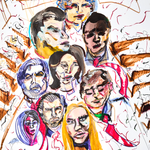
Most Popular
What is your email.
This email will be used to sign into all New York sites. By submitting your email, you agree to our Terms and Privacy Policy and to receive email correspondence from us.
Sign In To Continue Reading
Create your free account.
Password must be at least 8 characters and contain:
- Lower case letters (a-z)
- Upper case letters (A-Z)
- Numbers (0-9)
- Special Characters (!@#$%^&*)
As part of your account, you’ll receive occasional updates and offers from New York , which you can opt out of anytime.
22 valuable pieces of advice from graduation speeches through history
- Most commencement speeches tend to follow a similar formula.
- However, some are so inspiring they are remembered long after graduation.
- Presidents, Nobel Prize winners, CEOs, and comedians have all inspired graduates with their words.

Commencement speeches are often an opportunity for media moguls, celebrities, and CEOs to impart wisdom to the graduating classes of colleges and universities across the country.
Presidents have also used commencement speeches as more casual environments to drive home the values of their administrations, such as John F. Kennedy's 1963 speech at American University that called for peace.
Here are valuable pieces of advice from graduation speeches through history.
Richard Feloni and Rachel Gillett contributed to a previous version of this article.
"Our problems are manmade — therefore, they can be solved by man." — John F. Kennedy's 1963 speech at American University
Against the tumult of the early '60s, John F. Kennedy inspired graduates to strive for what may be the biggest goal of them all: world peace.
"Too many of us think it is impossible," he said. "Too many think it unreal. But that is a dangerous, defeatist belief. It leads to the conclusion that war is inevitable — that mankind is doomed — that we are gripped by forces we cannot control."
Our job is not to accept that, he urged. "Our problems are manmade — therefore, they can be solved by man. And man can be as big as he wants."
"Be the heroine of your life, not the victim." — Nora Ephron's 1996 speech at Wellesley College
Addressing her fellow alums with trademark wit, Ephron reflected on all the things that had changed since her days at Wellesley — and all the things that hadn't.
"My class went to college in the era when you got a master's degree in teaching because it was 'something to fall back on' in the worst case scenario, the worst case scenario being that no one married you and you actually had to go to work," she said.
But while things had changed drastically by 1996, Ephron warned grads not to "delude yourself that the powerful cultural values that wrecked the lives of so many of my classmates have vanished from the earth."
"Above all, be the heroine of your life, not the victim," she said. "Maybe young women don't wonder whether they can have it all any longer, but in case any of you are wondering, of course you can have it all. What are you going to do? Everything, is my guess. It will be a little messy, but embrace the mess. It will be complicated, but rejoice in the complications."
"We can learn to live without the sick excitement, without the kick of having scores to settle." — Kurt Vonnegut's 1999 speech at Agnes Scott College
The famed author became one of the most sought-after commencement speakers in the United States for many years, thanks to his insights on morality and cooperation. At Agnes Scott, he asked graduates to make the world a better place by respecting humanity and living without hate. Hammurabi lived 4,000 years ago, he pointed out. We can stop living by his code.
"We may never dissuade leaders of our nation or any other nation from responding vengefully, violently, to every insult or injury. In this, the Age of Television, they will continue to find irresistible the temptation to become entertainers, to compete with movies by blowing up bridges and police stations and factories and so on," he said.
"But in our personal lives, our inner lives, at least, we can learn to live without the sick excitement, without the kick of having scores to settle with this particular person, or that bunch of people, or that particular institution or race or nation. And we can then reasonably ask forgiveness for our trespasses, since we forgive those who trespass against us."
The result, he said, would be a happier, more peaceful, and more complete existence.
"You are your own stories." — Toni Morrison's 2004 speech at Wellesley College
Instead of the usual commencement platitudes — none of which, Morrison argued, are true anyway — the Nobel Prize-winning writer asked grads to create their own narratives.
"What is now known is not all what you are capable of knowing," she said. "You are your own stories and therefore free to imagine and experience what it means to be human without wealth. What it feels like to be human without domination over others, without reckless arrogance, without fear of others unlike you, without rotating, rehearsing and reinventing the hatreds you learned in the sandbox."
In your own story, you can't control all the characters, Morrison said. "The theme you choose may change or simply elude you. But being your own story means you can always choose the tone. It also means that you can invent the language to say who you are and what you mean." Being a storyteller reflects a deep optimism, she said — and as a storyteller herself, "I see your life as already artful, waiting, just waiting and ready for you to make it art."
"Remembering that you are going to die is the best way I know to avoid the trap of thinking you have something to lose." — Steve Jobs' 2005 speech at Stanford University
In a remarkably personal address, the Apple founder and CEO advised graduates to live each day as if it were their last.
"Remembering that I'll be dead soon is the most important tool I've ever encountered to help me make the big choices in life," he said. He'd been diagnosed with pancreatic cancer a year earlier.
"Because almost everything — all external expectations, all pride, all fear of embarrassment or failure — these things just fall away in the face of death, leaving only what is truly important," he continued. "Remembering that you are going to die is the best way I know to avoid the trap of thinking you have something to lose. You are already naked. There is no reason not to follow your heart."
Jobs said this mindset will make you understand the importance of your work. "And the only way to do great work is to love what you do," he said. "If you haven't found it yet, keep looking. Don't settle. As with all matters of the heart, you'll know when you find it."
Settling means giving in to someone else's vision of your life — a temptation Jobs warned against. "Don't let the noise of others' opinions drown out your own inner voice. And most important, have the courage to follow your heart and intuition."
"If you really learn how to pay attention, then you will know there are other options." — David Foster Wallace's 2005 speech at Kenyon College
In his now-legendary "This Is Water" speech, the author urged grads to be a little less arrogant and a little less certain about their beliefs.
"This is not a matter of virtue," Wallace said. "It's a matter of my choosing to do the work of somehow altering or getting free of my natural, hard-wired default setting, which is to be deeply and literally self-centered and to see and interpret everything through this lens of self."
Doing that will be hard, he said. "It takes will and effort, and if you are like me, some days you won't be able to do it, or you just flat won't want to."
But breaking free of that lens can allow you to truly experience life, to consider possibilities beyond your default reactions.
"If you're automatically sure that you know what reality is, and you are operating on your default setting, then you, like me, probably won't consider possibilities that aren't annoying and miserable," he said. "But if you really learn how to pay attention, then you will know there are other options. It will actually be within your power to experience a crowded, hot, slow, consumer-hell type situation as not only meaningful, but sacred, on fire with the same force that made the stars: love, fellowship, the mystical oneness of all things deep down."
"If it doesn't feel right, don't do it." — Oprah Winfrey's 2008 speech at Stanford University
The media mogul told Stanford's class of 2008 that they can't sacrifice happiness for money. "When you're doing the work you're meant to do, it feels right and every day is a bonus, regardless of what you're getting paid," she said.
She said you can feel when you're doing the right thing in your gut. "What I know now is that feelings are really your GPS system for life. When you're supposed to do something or not supposed to do something, your emotional guidance system lets you know," she said.
She explained that doing what your instincts tells you to do will make you more successful because it will drive you to work harder and will save you from debilitating stress.
"If it doesn't feel right, don't do it. That's the lesson. And that lesson alone will save you, my friends, a lot of grief," Winfrey said. "Even doubt means don't. This is what I've learned. There are many times when you don't know what to do. When you don't know what to do, get still, get very still, until you do know what to do."
"Life is an improvisation. You have no idea what's going to happen next and you are mostly just making things up as you go along." — Stephen Colbert's 2011 speech at Northwestern University
The comedian and host of the "Late Show" told grads they should never feel like they have it all figured out.
"Whatever your dream is right now, if you don't achieve it, you haven't failed, and you're not some loser. But just as importantly — and this is the part I may not get right and you may not listen to — if you do get your dream, you are not a winner," Colbert said.
It's a lesson he learned from his improv days. When actors are working together properly, he explained, they're all serving each other, playing off each other on a common idea. "And life is an improvisation. You have no idea what's going to happen next and you are mostly just making things up as you go along. And like improv, you cannot win your life," he said.
"There are few things more liberating in this life than having your worst fear realized." — Conan O'Brien's 2011 speech at Dartmouth College
In his hilarious 2011 address to Dartmouth College, the late-night host spoke about his brief run on "The Tonight Show" before being replaced by Jay Leno. O'Brien described the fallout as the lowest point in his life, feeling very publicly humiliated and defeated. But once he got back on his feet and went on a comedy tour across the country, he discovered something important.
"There are few things more liberating in this life than having your worst fear realized," he said.
He explained that for decades the ultimate goal of every comedian was to host "The Tonight Show," and like many comedians, he thought achieving that goal would define his success. "But that is not true. No specific job or career goal defines me, and it should not define you," he said.
He noted that disappointment is a part of life, and the beauty of it is that it can help you gain clarity and conviction.
"It is our failure to become our perceived ideal that ultimately defines us and makes us unique," O'Brien said. "It's not easy, but if you accept your misfortune and handle it right, your perceived failure can be a catalyst for profound re-invention."
O'Brien said that dreams constantly evolve, and your ideal career path at 22 years old will not necessarily be the same at 32 or 42 years old.
"I am here to tell you that whatever you think your dream is now, it will probably change. And that's OK," he said.
"The difference between triumph and defeat, you'll find, isn't about willingness to take risks — it's about mastery of rescue." — Atul Gawande's 2012 speech at Williams College
Pushing beyond the tired "take risks!" commencement cliché, the surgeon, writer, and activist took a more nuanced approach: what matters isn't just that you take risks; it's how you take them.
To explain, he turned to medicine."Scientists have given a new name to the deaths that occur in surgery after something goes wrong — whether it is an infection or some bizarre twist of the stomach," said Gawande. "They call them a 'Failure to Rescue.' More than anything, this is what distinguished the great from the mediocre. They didn't fail less. They rescued more."
What matters, he said, isn't the failure — that's inevitable — but what happens next. "A failure often does not have to be a failure at all. However, you have to be ready for it. Will you admit when things go wrong? Will you take steps to set them right? — because the difference between triumph and defeat, you'll find, isn't about willingness to take risks. It's about mastery of rescue."
"Err in the direction of kindness." — George Saunders' 2013 speech at Syracuse University
The writer stressed what turns out to be a deceptively simple idea: the importance of kindness.
"What I regret most in my life are failures of kindness ," he said. "Those moments when another human being was there, in front of me, suffering, and I responded ... sensibly. Reservedly. Mildly."
But kindness is hard, he said. It's not necessarily our default. In part, he explained, kindness comes with age. "It might be a simple matter of attrition: as we get older, we come to see how useless it is to be selfish — how illogical, really." The challenge he laid out: Don't wait. "Speed it along," he urged. "Start right now."
"There's a confusion in each of us, a sickness, really: selfishness, " Saunders said. "But there's also a cure. So be a good and proactive and even somewhat desperate patient on your own behalf — seek out the most efficacious anti-selfishness medicines, energetically, for the rest of your life."
"Do all the other things, the ambitious things — travel, get rich, get famous, innovate, lead, fall in love, make and lose fortunes, swim naked in wild jungle rivers (after first having it tested for monkey poop) – but as you do, to the extent that you can, err in the direction of kindness."
"Ditch the dream and be a doer, not a dreamer." — Shonda Rhimes' 2014 speech at Dartmouth College
The world's most powerful showrunner told grads to stop dreaming and start doing.
The world has plenty of dreamers, she said. "And while they are busy dreaming, the really happy people, the really successful people, the really interesting, engaged, powerful people, are busy doing." She pushed grads to be those people.
"Ditch the dream and be a doer, not a dreamer," she advised — whether or not you know what your "passion" might be. "The truth is, it doesn't matter. You don't have to know. You just have to keep moving forward. You just have to keep doing something, seizing the next opportunity, staying open to trying something new. It doesn't have to fit your vision of the perfect job or the perfect life. Perfect is boring and dreams are not real," she said.
"Your job is to create a world that lasts forever." — Steven Spielberg's 2016 speech at Harvard
"This world is full of monsters," director Steven Spielberg told Harvard graduates, and it's the next generation's job to vanquish them.
"My job is to create a world that lasts two hours. Your job is to create a world that lasts forever," he said.
These monsters manifest themselves as racism, homophobia, and ethnic, class, political, and religious hatred, he said, noting that there is no difference between them: "It is all one big hate."
Spielberg said that hate is born of an "us versus them" mentality, and thinking instead about people as "we" requires replacing fear with curiosity.
"'Us' and 'them' will find the 'we' by connecting with each other, and by believing that we're members of the same tribe, and by feeling empathy for every soul," he said.
"I wake up in a house that was built by slaves." — Michelle Obama's 2016 speech at the City College of New York
In her 23rd and final commencement speech as first lady, Michelle Obama urged the class of 2016 to pursue happiness and live out whatever version of the American Dream is right for them.
"It's the story that I witness every single day when I wake up in a house that was built by slaves," she said, "and I watch my daughters — two beautiful, Black young women — head off to school waving goodbye to their father, the president of the United States, the son of a man from Kenya who came here to America for the same reasons as many of you: to get an education and improve his prospects in life."
"So, graduates, while I think it's fair to say that our Founding Fathers never could have imagined this day," she continued, "all of you are very much the fruits of their vision. Their legacy is very much your legacy and your inheritance. And don't let anybody tell you differently. You are the living, breathing proof that the American Dream endures in our time. It's you."
"Not everything that happens to us happens because of us." — Sheryl Sandberg's 2016 speech at UC Berkeley
During the Facebook COO's deeply personal commencement speech about resilience at UC Berkeley, she spoke on how understanding the three Ps that largely determine our ability to deal with setbacks helped her cope with the loss of her husband, Dave Goldberg.
She outlined the three Ps as:
· Personalization : Whether you believe an event is your fault. · Pervasiveness : Whether you believe an event will affect all areas of your life. · Permanence : How long you think the negative feelings will last.
"This is the lesson that not everything that happens to us happens because of us," Sandberg said about personalization. It took understanding this for Sandberg to accept that she couldn't have prevented her husband's death. "His doctors had not identified his coronary artery disease. I was an economics major; how could I have?"
"Empathy and kindness are the true signs of emotional intelligence." — Will Ferrell's 2017 speech at the University of Southern California
Comedian Will Ferrell, best known for lead roles in films like "Anchorman," "Elf," and "Talledega Nights," delivered a thoughtful speech to USC's graduating class of 2018.
"No matter how cliché it may sound, you will never truly be successful until you learn to give beyond yourself," he said. "Empathy and kindness are the true signs of emotional intelligence, and that's what Viv and I try to teach our boys. Hey Matthias, get your hands of Axel right now! Stop it. I can see you. OK? Dr. Ferrell's watching you."
He also offered some words of encouragement: "For many of you who maybe don't have it all figured out, it's OK. That's the same chair that I sat in. Enjoy the process of your search without succumbing to the pressure of the result."
He even finished off with a stirring rendition of the Whitney Houston classic, "I Will Always Love You." He was, of course, referring to the graduates.
"Call upon your grit. Try something." — Tim Cook's 2019 speech at Tulane University
Apple CEO Tim Cook delivered the 2019 commencement speech for the graduates of Tulane University, offering valuable advice on success.
"We forget sometimes that our preexisting beliefs have their own force of gravity," Cook said. "Today, certain algorithms pull toward you the things you already know, believe, or like, and they push away everything else. Push back."
"You may succeed. You may fail. But make it your life's work to remake the world because there is nothing more beautiful or more worthwhile than working to leave something better for humanity."
"As you leave this room don't forget to ask yourself what you can offer to make the 'club of life' go up? How can you make this place better, in spite of your circumstances?" — Issa Rae's 2021 speech at Stanford University
In the speech, Rae pulled lyrics from Boosie Badazz, Foxx, and Webbie's "Wipe Me Down," which she said she and her friends played on a boombox during the "Wacky Walk" portion of their own 2007 graduation ceremony at Stanford, to illustrate the importance of seeing "every opportunity as a VIP — as someone who belongs and deserves to be here."
Rae particularly drew attention to one line from the song: "I pull up at the club, VIP, gas tank on E, but all dranks on me. Wipe me down."
"To honor the classic song that has guided my own life — as you leave this room, don't forget to ask yourself what you can offer to make the 'club of life' go up. How can you make this place better, in spite of your circumstances?" she said. "And as you figure those things out, don't forget to step back and wipe yourselves down, wipe each other down and go claim what's yours like the VIPs that you are."
"My experience has been that my mistakes led to the best things in my life." — Taylor Swift's 2022 speech at New York University
In her first public appearance of 2022, Taylor Swift poked fun at her "cringe" fashion moments and her experience of growing up in the public eye, which led to receiving a lot of unsolicited career advice.
"I became a young adult while being fed the message that if I didn't make any mistakes, all the children of America would grow up to be perfect angels. However, if I did slip up, the entire Earth would fall off its axis and it would be entirely my fault and I would go to pop star jail forever and ever," Swift said in her speech. "It was all centered around the idea that mistakes equal failure and ultimately, the loss of any chance at a happy or rewarding life."
"This has not been my experience," she continued. "My experience has been that my mistakes led to the best things in my life."
She also alluded to her past feud with Kanye West, joking that "getting canceled on the internet and nearly losing my career gave me an excellent knowledge of all the types of wine."
She elaborated, saying that losing things doesn't just mean losing.
"A lot of the time, when we lose things, we gain things too," she said.
"Your future is in your hands—all you have to do is listen." — Oprah Winfrey's 2023 speech at Harvard University
Winfrey also spoke to the graduating class of Harvard University about how God has guided her throughout her life, and the importance of listening.
"Life is always talking to us," she said in her speech. "When you tap into what it's trying to tell you, when you can get yourself quiet enough to listen — really listen — you can begin to distill the still, small voice, which is always representing the truth of you, from the noise of the world. You can start to recognize when it comes your way. You can learn to make distinctions, to connect, to dig a little deeper. You'll be able to find your own voice within the still, small voice—you'll begin to know your own heart and figure out what matters most when you can listen to the still, small voice. Every right move I've made has come from listening deeply and following that still, small voice, aligning myself with its power."
Winfrey also discussed avoiding imposter syndrome, tapping into who you are, and treating others with integrity.
"We also need generosity of spirit; we need high standards and open minds and untamed imagination," she continued. "That's how you make a difference in the world. Using who you are and what you stand for to make changes big and small."
"The soul of America is what makes us unique among all nations." — Joe Biden's 2023 speech at Howard University
The president received an honorary degree and spoke of the values of America at the HBCU, the alma mater of his vice president, Kamala Harris.
"We're the only country founded on an idea — not geography, not religion, not ethnicity, but an idea. The sacred proposition, rooted in Scripture and enshrined in the Declaration of Independence, that we're all created equal in the image of God and deserve to be treated equally throughout our lives," Biden said. "While we've never fully lived up to that promise, we never before fully walked away from it."
Biden also addressed many of the causes his campaign has pushed over the years, including the right to choose and "to put democracy on the ballot."
"We can finally resolve those ongoing questions about who we are as a nation. That puts strength of our diversity at the center of American life," he continued. "A future that celebrates and learns from history. A future for all Americans. A future I see you leading. And I'm not, again, exaggerating. You are going to be leading it."
"Humor is the most powerful, most survival-essential quality you will ever have or need to navigate through the human experience." — Jerry Seinfeld's 2024 speech at Duke University
Seinfeld's commencement speech made headlines after students walked out of his speech in protest of the war in Gaza. Seinfeld has been public about his support for Israel.
Despite the controversy, the speech offered valuable pieces of advice. The comedian and sitcom star's speech addressed the value of not losing your sense of humor, no matter what life throws at you.
"I totally admire the ambitions of your generation to create a more just and inclusive society," he said. "I think it is also wonderful that you care so much about not hurting other people's feelings in the million and one ways we all do that."
"What I need to tell you as a comedian: Do not lose your sense of humor," he continued. "You can have no idea at this point in your life how much you are going to need it to get through. Not enough of life makes sense for you to be able to survive it without humor."
Seinfeld also offered his "three keys to life": "Number one. Bust your ass. Number two. Pay attention. Number three. Fall in love."
- Main content
The Most Memorable Oscar Speeches in Academy History
By Nate Nickolai
Nate Nickolai
- Ruth Bader Ginsburg, Supreme Court Justice and Gender Equality Advocate, Dies at 87 4 years ago
- Comedian Who Called Out Harvey Weinstein: ‘It’s Better to Speak Out Than to Not Speak Out’ 5 years ago
- Women Kicked Out of Bar for Confronting Harvey Weinstein 5 years ago

No Academy Awards is complete without some emotional acceptance speeches on stage – and some political ones to boot.
With just 90 seconds to make an impact, many actors have used the platform as a voice for political change, calling attention to hot-button issues like climate change and gender equality, while others have simply reveled in their wins. Either way, acceptance speeches are always some of the most entertaining parts of the evening.
In honor of this year’s Academy Awards, Variety has compiled a complete list of the most memorable speeches in Oscar history, tackling everything from Halle Berry’s emotional best actress acceptance to Jennifer Lawrence’s ill-fated walk up the Academy steps.
See the full list of speeches below.
Barry Jenkins and Tarell Alvin McCraney (Best Adapted Screenplay for “Moonlight” in 2017)
After taking home an Oscar for best adapted screenplay, Barry Jenkins and Terell Alvin McCraney tackled issues of representation with their acceptance speech, honoring both young people of color and gender non-conforming viewers. “This goes out to all those black and brown boys and girls and non gender-conforming who don’t see themselves, we’re trying to show you you, and us. So thank you, thank you. This is for you,” McCraney said while accepting the award.
Popular on Variety
Ben Affleck and Matt Damon (Best Original Screenplay for “Good Will Hunting” in 1997)
Ben Affleck became one of the youngest people ever to win an Oscar for best original screenplay when he took home the award alongside Matt Damon in 1997, and his youth showed. “T here’s no way we’re doing this in less than 20 seconds,” he laughed, before tackling a long list of thank you’s filled with excited interjections from Damon throughout the entire speech. “I know we’re forgetting somebody,” he concluded before Damon took over with some shouts of love, reminiscent of Cuba Gooding Jr.’s own speech earlier in the evening: “ Whoever we forgot, we love you! We love you!”
Cate Blanchett (Best Actress for “Blue Jasmine” in 2014)’
Cate Blanchett used her speech to set the record straight for anyone who is “still foolishly clinging to the idea that female films with women at the center are niche experiences.” “They’re not,” she said. “Audiences want to see them, and in fact, they earn money.” The actress also decided to honor her fellow nominees with some light humor and well-meaning words. “Sit down, you’re too old to be standing,” she began, before launching into a long catalog of praise for her fellow nominees in the category, including Amy Adams, Meryl Streep, Sandra Bullock and Judy Dench. Her speech also created some confusion after she told Julia Roberts to #SuckIt, which was left unexplained until a year later when she told Jimmy Kimmel that it was merely a way of saying goodbye to the previous year.
Cuba Gooding Jr. (Best Supporting Actor for “Jerry Maguire” in 1997)
Cuba Gooding Jr. wanted to spread the love with his acceptance speech, which involved fist-pumps, jump kicks and multiple “I love you’s” shouted to the crowd. The passionate exhibition got the crowd on its feet and showed viewers that Oscar speeches don’t have to be formal thank you letters.
Frances McDormand (Best Actress for “Three Billboards Outside Ebbing, Missouri” in 2018)
Frances McDormand used her acceptance speech to teach viewers about inclusion riders – a stipulation that actors and actresses can have inserted into their contracts, which would require a specific level of diversity within a film’s cast and crew. While somewhat vague, McDormand’s speech was a clear call to action that fit in well with the surrounding #MeToo rhetoric. “ Don’t talk to us about it at the parties tonight. Invite us into your office in a couple days, or you can come to ours, whatever suits you best, and we’ll tell you all about them. I have two words to leave with you tonight, ladies and gentlemen: ‘inclusion rider,'” she said.
Halle Berry (Best actress for “Monster’s Ball” in 2002)
Tears were already streaming down Halley Berry’s face before she even took the stage for her best actress acceptance speech in 2002. In between sobs and shrieks of joy, the actress acknowledged a number of other actresses, before dedicating the award to women of color in general. “ This moment is so much bigger than me. This moment is for Dorothy Dandridge, Lena Horne, Diahann Carroll. It’s for the women that stand beside me, Jada Pinkett, Angela Bassett, Vivica Fox. And it’s for every nameless, faceless woman of color that now has a chance because this door tonight has been opened,” she said.
Jennifer Lawrence (Best Actress for “Silver Lining Playbooks” in 2013)
Jennifer Lawrence’s speech isn’t famous for what she said, but more so for what happened right before it. The ever-relatable actress took over the internet after she fell on the stage steps while walking up to accept her award. “You guys are just standing up because you feel bad that I fell and that’s really embarrassing, but thank you,” she said about the applause. “This is nuts.”
Joe Pesci (Best Supporting Actor for “Good Fellas” in 1991)
With only 90 seconds to deliver an entire acceptance speech, most actors struggle to find their words before the Academy starts playing its music. But for Joe Pesci, the audience had barely finished clapping by the time he finished his speech. In what goes down as probably shortest Oscar speech of all time, Pesci accepted his award with a simple, “ It was my privilege. Thank you.”
John Legend and Common (Best Original Song for “Glory” from “Selma” in 2015)
John Legend and Common got political in their acceptance speech, calling out issues of race and incarceration rates in America in a speech reminiscent of some of Martin Luther King Jr.’s own words. “We know that the voting rights, the act that they fought for 50 years ago is being compromised right now in this country today. We know that right now the struggle for freedom and justice is real,” Legend said. “We live in the most incarcerated country in the world. There are more black men under correctional control today than were under slavery in 1850. When people are marching with our song, we want to tell you that we are with you, we see you, we love you, and march on.”
Julia Roberts (Best Actress for “Erin Brokovich” in 2001)
Julia Roberts was all about sisterhood during her passionate acceptance speech, in which she recognized her fellow nominees. “I would like to start with telling you all how amazing the experience of feeling the sisterhood of being included in a group with Joan Allen and Juliette Binoche and Laura Linney and Ellen Burstyn for these last weeks has been,” she said. “It’s just felt like such a triumph to me to be in that list. My name starts with ‘R’ so I’m always last, but I still love the list.”
Leonardo DiCaprio (Best Actor for “The Revenant” in 2016)
After five Oscar nominations and no wins, all eyes were on Leonardo DiCaprio when he took the stage for his first Oscar acceptance speech. But what followed was not a cathartic shout of joy but rather a powerful call to action – the “Revenant” star clearly had some more pressing issues on his mind. After thanking several people who worked on the film, DiCaprio spent the majority of his speech addressing climate change, highlighting the detrimental effects of big polluters and leaving viewers with the powerful last words, “ Let us not take this planet for granted. I do not take tonight for granted.”
Marlon Brando (Best Actor for “Godfather” in 1973)
Marlon Brando goes down in acceptance speech history for not giving a speech at all. Instead, the “Godfather” actor asked Apache Native American Sacheen Littlefeather to accept the best actor award in his stead, protesting the film industry’s treatment of Native Americans as well as the abuse occurring at Wounded Knee at the time. “I beg at this time that I have not intruded upon this evening and that we will in the future, our hearts and our understandings will meet with love and generosity,” Littlefeather said to both boos and cheers from the audience.
Patricia Arquette (Best Supporting Actress for “Boyhood” in 2015)
Any speech endorsed by Meryl Streep is a speech worth listening to, and Patricia Arquette’s 2015 acceptance speech appears to be one of her favorites. The “Boyhood” actress ended her Oscar win with a powerful message about gender equality, garnering finger points and shouts of agreement from Streep herself. “ To every woman who gave birth, to every taxpayer and citizen of this nation, we have fought for everybody else’s equal rights,” Arquette said. “It’s our time to have wage equality once and for all, and equal rights for women in the United States of America.”
Reese Witherspoon (Best Actress for “Walk the Line” in 2006)
Reese Witherspoon endeared audience members with her distinctive country twang and a speech chock-full of childhood memories and feel-good country values. After honoring her fellow actors in the same tradition as childhood inspirations Johnny Cash and June Carter, Witherspoon reflected on her relationship with her grandmother who she said taught her “h ow to be a real woman, to have strength and self respect and to never give those things away.”
Roberto Benigni (Best Foreign Language Film for “Life Is Beautiful” in 1999)
Few Oscar winners can claim the same level of excitement as Roberto Benigni who celebrated his Oscar win by crawling across the Academy seats and thrusting his arms into the air. The excitement continued as he walked to the stage, hopping up each step before embracing presenter Sophia Loren and bowing to the audience.
Sally Field (Best Actress for “Places in the Heart” in 1985)
According to Sally Field, winning a second Oscar is even more exciting than the first. While accepting the best actress award in 1985, the “Places in the Heart” actress acknowledged that she had never fully appreciated her first win, before concluding with an emotional cry to the audience, “ I can’t deny the fact that you like me. Right now, you like me!”
Shirley MacLaine (Best Actress for “Terms of Endearment” in 1984)
Shirley MacLaine said what everyone was thinking when she first took the stage: “I’m going to cry because this show has been as long as my career.” But the jokes ended there as MacLain delivered a rousing speech about the power of passion in making your dreams come true. “Films and life are like clay, waiting for us to mold it. And when you trust your own insides and that becomes achievement, it’s a kind of a principal that seems to me that works with everyone,” she said. “God bless that principal. God bless that potential that we all have for making anything possible if we think we deserve it. I deserve this, thank you.”
Tom Hanks (Best Actor for “Philadelphia” in 1993)
Red ribbons were everywhere at the 1993 Oscars as actors donned the crimson thread in honor of AIDS victims across the world, a cause Tom Hanks took to heart during his acceptance speech for best actor. Hanks got personal during his speech, reflecting on the importance of the gay men in his life and confronting the extreme loss brought on by the disease. “ I know that my work in this case is magnified by the fact that the streets of heaven are too crowded with angels,” he said. “We know their names. They number a thousand for each one of the red ribbons that we wear here tonight.”
More From Our Brands
‘bridgerton’ has a new francesca — meet hannah dodd, this 29-carat harry winston diamond ring could fetch nearly $2 million at auction, wnba investigating $100k bonus to each las vegas aces player, the best loofahs and body scrubbers, according to dermatologists, joshua jackson: abc’s doctor odyssey cruise ship sudser is ‘ryan murphy at his outrageous best’, verify it's you, please log in.

20 Best Oscar Speeches Ever
The feeling of winning and getting your name called out for an Oscar is indubitably the single most cherished memory and honor of an artist’s life. Striving everyday, being pervasively persistent on the road to the magnificent golden statue is what makes the winning memorable. And winning the trophy often evokes the truest of emotions, whose veracity is the most sanctimonious and pristine in the whole wide world. This has culminated in us witnessing superstars crying their heart out and losing all of their self-consciousness to just be free. The magnanimous platform often humbles the most taciturn of artists, and reiterates their belief in doing what they do. They also use this stage to profoundly express themselves and influence masses of the issues we as a society face. Right from race, politics and capitalism, to Mama June on a hot summer afternoon, the Oscars have seen it all.
There are a few, who aren’t liberated off their performances and image in the media, and come prepared, with a long litany of people to thank. And then there are some, who just enjoy the moment, and wing the whole thing as it were an SNL routine. Remembering these resonating and powerful acceptance speeches, the list envisages to mention some of these blithering addresses, which obliterate all the sense of being. Enjoy the list of the best and most iconic Oscar speeches ever. Happy Watching!
20. Tom Hanks (‘Philadelphia’)
Tom Hanks is one of the most lovable and relatable stars of the industry. His boy-next door charm and kind nature often manage to humble the sternest and uptight of people. He won his first ever Oscar for Jonathan Demme’s 1993 drama film, ‘Philadelphia’, which saw him play Andrew Beckett, a HIV patient whose homosexuality, ironically, is a cause of his insecurities and shame. He is eventually brought out in the limelight by his firm, who fire him for being an AIDS patient. Ridiculed and down-looked upon by the society, he endeavors to fight for himself and therein ensues one of the most endearing battle for justice in cinematic history. ‘Phialdelphia’ become one of the first mainstream movies to highlight the issue of HIV and homosexuality, and did so with maternal care and augmenting style. The tearful Hanks in the above video did accidentally let out two of his homosexual friends, who were still in the closet. But despite that, his powerful message to the world about AIDS and homosexuality made his Oscar acceptance speech one of the most iconic speeches of all time.
19. Sally Field (‘Norma Rae’)
The genius of Sally Field was obscure to my conscience until I witnessed her endearing performance as Ol’ Marry Todd (‘Hateful Eight’ reference) in the 2012 film ‘Lincoln’. Upon further viewings of her provocative performances, I stumbled upon ‘Norma Rae’ and was blissfully moved. No wonder she won the Oscar for her performance. During her acceptance speech, she reiterated the words ‘I like you’ from the movie and confused audiences with her cryptic yet evocative speech. Her child-like enthusiasm and lady-like manners make for an enjoyable watch.
18. Jack Palance (‘City Slickers’)
When a 60-year old man does one-arm superman push-ups, you are bound to have a complex, regardless your age. Such was the case with Jack Palace when he won the Oscar for Best Actor in Supporting Role for the 1992 film ‘City Slickers.’ His protracted repartee with the host Billy Crystal and his dazed and confused look, as what to do next, quickly became the highlight of the show. The hand-gestures, true confessions about the discrimination against the senior citizens of the society were truly heart-touching. “42 years later, you were right, you son of a bitch!” made my day!
17. Julia Roberts (‘Erin Brokovich’)
Julia Roberts is one of the prettiest and desired women in the world. People often misconstrue her good looks with her not being an able actor, and downsize her unblemished talent and ability to captivate audiences. She proved all the naysayers wrong with her Oscar winning performance in ‘Erin Brokovich’. And boy did she make it count! In her fun-filled and emotional address, she touched upon various subjects like her “sisterhood” with the fellow nominees and how her name, starting with an ‘R’ makes her last on every list.Her polite request and warning to the composer made us laugh our hearts out. “And sir, you are doing an amazing job, but you are so quick with the sticks, so why don’t you sit down, because I might never be here again.”
16. Michael Caine (‘The Cider House Rules’)
Sir Michael Caine is only one of the two actors (the other being Jack Nicholson) to have been nominated for an Oscar in every decade since 1960 to the 2000s. The mercurial actor has two Oscars to his name, the latter being win for ‘The Cider House Rules’. Most prominently recognized for his distinctive working class cockney accent, the man is a legend. The rousing applause and congratulatory hugs from his fellow nominees showed what a reverential figure he is in the industry. What beckoned even more respect for the venerable actor, was his stand for changing “the winner is” to “the Oscar goes to”. Being humble in his win, and his acknowledging of the fellow performances of his nominated peers made this a truly iconic speech.
15. Gwyneth Paltrow (‘Shakespeare in Love’)
The sobbing acceptance speech is perhaps the most articulate and lucid Paltrow ever could have been. Crying rivers and sobbing incessantly, she made others shed tears and took the award to a rapturous and accepting crowd. Even though her performance might not have been the finest among the nominees to her own admission, Paltrow undoubtedly deserved to take the golden statue home. Her honest yet resonant words will forever remain etched into the memory of not just the hundreds present in the auditorium that day, but the millions watching her on TV.
14. Matthew McCaughaney (‘Dallas Buyers Club’)
Alright. Alright.Alright. There is no man more charismatic and easy-flowing as this guy in the industry. This unique blend of raw sexuality and religious solidarity is a blessing for the industry. The sprawling southern accent, which makes every word spoken like a pearl dropping out of his mouth, captivated us on that night. The amazingly well structured speech, which perhaps will give you new found strength to pursue your goals in life, encapsulated the spirit with which he lives his life. In a nutshell, it was simply outstanding.
13. Lupita N’Yongo (’12 Years a Slave’)
The Academy’s racist proclivities have been a topic of constant debates and discussions in recent times. Many have accused them of being partial and disregarding artist of color and their endearing performances. Well, the Academy wasn’t able to help itself but recognize and honor one of the most harrowing performances by an artist in recent times. Playing a slave cotton-worker in one of the numerous souther plantations in ’12 Years a Slave’, N’Yongo solidified her credentials in celluloid with her performance. The eloquent and gracious outfit, coupled with moving words about one of biggest atrocities against mankind, the speech resonated in the auditorium like a lion’s roar and will forever be ensconced in our memories.
12. Adrien Brody (‘The Pianist’)
Adrien Brody became the youngest actor to win an Oscar for Best Actor in a Leading role as Wladyslaw Spillzman, a simpleton musician who becomes a victim of religious persecution and probably the most brutal crime against humanity. The harrowing performance not only garnered universal critical praise, but also brought him under the scanner and into the eyes of global cinephiles. His scandalous smooch with Halle Berry will forever remain one of the most iconic moments in Oscar history. And as they say, “I bet they didn’t tell you this came in your gift basket.”
11. Joe Pesci (‘Goodfellas’)
“It’s my privilege. Thank you.” And like that, he was gone. At two seconds long, it remains the shortest ever Oscar acceptance speech, and doesn’t seem to be breached soon either.
10. Kate Winslet (‘The Reader’)
Kate Winslet is a thoroughly underrated actress in the industry. Her performances over the years have earned her a well deserved seven Academy nominations, also making her the youngest to do so. She was quickly descending into Meryl Streep territory until the elusive win for ‘The Reader’. The role of Hanna Schmitz, a former guard at a Nazi concentration camp, and a present defendant in a war-crimes trial, was tailor-made for the exuberant actress, and her scathing vulnerability on screen. She took us on a ride even your girlfriend couldn’t have taken you, with her tryst with relationships and tenoning grip on reality. A special moment for a special actress.
9. Patricia Arquette (‘Boyhood’)
Equality among both the genders has been an issue that has found its voice with many-a-great personalities of our time. A similar war was waged by Patricia Arquette in her Oscar acceptance speech for her performance in ‘Boyhood’. In a crisp and succinct address, she touched upon the issue of equality among women with wages in the industry. In a formidable baritone and firmness in her rights, she pointed out the fact how men in the industry are more valued with more recognition and higher wages. The speech remains a cornerstone for equality for women not only in the industry, but also various other fields in the world.
8. Leonardo DiCaprio (‘The Revenant’)
When it finally happened, it was worth it. The whole world cringed and rejoiced in profound happiness when Leonardo DiCaprio, perhaps the finest actor of our generation, won his first Oscar after a string of award-worthy nominations. His win was the most talked about piece of news among the masses, inspiring a hoard of caricatures and memes. But what stood out in his speech was the importance lent to one of the most bludgeoning issues at hand : global warming. His valiant defense of natives and their lands, along with an expedient urgency regarding climate change made him a stand out among his peers in being a responsible citizen. He has since been an ambassador for climate change and the awareness of the dire consequences, if left unnoticed.
7. Robin Williams (‘Good Will Hunting’)
The range this guy possessed was really outstanding. One could never have imagined him featuring in dramatic roles, and yet he changed the way dramatic roles were portrayed. Winning the Oscar for his scintillating performance in ‘Good Will Hunting’, with the park monologue being one of the greatest of all time, the humble Williams opted for a subdued approach in his speech.
6. Daniel Day Lewis (‘Lincoln’)
This guy is probably the greatest actor in the history of cinema. His dedication and drive is unmatched in the industry, with many even going on record to dub him as “retarded” and “insane”. He made history with an unprecedented third Oscar win in the Best Actor in a Leading Role category, completing the triumvirate with his portrayal of Abraham Lincoln in Steven Speilberg’s ‘Linclon’. Receiving the award from the great Meryl Streep, the unison saw two of the greatest actors in cinematic history together. With some quick-witted remarks and brutal honesty, Day Lewis won hearts with his endearing homage to the great man of America. A truly well deserved Oscar!
5. Marlon Brando (‘The Godfather’)
Odd choice! The speech mentioned here is the one that Brando didn’t give. Or he gave it in spirit. I don’t know. But what I do know is, the significance of the speech on his behalf forever changed the face of cinema in Hollywood. He didn’t turn out to take his award for his marvelous performance as the godfather in its namesake in protest for atrocities against Native Indians. Their persecution and negative portrayal in the industry didn’t find a supporter in Brando, who sent out a representative with a 15 minute long speech. Even though it didn’t turn out to be that long, it had a significant effect on the way Native Indians were portrayed in the following years. Kudos Brando!
4. Cuba Gooding Jr (‘Jerry Maguire’)
I really feel an actor winning the Oscar for ‘Jerry Maguire’ was bound to happen. But I think they messed up the names and Cuba Gooding Jr ended up winning the award instead of Tom Cruise. Well, the celebration certainly wasn’t downtrodden, with the mercurial actor out speaking the man with the sticks. The over enthusiastic acceptance does make for a fun watch. Perhaps overawed by the win and thanking the charm Gods?
3. Viola Davis (‘Fences’)
She is without doubt the most powerful of thespians in the industry. Her formidable speech and her excruciating and penetrating emotions often make you cringe with pain and agony. We are perhaps lucky, and blessed in some mysterious ways, to have an actress like that in the industry. And one of the most memorable speeches of all time came not long back ago, when Davis won the Best Actress in a supporting role for ‘Fences’. Oh, boy, the way she talked, with this driving force, that compelled us to stand and applaud, that sent shivers down our spines, is unparalleled. Her profound sense of belongingness humbled one and all present there, and made our hearts ring with solidarity.
2. Robert Benigni (‘Life is Wonderful’)
‘Life is Beautiful’ was a revolutionary film when it first came out. The tangible emotions in the film touched one and all, and set the industry on a new course towards acceptance of foreign films. He won two Oscars that night, one for the Best Foreign film, and the other for Best Actor in a leading role, which overwhelmed his person and brought out one of the most funniest and bizarre acceptance speeches of all time. But it was the first one on the night that stood out. Ascending chairs and standing with his arms out in triumph, like he had won the world, followed by his rabbit like cadence, hoping enthusiastically to the stage, Benigni set the night alight. So good a watch! “This is a terrible mistake, because my English isn’t good.”
1. Halle Berry (‘Monster’s Ball’)
This remains the most exhilarating and iconic acceptance speech of all time. Visibly shaken and thrilled to have won the award, Berry had an instantaneous reaction of crying her heart out the moment her name was announced. Not only did she become the first woman of color to win in the leading category, she also etched her name into history books with record breaking views on her acceptance on You-tube. She just couldn’t control herself and sobbed incessantly, with only futile attempts to console her by fellow peers around her. That display of unbridled emotions is emblematic of the discrimination against black artists in the industry and their indignations against the overlooking of worthy performances. The video is so heart-felt and touching, it will give you goose bumps, just the way it did to millions watching that day. “This moment is so much bigger than me. And this is for all women of color, who have a chance with the door today being opened!”
Read More: Best Actors Without Oscars
SPONSORED LINKS

- Movie Explainers
- TV Explainers
- About The Cinemaholic
- Movie Scenes
The 20 Best Movie Monologues of All Time, Ranked
If you buy something using our links, we may earn a commission at no extra cost to you. Thanks for your support!
When it comes to screenwriting, the prevailing wisdom is to show, not tell. Characters should show who they are by their actions and behavior, rather than flat-out telling the audience.
But in the right place and at the right time, an expository monologue can be powerful, illustrative, and awesome.
When a monologue is crafted by masterful screenwriters and placed in the hands of a masterful actor, the results are often legendary—and end up being iconic scenes in movie history.
Here are our picks for the best movie monologues that you have to see for yourself to truly appreciate!
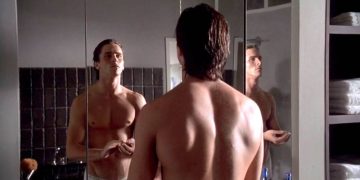
20. "Fly, Fly, Fly" in The Silence of the Lambs (1991)
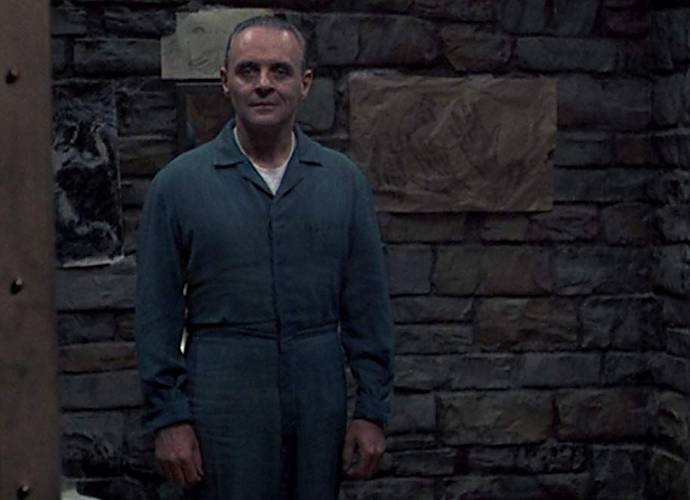
Ever since this iconic scene hit the big screen, it set the bar for how a movie should introduce a character like Hannibal Lecter.
The slow pacing builds toward an explosive chaotic conclusion. The camera is uncomfortably close to Anthony Hopkins's face, forcing an intimacy that you really don't want to have with someone like Hannibal Lecter.
By the time Clarice Starling runs out, you're right there with her, unable to escape the dungeon quickly enough. It's the kind of scene you can't help but return to, again and again.
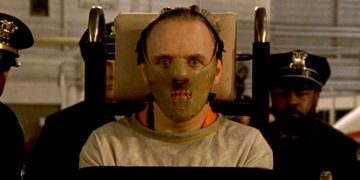
19. "I Have a Competition in Me" in There Will Be Blood (2007)
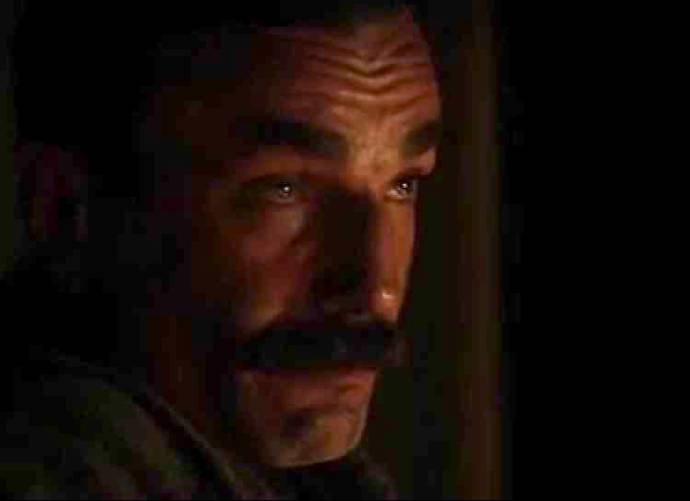
There Will Be Blood's milkshake scene is its most known, but this scene is the one that defines Daniel Plainview as a character. It reveals him as a complete misanthrope who's motivated purely by greed and power.
He sees people only as obstacles and tools to manipulate, control, or do away with. As we come to learn, this applies even to his own son.
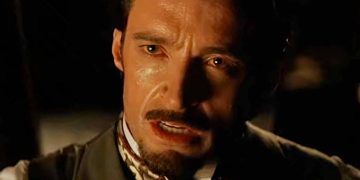
18. "One Hundred Nazi Scalps" in Inglourious Basterds (2009)
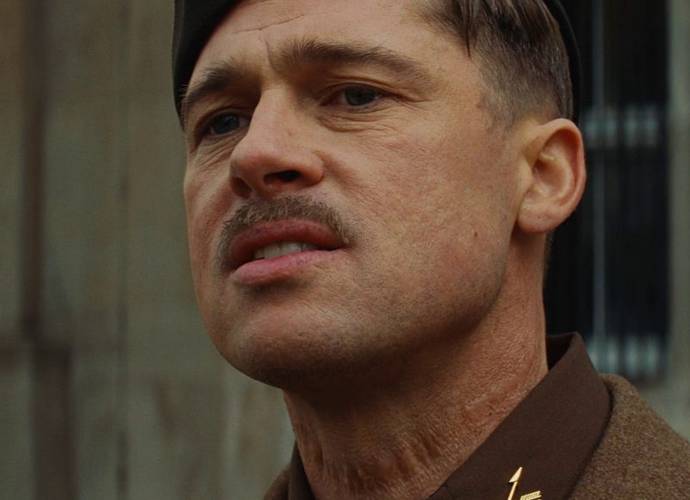
Quentin Tarantino knows how to make exposition entertaining, and this scene from Inglourious Basterds is a prime example.
This is how you introduce a character while filling the audience in on what's happening in a movie. This is "show, don't tell"—but it's also not. He just comes right out and says it, but it's wrapped in fantastic dialogue and an epic performance.
Many writers treat exposition as a necessary evil that just needs to happen so the movie can continue. Tarantino turns exposition into one of the best scenes of the movie.

17. "And It's a Beautiful Day" in Fargo (1996)
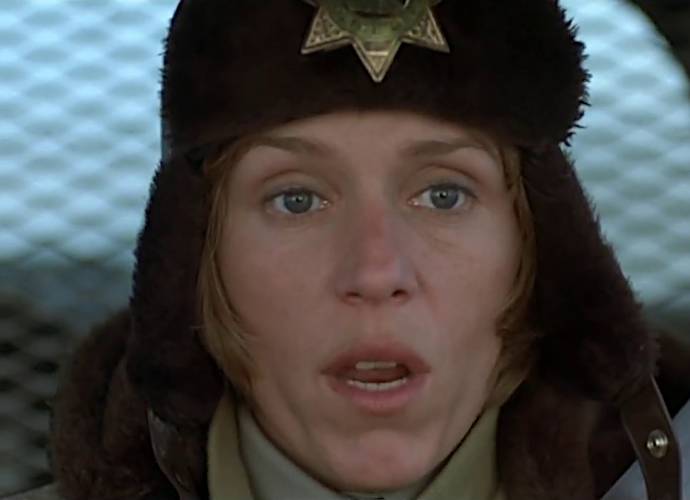
This scene really wraps up Fargo perfectly. Two opposite worlds collide, and neither can comprehend the other. It's good and evil engaging in one-sided Midwestern small talk on the way to the police station.
Frances McDormand's character can't understand how a man could do such horrible things—and on a beautiful day, no less!
Meanwhile, the concept of a "beautiful day" is probably something that doesn't exist for him.
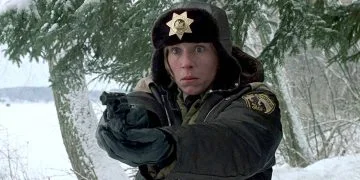
16. "Coffee Is for Closers" in Glengarry Glen Ross (1992)
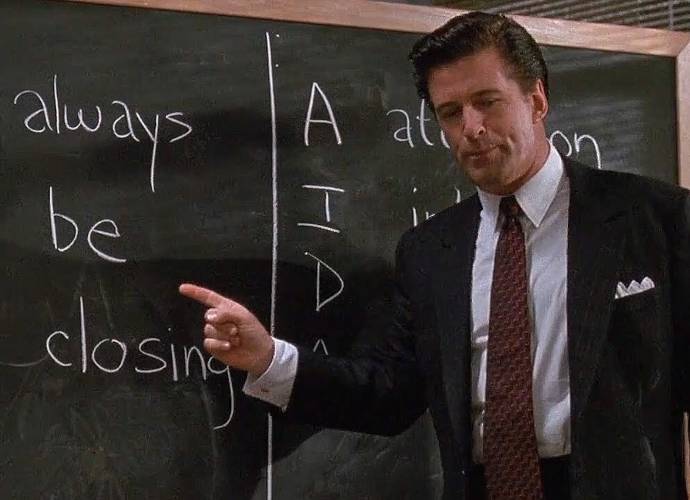
Glengarry Glen Ross only has one scene with Alec Baldwin in it, but that one scene is the most iconic scene of the entire movie—and possibly the most iconic scene of Baldwin's acting career.
Sure, he played Jack Donaghy on 30 Rock —a strong contender for his most defining acting role—which is funny because you can almost see Glengarry Glen Ross and 30 Rock existing in the same universe, with Jack Donaghy being an older version of Blake.
But Jack Donaghy would never have delivered a monologue as powerful, humiliating, and frightening as this one.
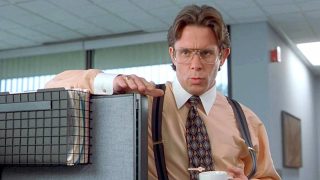
15. "You're Nothing to Me Now" in The Godfather Part II (1974)
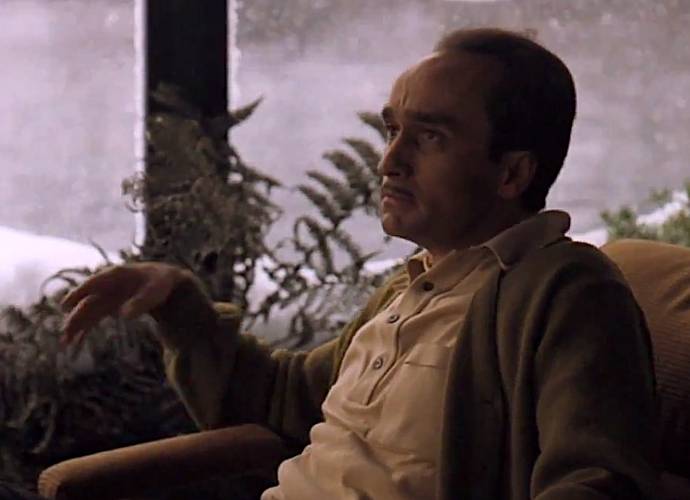
John Cazale is the actor who plays Fredo in the first two Godfather movies. He only made five feature films in his career, yet every one of those five movies is a timeless classic.
Cazale was a fantastic actor and I can only imagine what kind of performances the world missed out on due to his death at a relatively young age.
But if you judge his batting average against his Godfather co-stars, he clearly comes out on top in the end.
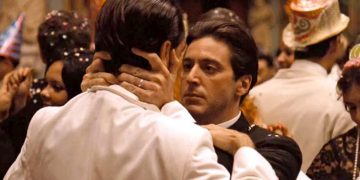
14. "The Smell of Napalm in the Morning" in Apocalypse Now (1979)
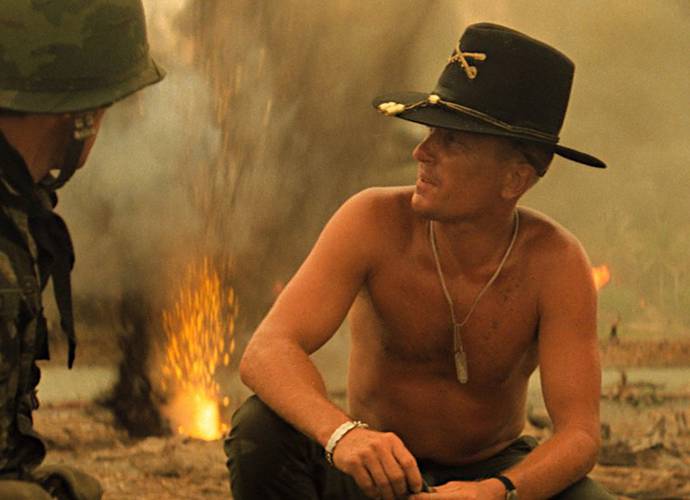
No other actor appears in American Film Institute's list of Top 100 American Movies more times than Robert Duvall. He's great in everything he does—and Apocalypse Now is no exception.
Like the movie itself, this scene is often misunderstood. It has, unfortunately, excited as many people toward the idea of war as it has away from it.
In Francis Ford Coppola's own words: "An anti-war film cannot glorify war, and Apocalypse Now arguably does. Certain sequences have been used to rev up people to be war-like."
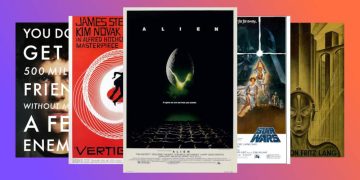
13. Group Therapy in Austin Powers: International Man of Mystery (1997)
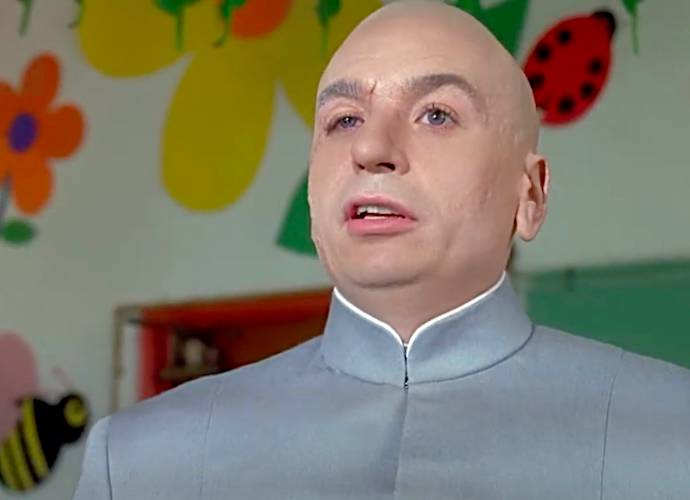
This isn't just one of the greatest monologues of all time—it's also one of the funniest movie monologues ever. This might be the greatest moment in Mike Myers' acting career.
This scene hasn't lost any of the mojo it had when it first came out. He had a lot of great material before this, but sadly not much after.

12. The Gold Watch in Pulp Fiction (1994)
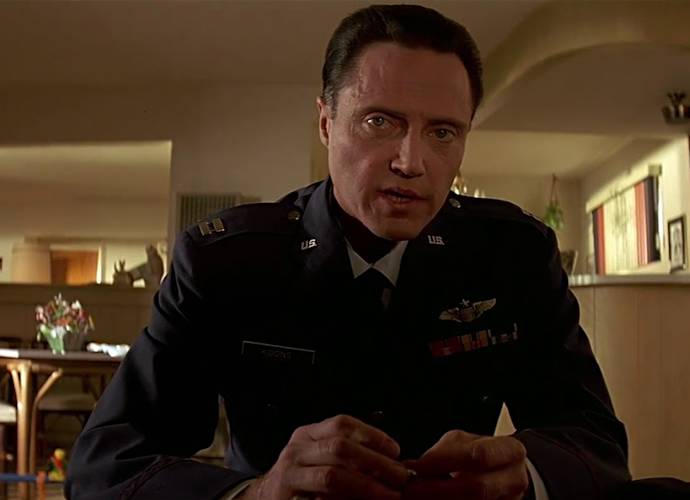
This scene accomplishes more than just being a self-contained piece of brilliant acting and writing. It also fills out the character of Butch in an interesting way, while providing another MacGuffin to tie into Pulp Fiction's already unconventional plot.

11. Father and Son in Call Me By Your Name (2017)
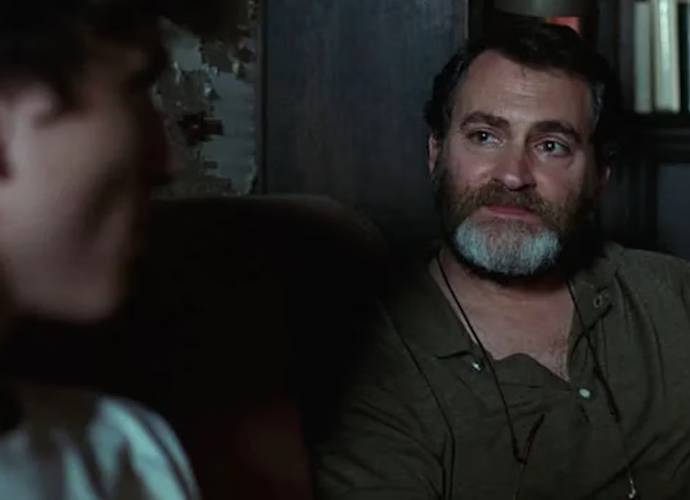
Call Me By Your Name got a lot of hype when it was first released. Looking back, large portions of the film didn't live up to that initial excitement—but the final monologue by Elio's father took the cake.
A musing on life, time, and the fleeting nature of summer love, it's a an insightful monologue that would benefit any and every teenager who's wise enough to give it a listen.

10. "A Particular Set of Skills" in Taken (2008)
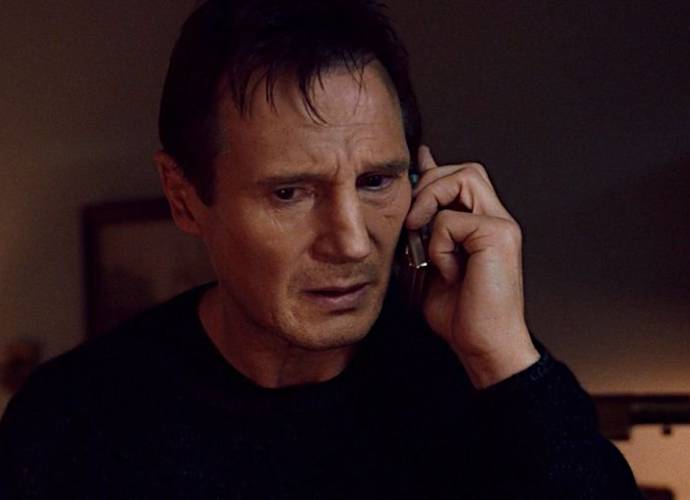
In Taken , Liam Neeson created a forever memeable moment with this outstanding monologue spoken into a phone.
When he realizes that his daughter is about to be abducted, he warns her kidnappers in a legendarily badass way how bad the idea is for them to continue, ending with the most chilling threat:
"I will look for you. I will find you... And I will kill you."
Liam Neeson's cadence makes it all the better, proving how great he is as an actor—as if that were ever in question.

9. "You're Terrified of What You Might Say" in Good Will Hunting (1997)
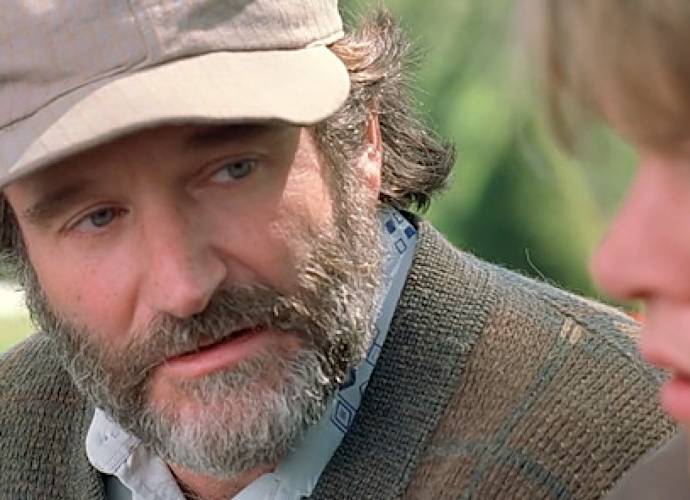
Robin Williams put on one of the greatest performances of his career in Good Will Hunting , peaking with this single scene.
Here he plays Dr. Sean Maguire, a therapist for the brilliant but troubled Will Hunting (played by Matt Damon). Faced with his irreverent behavior, Dr. Maguire tries to communicate on a deeper level.
Wrapped in a somber mood, he talks about the experience of things as distinct from knowledge. It's a showing of the old meeting the young, the wise educating the intelligent. It's a monologue that earned an Oscar.
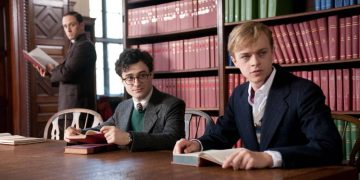
8. "Don't Give In to Nostalgia" in Cinema Paradiso (1988)
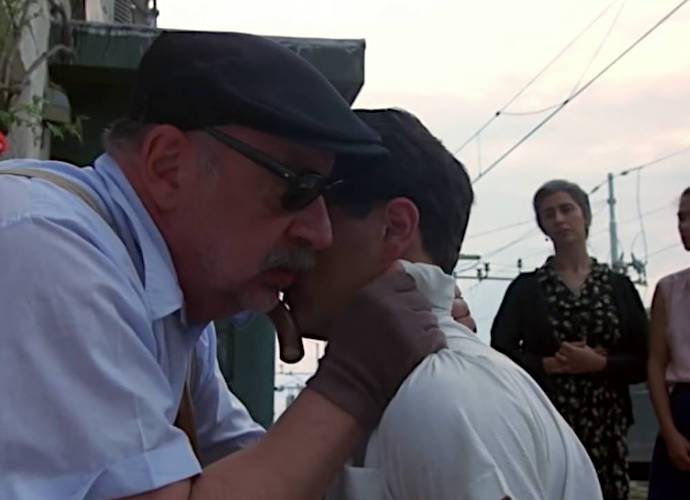
This monologue from Cinema Paradiso will hit you surprisingly hard if you've ever had to leave home and long for past times.
Just as Salvatore is about to leave home, Alfredo—who has lost his sight in a devastating fire—warns him about the dangers of nostalgia. He tells him to chase his dreams and to never turn back for homesickness.
By refusing him the opportunity to return in failure, he gives his protégé all he needs for success. It's a touching final encounter between friends.
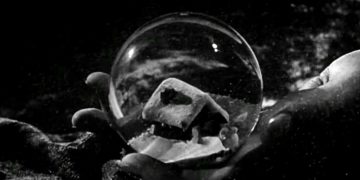
7. "The Tales That Really Mattered" in The Lord of the Rings: The Two Towers (2002)
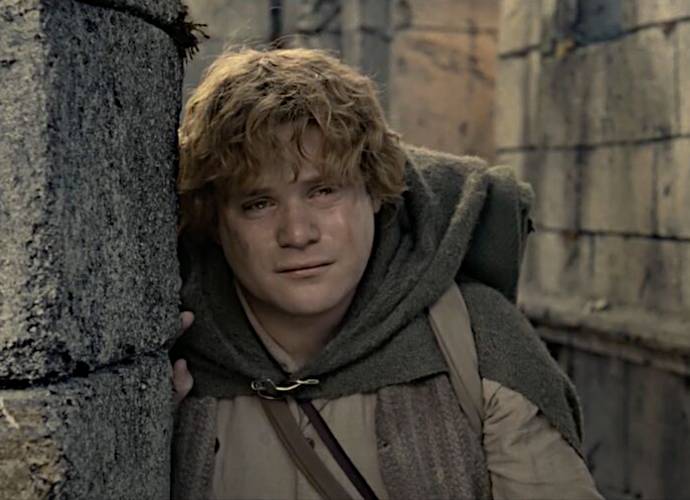
Where would Frodo have been without Samwise Gamgee? In some ways, Sam was the real hero of The Lord of the Rings .
In this rousing monologue, we're shown just how much wisdom Sam had to share and how much support he had to offer. When Frodo asks what it's all for, Sam lays out everything they're fighting for.
When all seems lost, it's Sam's huge heart that still sees the light at the end of their dark journey. He drags victory from the jaws of defeat and he gives Frodo the strength to hope for a brighter day.
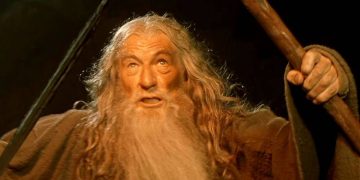
6. "What Is It You Want, Mary?" in It's a Wonderful Life (1946)
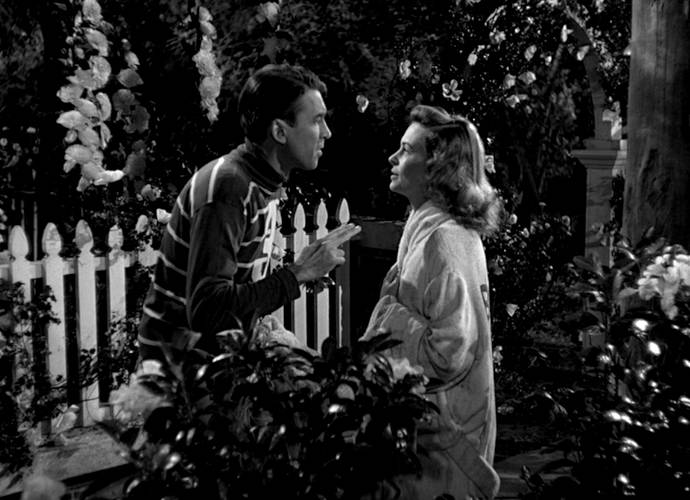
It's a Wonderful Life gave us one of the most tear-jerking monologues in cinema history, which is why it's considered a timeless classic.
We're first shown George Bailey talk about all of his hopes and dreams. That's shortly followed by him telling Mary all of the things he can give to her—most of all, the moon itself.
"What is it you want, Mary? You want the moon? Just say the word and I'll throw a lasso around it and pull it down."
It's a charming scene with a monologue that reveals to us how George is too giving and too kind. He truly belongs with Mary, and by the end of the film, he comes to realize and accept that.
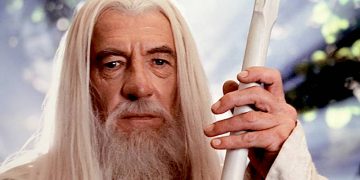
5. "You Can Shoot Me, But You Can't Kill Me" in Training Day (2001)
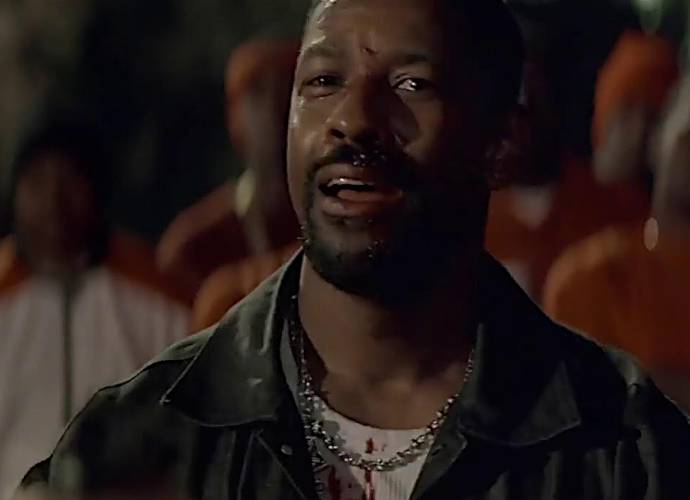
Denzel Washington is one of the most underrated actors of his era, proven by his immense performance as Alonzo Harris.
In this climactic scene, he's finally turned on by the hood from which he claims to hail. It causes him to break down, resulting in a monologue that's breathtaking as Washington enunciates every syllable.
As a bonus, it also gave us the now iconic line: "King Kong ain't got shit on me!" Legendary.
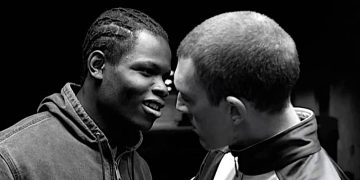
4. The U.S.S. Indianapolis Speech in Jaws (1975)
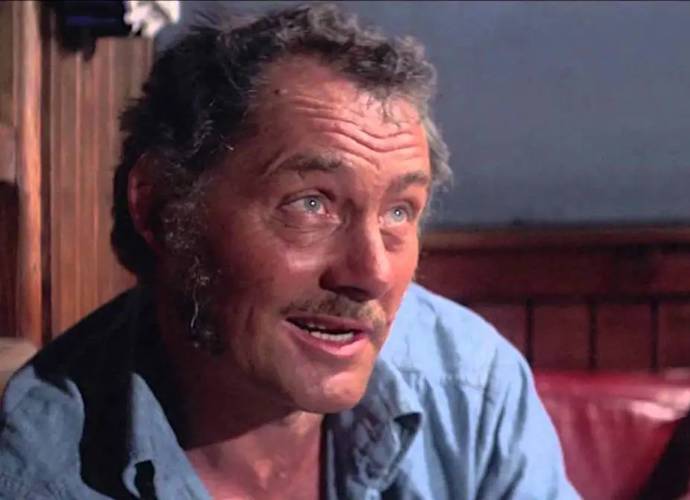
Talk about character development! Quint's dramatic turn from drunken sailor regaling old fishing stories to divulging the horrific origins of one of his scars is the stuff that cinema is made of.
On the U.S.S. Indianapolis, a torpedo puts all of his men into the water. It isn't long before a shiver of sharks appears and starts picking off his men, one by one, down into the depths.
Between screams in the dark and blood in the water, it isn't long before people start wondering if they'll survive the night of horror. It's all dramatically recounted in this spectacular monologue.
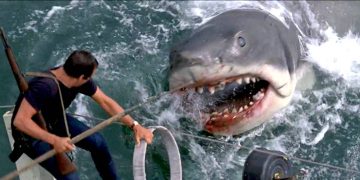
3. "I Don't Have Anything Big to Say" in Manchester By the Sea (2016)
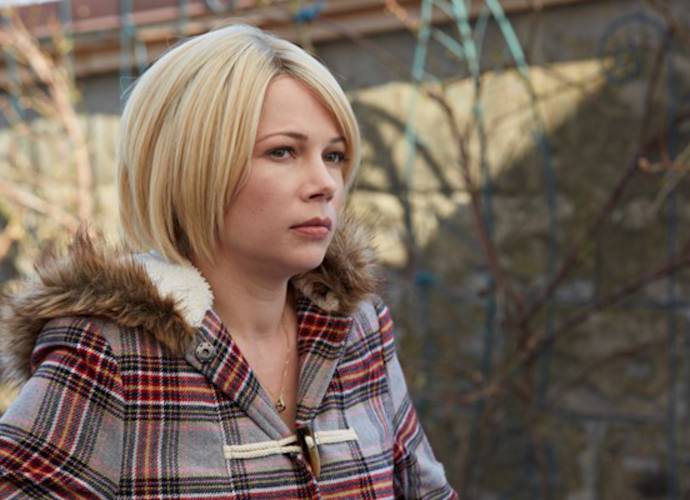
Carey Mulligan isn't in Manchester By the Sea for long, but she does an amazing job stealing the show with this powerful portrayal of grief.
When Randi bumps into Lee on a walk, it stirs up old feelings. She knows that she has things to say, but can't quite verbalize them.
"I don't have anything big to say."
Then, of course, it all tumbles out into one of the best written and exquisitely performed movie monologues of all time. Her voice choked with emotion, sure to reduce anyone watching to tears.
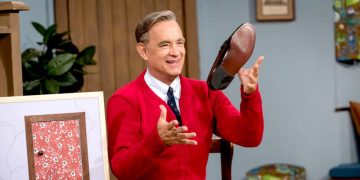
2. Tears in Rain Monologue in Blade Runner (1982)
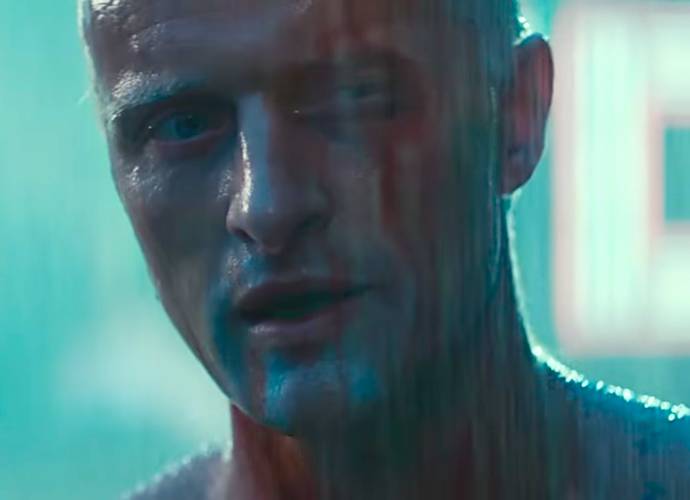
The ending scene from Blade Runner —of the lead Replicant bad guy waxing philosophical in the rain—is still one of the most iconic scenes in movie history, let alone among sci-fi movies.
Apparently, Rutger Hauer wrote this speech on the fly in his trailer. He convinced director Ridley Scott, who wanted nothing to do with it, to sit down and give it a listen. Ridley Scott was, of course, blown away... and the rest is history.
1. "Here's Looking at You, Kid" in Casablanca (1942)
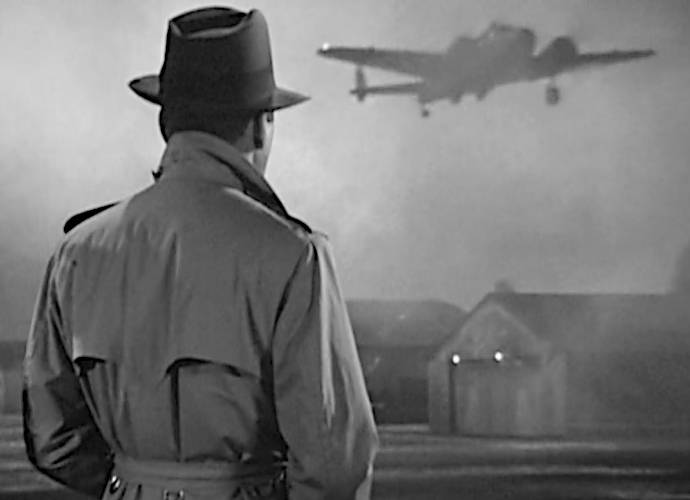
How could there be any other choice for best movie monologue than Rick Blaine's iconic monologue in Casablanca ?
Rick and Ilsa may have been desperately in love with each other, but that doesn't amount to a hill of beans in this crazy world. After Rick realizes this, he tells her that they can never be.
It's one of the most heartbreaking monologues ever put to film, and it ends with one of the most classic lines ever uttered:
"Here's looking at you, kid."
Though it inspired countless imitators, there has never been—nor will there ever be—a monologue as moving as the one in Casablanca . It's a clear winner for best movie monologue of all time.

I Was There For the Best Graduation Speech of All Time. The Last 3 Words Mattered Most
They're the secret weapon of emotional intelligence.
This story is about how to give an amazing speech -- one that people will remember fondly, literally decades later.
Bottom line upfront, it's all about emotional intelligence . And I watched it happen in real time.
Let's set the stage. When I was a college junior, the graduation speaker at my university was Billy Joel. This was a big deal. My class wondered how the university could possibly top that for our graduation.
- Would our speaker also be a well-known musician?
- Or maybe a brilliant author, or a hall of fame athlete?
- Maybe a celebrity that would make our friends at other colleges envious?
Nope! We were the 50th graduating class at Fairfield University in Connecticut, and the university celebrated by asking a retiring political science professor to speak.
The professor, whose memorable name was Carmen Donnarumma, was well-respected, and he was known for the catch phrase he'd ended every class with for years: " Thanks for bearing with the boring. I'm free for lunch. "
But, it seemed a little less special for our graduation speaker to be a professor that some of my classmates had already heard speak, two or three times a week for a semester or more.
On the beautiful, sunny morning of our graduation all those years ago, Donnarumma had his work cut out.
He started by acknowledging that he was an unusual choice, and he went through some themes that could have been part of many speeches: "community, celebration, proclamation, and service."
But then, he ended it all with an emotionally intelligent power move -- a closing that ensured the audience was completely on his side:
"Even when I go for my ultimate departure, I shall still be here. You will know it. Because you and I have eternally been joined in that great Fairfield tradition, that community that neither one of us will ever leave. So I'll say unto you like I did at the end of every class: I thank you for bearing with the boring. And remember: I love you. "
Those last three words: "I love you." Here we are three decades later, and it still hits me.
They're the most powerful and memorable words in the English language. If you can use them correctly and authentically when they're not expected, they're the secret weapon of emotional intelligence.
(Obviously, we mean "platonic" love, not "romantic" love.)
I asked a few classmates from back then if they remembered Donnarumma's speech; every single one of them recalled the final line fondly.
Also, the university PR department was kind enough to dig up a recording for me; indeed, I'd remembered his remarks verbatim, 32 years later.
Personally, I think this is probably the best graduation speech of all time.
Obviously, that's a subjective assessment, and perhaps maybe my impression is colored because it was my graduation. Not many people have heard it -- because Donnarumma, who died in 2013, wasn't well-known and didn't get a lot of media coverage back then.
Still, that only makes his speech more impressive. He really did have to overcome audience expectations, and build rapport. His three-word ending really did make it all work.
As a writer for Inc.com, I've watched, listened to, and written about hundreds of speeches like this over the years. I have a pretty good basis for comparison.
There are a lot of very bad graduation speeches ever year (not naming any names).
We were fortunate to hear what we heard that day.
As I write in my free e-book, 9 Smart Habits of People With Very High Emotional Intelligence , the easiest way to improve emotional intelligence is through your language -- thinking ahead of time of the quick, powerful phrases that help you leverage emotions in order to improve the odds that you'll achieve your goals.
The "I love you" twist that Professor Donnarumma used at the end all those years ago is difficult to pull off. But if you can do it with authenticity, I guarantee your audience will remember you fondly.
And maybe somebody will write an article about your speech 32 years later, too. See you in 2056.
This post originally appeared at inc.com .
Click here to subscribe to the Inc. newsletter: inc.com/newsletters "

Harrison Butker Said His Benedictine College Commencement Speech Taken 'Out of Context'?
According to online posts, butker supposedly clarified in a statement, "all i said is that we should go back to a better time, like the 50s and 60s.", jordan liles, published may 16, 2024.
About this rating
On May 16, 2024, numerous users on Facebook , TikTok and X reposted a quote meme featuring a purported statement from Kansas City Chiefs kicker and 3-time Super Bowl champion Harrison Butker. The statement supposedly constituted Butker's response to some backlash following his May 11 commencement speech at Kansas' Benedictine College, a private Catholic liberal arts school.
In one post on X displayed to over 1 million users, the viral quote meme showing a photo of Butker read, "Everyone is taking what I said out of context. All I said is that we should go back to a better time, like the 50s and 60s. When men were men, and women had more babies than thoughts. When the only 'Me too' movement was one woman saying she was ready for her 4th child, and another woman agreeing." The end of the meme added Butker's name with the words "on setting the record straight."

A TikTok video promoting the quote meme as genuine also received more than 800,000 views within five hours of being uploaded, making it another one of the more prominent reposts.
However, Butker did not release a statement with these words, nor did he appear to publicly release any statements following his speech. A closer look at the quote meme reveals a watermark for "@TheSportsMemery" — a reference to the Facebook page named The Sports Memery. The Facebook page's description describes its output as containing satire and parody.
The Associated Press reported Butker's speech featured some remarks on the subjects of women and motherhood, Pride month, in vitro fertilization (IVF) and President Joe Biden's policies regarding abortion and the COVID-19 pandemic, among others.
Readers looking to watch Butker's address in its original form can find the full, unedited speech in a video posted on the Benedictine College YouTube channel. The video ends with many of the people in attendance giving Butker a standing ovation.
The National Catholic Register also published a complete transcript of the address.
"Chiefs Kicker Butker Congratulates Women Graduates and Says Most Are More Excited about Motherhood." The Associated Press , 16 May 2024, https://apnews.com/article/kansas-city-chiefs-harrison-butker-e00f6ee45955c99ef1e809ec447239e0.
"Full Text: Harrison Butker of Kansas City Chiefs Graduation Speech." NCR , 16 May 2024, https://www.ncregister.com/news/harrison-butker-speech-at-benedictine.
"Harrison Butker | Commencement Address 2024 | Benedictine College." YouTube , Benedictine College, 11 May 2024, https://www.youtube.com/watch?v=-JS7RIKSaCc.
May 17, 2024: This report was updated to add the five words appearing under Butker's name in the quote meme.
By Jordan Liles
Jordan Liles is a Senior Reporter who has been with Snopes since 2016.
Article Tags
The 10 Most Underrated Nickelodeon Shows, Ranked
We need more people to experience the true joy of Binyah-Binyah!
Nickelodeon, also fondly known as Nick, is one of the most popular networks for children's and teen television. While Nick got its start in 1979, it's peak essential programming started in the 90s and continued into the early 2000s. This kicked off Nickelodeon's green slime era, filled with slapstick sitcoms and goofy animated shows, which separated it from its competitor, The Disney Channel. Some Nick shows took off quickly, like iCarly , and became extremely popular, but others fizzled out after a few seasons.
In Nickelodeon's vast catalog of programming, there are a few TV shows that weren't recognized as much as they should have been for their memorable characters, premises, and entertaining plots. After all, children's TV is a pretty competitive market, and many of these shows are underrated due to being overshadowed by other Nick shows which aired at the same time. Now, many of these "forgotten" Nick shows are getting the appreciation they deserve.
10 The Tiny Chef Show
Creators: rachel larsen, ozlem "ozi" akturk, and adam reid.
Cooking shows, especially ones for kids, need a good premise to keep the attention of little ones, and The Tiny Chef Show, a stop-motion/live action show by Nick Jr., does just that and much more. Chef, voiced by Matt Hutchinson , a little herbivore who lives in a tree, cooks tiny dishes for his friends. In each episode, Chef, Olly, voiced by Odessa A'zion , his best friend who happens to be a robot, the snail Henry, and Ruby, a little fuzzy caterpillar, go on fun tiny culinary adventures.
Olly and Chef are a quirky little dynamic duo as they dance, sing, and cook around the kitchen.
The Tiny Chef Show is one of the most adorable shows on Nick. It's a joyful and upbeat show which celebrates friendship and food. From the tiny stove to the little spoons, the show's set and characters are extremely detailed, and it's fun to look closely at the background to take in every single detail. Olly and Chef are a quirky little dynamic duo as they dance, sing, and cook around the kitchen. There's even an in-house band that plays catchy music throughout the show. Adults will be just as entertained with guest appearances from celebrities like Kristen Bell and Danny Trejo , during the show's Dish with Chef segment, and iconic commentary from the show's announcers ( RuPaul , Alan Cumming , and Nicole Beyer ).
The Tiny Chef Show can be streamed on Fubo in the U.S.
WATCH ON FUBO
9 Ned’s Declassified School Survival Guide
Creator: scott fellow.
Middle school is pretty tough to navigate without a guide. So, Ned Bigby ( Devon Werkheiser ) creates a guide to share his tips on how to survive middle school. In Ned's Declassified School Survival Guide , Ned and his friends Moze ( Lindsey Shaw ) and Cookie ( Daniel Lee Curtis ) deal with Vice-Principal Crubbs, bullies, schoolwork, and first crushes.
In the early aughts, Nickelodeon had its fair share of teen shows set in schools, such as Victorious and Zoey 101 , but these hit shows were set in schools that seemed too good to be true. These schools were too fancy and over-the-top. However, James K. Polk Middle School was the opposite; the setting felt a bit more realistic. It truly saved the school show, and made the genre fun again . But, Ned's Declassified School Survival Guide didn't need to be completely realistic. This quirky comedy with its cartoon-like sound effects and slapstick antics made it standout from the more popular Nick shows.
Ned's Declassified School Survival Guide can be streamed on Netflix in the U.S.
WATCH ON NETFLIX
8 Every Witch Way
Creators: mariela romero and catharina ledeboer.
Like its title suggests, Every Witch Way, adapted from Grachi , is a show about teenage witches. Emma Alonso ( Paola Andino ) moves to Miami with her father, and she is enrolled in Iridium High. While she is dealing with adjusting to her new life, she finds out that she is a witch, and to make matters worse, she is the Chosen One, the most powerful witch. But, Emma isn't the only witch at her school; Maddie Van Pelt ( Paris Smith ) comes from a long line of witches. At the beginning, Maddie and Emma develop a rivalry as they both seek the affections of Daniel Miller ( Nick Merico ) and try to keep their magic a secret.
Every generation has their teenage witch show. There aren't too many supernatural shows on Nickelodeon and far fewer with witches. It could be that Every Witch Way didn't get as much credit as it did due to being overshadowed by the popularity of Disney's Wizards of Waverly Place, which aired around the same time. Every witch show needs to have a great sense of world building, and Every Witch Way does exactly that. There are witches who are watched over by Guardians, powerless witches, and Kanays, humans who have powers over natural elements. The lore is pretty evolved, which makes it an ideal show for anyone who loves fantasy. The show's drama is like a telenovela and the drama creates great tension between characters.
Every Witch Way can be streamed on Paramount+ in the U.S.
WATCH ON PARAMOUNT+
7 My Life As A Teenage Robot
Creator: rob renzetti.
In 2003, Nickelodeon added My Life As A Teenage Robot to the Nicktoon lineup. Jenny ( Janice Kawaye ) wants to be a normal teenager. It's hard to be normal when your mom, Dr. Nora Wakeman ( Candi Milo ), created you to protect the Earth. When she isn't battling villains like Vexus ( Eartha Kitt) , the Cluster, or even the Space Bikers, Jenny loves to hang out with her friends, Brad Carbunkle ( Chad Doreck ), Sheldon Lee ( Quinton Flynn ), and Brad's younger brother, Tuck ( Audrey Wasilewski ).
One of the most underrated Nicktoons is definitely My Life As A Teenage Robot . While it didn't see as much success as the more popular Nicktoons, it's grown to be a beloved classic. First off, the opening theme song is catchy with its pop-punk aesthetic. But, it's not just the opening theme that makes this cartoon fun. The animation is well done, and looks like a fifties cartoon. The talented voice cast does an excellent job of creating likable characters, and the writers balanced epic sci-fi adventures with Jenny's everyday life.
My Life as a Teenage Robot
My Life As a Teenage Robot can be streamed on Paramount+ in the U.S.
6 The Haunted Hathaways
Creator: robert peacock.
The Haunted Hathaways premiered in 2013, and it ran for just two seasons. Michelle Hathaway ( Ginifer King ) relocates her family to New Orleans, where she opens up a bakery, Pi Squared. Her daughters, Taylor ( Amber Frank ) and Frankie ( Breanna Yde ), discover that their new house is haunted by a family of ghosts, The Prestons. The father, Ray ( Chico Benymon ), and his sons, Miles ( Curtis Harris ) and Louie ( Benjamin Flores Jr. ), form a friendship with the Hathaways, and they decide to live together in the house.
Since it is a children's show, The Haunted Hathaways is more fun than scary. Although it can be cheesy with the laugh track, it's an upbeat supernatural comedy for the whole family. Haunted Hathaway fans love the goofy antics between Louie and Frankie, and that alone makes this Nick show worth a watch. There's even an action-packed crossover episode between The Thundermans and The Haunted Hathaways .
The Hunted Hathaways can be streamed on BET+ in the U.S.
WATCH ON BET+
5 The Mystery Files of Shelby Woo
Creator: alan goodman.
The Mystery Files of Shelby Woo was a SNICK (Saturday Night Nickelodeon) staple which was a programming block geared towards teens, in the late 90s. The show ran from 1996 to 1998 for four seasons. The first season was set in Cocoa Beach, Florida, and the second season was in Boston. The show starred Irene Ng as Shelby Woo and Pat Morita, of Karate Kid fame, as her grandfather. When she wasn't at school or working with Grandpa Woo at the inn, Shelby helped out as a civilian at the police station. Shelby solves the mysteries with assistance from her friends, Noah Allen and Cindy Ornette, much to the disapproval of Grandpa Woo and Detective Whit Hineline.
It was also a big step in Asian representation, at a time when shows were not diverse.
The show was around the same time as another show, The Secret World of Andy Mack , which was also about a young intelligent woman solving mysteries. It was also a big step in Asian representation, at a time when shows were not diverse. What's unique about The Mystery Files of Shelby Woo is that it encourages people to solve the mysteries alongside Shelby, and it kept fans guessing about whom the true culprit was, which made the show engaging for anyone who loves to figure out a good mystery.
The Mystery Files of Shelby Woo can be streamed on Apple TV in the U.S.
WATCH ON APPLE TV
4 True Jackson, VP
Creator: andy gordon.
In True Jackson, VP , which ran for three seasons on Nickelodeon, 15-year-old True Jackson ( Keke Palmer ) is discovered by Max Madigan ( Greg Proops ), the President of Mad Style. Madigan likes True's sense of style, and makes True the Vice President of Youth Apparel. As True learns the ins and outs of the fashion world, she also must deal with being a teenager. She hires her best friend, Lulu ( Ashley Argota ), to be her assistant, and Ryan ( Matt Shively ), True's other best friend, helps out whenever he can.
Even though it is a show for pre-teens and teens, True Jackson, VP is one of those shows that adults would also enjoy watching. Some of the scenarios True and her friends get into are wacky, but that's part of the show's charm. It has The Devil Wears Prada energy minus the looming presence of Miranda Priestly. True Jackson, VP wouldn't be the show that it is without the talented Keke Palmer. Palmer is the queen of comedic timing, and she shines as the star of True Jackson, VP .
True Jackson, VP
True Jackson, VP can be streamed on Paramount+ in the U.S.
3 The Brothers García
Creators: jeff valdez, gibby cevallos, and mike cevallos.
The Brothers García ran for four years on Nickelodeon during the early 2000s. It was often compared to other family sitcoms, such as Malcolm in the Middle , which might be why it didn't take off as much as it did. The show's Wonder Years -like premise distinguished its storytelling from other teen sitcoms. The show is shown from the perspective of the youngest García sibling, Larry ( Alvin Alvarez ), as he tries to get along with his brothers, Carlos ( Jeffrey Licon ) and George ( Bobby Gonzalez ), and his sister, Lorena ( Vaneza Pitynski ), as they grow up in suburban San Antonio, Texas.
Despite these comparisons to similar sitcoms, the show quickly became a groundbreaking TV show for breaking down stereotypes about Mexican-American families. What made The Brothers García such an entertaining show was the cast's phenomenal comedic timing, as well as, the charming narration by John Leguizamo as adult Larry. A reboot of the show titled, The Garcías, was released on MAX in 2022 , but is no longer available.
The Brothers Garcia is currently not available for streaming or purchase.
2 As Told By Ginger
Creator: emily kapnek.
As Told by Ginger is narrated by Ginger Foutley ( Melissa Disney ), a young, creative red-headed girl who lives in Sheltered Shrubs with her mother Lois and brother Carl. The show follows Ginger, her best friends, Dodie ( Aspen Miller ), Macie ( Jackie Harris ), and Darren ( Kenny Blank ) from middle school through high school as they deal with typical teen drama. In junior high, Ginger is befriended by a popular girl, Courtney Gripling ( Liz Georges ), who wants to understand what it is like to be part of her clique.
Nick fans might recognize the animation style of As Told by Ginger, and that's because the show was produced by Klasky Csupo, known for other animated shows like Rocket Power and Rugrats . Although these shows were pretty popular, As Told By Ginger wasn't as well known at the time; however, it's starting to get more recognition due to a rise in Millennial cartoon nostalgia. The show tackles themes many other animated shows centering on teens at the time wouldn't have approached, such as mental health and divorce. This made As Told by Ginger a pretty relatable show for teens, and it is one of the biggest reasons why the show deserves a second look .
As Told By Ginger can be streamed on Paramount+ in the U.S.
1 Gullah Gullah Island
Creators: maria perez-brown, kathleen minton capano, and kit laybourne.
It's hard to think of Nick Jr. in the 90s without picturing Gullah Gullah Island. It was the first preschool children's show to feature a Black family. The show follows the adventures of Natalie ( Natalie Daise ), Ron ( Ron Daise ), their children, and their pet, the yellow Binyah-Binyah Polliwog ( Philip D. Garcia ) as they live and play on Gullah Gullah Island, a fictional island inspired by St. Helena Island off the coast of South Carolina.
The music is timeless, and each episode teaches important lessons in memorable ways. It also taught children about the Gullah culture, and even highlighted the Gullah language.
Gullah Gullah Island has become a classic for preschoolers and nostalgic for anyone who grew up watching the show when it aired. The music is timeless, and each episode teaches important lessons in memorable ways. It also taught children about the Gullah culture, and even highlighted the Gullah language. Even after the show ended, it continued to gain momentum as media outlets and fans to revisit Gullah Gullah Island and its effect on educating people about Gullah Geechee culture.
Gullah Gullah Island can be streamed on Parammount+ in the U.S.
KEEP READING: 10 Live-Action Nickelodeon Shows That Will Make You Feel Nostalgic
- CBSSports.com
- Fanatics Sportsbook
- CBS Sports Home
- Champions League
- Motor Sports
- High School
Football Pick'em
College Pick'em
Fantasy baseball, fantasy football, fantasy basketball, fantasy hockey, franchise games, pga championship.
- CBS Sports Golazo Network
- UEFA Champions League
- UEFA Europa League
- Italian Serie A
- Watch CBS Sports Network
- TV Shows & Listings
The Early Edge
A Daily SportsLine Betting Podcast
With the First Pick
NFL Draft recap
- Podcasts Home
- The First Cut Golf
- Beyond the Arc
- We Need to Talk Now
- Eye On College Basketball
- NFL Pick Six
- Cover 3 College Football
- Fantasy Football Today
- My Teams Organize / See All Teams Help Account Settings Log Out
Harrison Butker's jersey becomes Chiefs' best-seller after controversial commencement speech
Kansas city's kicker is seeing a bump in jersey sales after a polarizing speech at benedictine college.
Harrison Butker currently has the top-selling jersey on the Kansas City Chiefs following the controversial statements he made during a recent commencement speech at Benedictine College. As of Friday afternoon, sales of the veteran kicker's jersey are even outpacing those of teammates Patrick Mahomes and Travis Kelce, according to the official NFL Shop .
Listed among the "Top Sellers" on the official website, Butker's No. 7 jersey has gotten quite a bump after the kicker's polarizing remarks. CBS Sports has reached out to the NFL about the specific sales numbers.
The portion of Butker's commencement speech that got the most backlash were the comments he made about women being sold "diabolical lies" regarding their professional careers.
"I think it is you, the women, who have had the most diabolic lies told to you," Butker said. "Some of you may go on to lead successful careers in the world, but I would venture to guess that the majority of you are most excited about your marriage and the children you will bring into this world. I can tell you that my beautiful wife Isabelle would be the first to say her life truly started when she started living her vocation as a wife and as a mother."
The wide-ranging speech covered a number of other hot-button topics as well, including what Butker referred to as "dangerous gender ideologies," COVID-19 and abortion.
"The bad policies and poor leadership have negatively impacted major life issues," Butker said. "Things like abortion, IVF, surrogacy, euthanasia, as well as a growing support for the degenerate cultural values and media all stem from pervasiveness of disorder."
Jonathan Beane, the NFL's senior vice president and chief diversity and inclusion officer, issued a statement to CBS News about Butker's speech. "Harrison Butker gave a speech in his personal capacity," Beane said. "His views are not those of the NFL as an organization. The NFL is steadfast in our commitment to inclusion, which only makes our league stronger."
GLAAD also issued a statement , and said Butker's speech "a clear miss" and "woefully out of step with Americans about Pride, LGBTQ people and women," alluding to Butker's suggestion that Pride Month, which is June, celebrates a "deadly sin."
While Butker got criticized for the speech, he also received support from Tavia Hunt, the wife of Chiefs owner Clark Hunt. In a post on Instagram , Tavia Hunt backed up Butker's view on motherhood. "Affirming motherhood and praising your wife, as well as highlighting the sacrifice and dedication it takes to be a mother, is not bigoted," she wrote.
Our Latest NFL Stories
Tank Dell running routes after suffering gunshot wound
Jared dubin • 1 min read.
Commanders rookie 'happy' he gets to play with vets
Jared dubin • 2 min read.
Falcons, Eagles facing allegations of FA tampering
B.J. Ojulari explains why he gave up number to Marv
Dak Prescott to connect with fan whose life he changed
Garrett podell • 3 min read.
Report: Steelers' Heyward to skip OTA's over contract
Bryan deardo • 1 min read, share video.

Butker jersey sales top Chiefs after polarizing speech
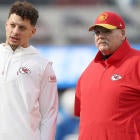
Chiefs' bizarre scheduling quirk, other 2024 oddities

The good, bad of each team's 2024 schedule

2024 season: Week-by-week schedule
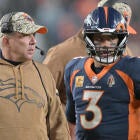
Top revenge games on 2024 schedule
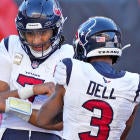
NFL executive breaks down season schedule
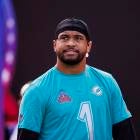
Tua not present at Dolphins activities as QB eyes deal

Hockenson: No timeline yet on return from knee surgery

Taylor Swift tour dates forced NFL to adapt schedule

NFL exec: Brady can call any game on the schedule

IMAGES
VIDEO
COMMENTS
Here are 12 speeches that were written but, for a variety of reasons, never delivered. 1. "In Event of Moon Disaster". As the world nervously waited for Neil Armstrong and Buzz Aldrin to land ...
Here are the most iconic speeches of all time. 1. Martin Luther King, I Have A Dream, 1963. 2. Margaret Thatcher, The Lady's Not For Turning, 1980. 3. Angelina Jolie, World Refugee Day, 2009. 4 ...
Famous Speeches and Great Talks. This list is organized by presenter name and then speech topic. Click the links below to jump to a specific speech. On each page, you'll find a full transcript of the speech as well as some additional background information. Chimamanda Ngozi Adichie, "The Danger of a Single Story"
The very best speeches change hearts and minds and seem as revelatory several decades or centuries removed as when they were first given. And now for the speeches. Contents . 1. Theodore Roosevelt, "Duties of American Citizenship" ... in God's good time, the New World, with all its power and might, steps forth to the rescue and the liberation ...
Delivered Jan. 20, 1993, in Washington D.C. Maya Angelou, a longtime supporter of the Clinton family, became the second poet (after Robert Frost in 1961), and the first African American poet, to read at a presidential inauguration.She delivered "On the Pulse of Morning" directly after President Bill Clinton gave his first address, a poem that spanned the entire history of America and ended ...
Let's take a closer look at ten of the best and most famous speeches from great moments in history. Abraham Lincoln, ' Gettysburg Address ' (1863). The Gettysburg Address is one of the most famous speeches in American history, yet it was extremely short - just 268 words, or less than a page of text - and Abraham Lincoln, who gave the ...
Eventually against all odds, she led England to victory despite their underdog status in the conflict with her confident and masterful oratory. 3. Woodrow Wilson, address to Congress (April 2, 1917) "The world must be made safe for democracy. Its peace must be planted upon the tested foundations of political liberty.
Full text and audio database of Top 100 American Speeches by Rank Order : MAIN LINKS: Home Page: Speech Bank: Top 100 Speeches: Great New Speeches : Obama Speeches: GWB Speeches: Movie Speeches ... A Time to Break Silence: Off-Site.mp3 : 44: William Jennings Bryan: Against Imperialism: mp3-Excerpt: PDF: 45: Barbara Pierce Bush: Wellesley ...
1963 'I Have a Dream' speech. The Reverend Martin Luther King, Jr. 's I Have a Dream speech, delivered on August 28, 1963, is one of the finest pieces of oratory in human history. It blended ...
Top 10 Greatest Speeches. As the political season heats up, TIME takes a tour of history's best rhetoric
Take the Free Assessment. One of the most powerful speeches of recent times, Barack Obama's election victory speech in 2008 marked a historic moment that brought hope, promised change and responsibility, in the anticipation of a better future. 5. Martin Luther King's 'I Have a Dream' Speech, 1963.
Martin Luther King's "I Have a Dream" Speech. "I have a dream" speech by Martin Luther King Jr., which was delivered on 28 August, 1963 at the steps of the Lincoln Memorial during the March on Washington for Jobs and Freedom, was a path-breaking moment for the Civil Rights Movement in America. Given to an audience of more than 200,000 ...
Jobs told graduates during his 2005 commencement speech that the key to success is finding what you love, and loving what you do. Key quotes: "Your time is limited, so don't waste it living ...
by Clarence B Jones. Read. 1 Franklin D Roosevelt's inaugural address, 4 March 1933 by Various authors. 2 John F Kennedy's inaugural address, 20 January 1961 by Various authors. 3 Laurence Olivier's Oscar Acceptance Speech (1979) by YouTube video. 4 Dr Martin Luther King, Jr's 'I Have a Dream' speech, 28 August 1963 by Martin Luther ...
13. Dwayne The Rock Johnson's eulogy for father Rocky Johnson, 'The show must go on'. Dwayne 'The Rock' Johnson was the source of two of the great speeches of 2020, one political, his 'where are you' critique of Trump in the aftermath of George Floyd's death, and one personal, an emotional tribute to father Rocky.
From Doctor Faustus to Fleabag, here are the most stirring speeches from some of theatre's best works. Miriam Gillinson. Fri 1 May 2020 04.00 EDT Last modified on Fri 1 May 2020 06.48 EDT.
Merritt Wever, 65th Primetime Emmy Awards (2013) Outstanding Supporting Actress in a Comedy Series, Nurse Jackie. The single greatest quick speech of all time came from a shock Emmy win for ...
Here are valuable pieces of advice from graduation speeches through history. Richard Feloni and Rachel Gillett contributed to a previous version of this article. Advertisement. "Our problems are ...
Joe Pesci Proves He Is a Man of Few Words. With just six words, Joe Pesci gave one of the most memorable Oscar speeches of all time. After winning Best Supporting Actor for Goodfellas in 1991, he ...
I deserve this, thank you.". Tom Hanks (Best Actor for "Philadelphia" in 1993) Red ribbons were everywhere at the 1993 Oscars as actors donned the crimson thread in honor of AIDS victims ...
A special moment for a special actress. 9. Patricia Arquette ('Boyhood') Equality among both the genders has been an issue that has found its voice with many-a-great personalities of our time. A similar war was waged by Patricia Arquette in her Oscar acceptance speech for her performance in 'Boyhood'.
The 20 Best Movie Speeches of All Time. Posted on November 28, 2016 November 28, 2016 by Jack Books. ... But what remained untouched was the criminally underrated war speech and storytelling of Spartan warrior and sole survivor Dilios (David Wenham). Sparred from the final battle, a result of an eye injury and the hopes of a King to inspire the ...
Related: The Best Movie Posters of All Time (That Are Iconic and Famous) 13. Group Therapy in Austin Powers: International Man of Mystery (1997) Click to watch this scene. This isn't just one of the greatest monologues of all time—it's also one of the funniest movie monologues ever. This might be the greatest moment in Mike Myers' acting career.
The 10 Most Underrated Characters in 'The Godfather' Trilogy, Ranked ... The 23 Best Romance Movies of All Time, Ranked According to IMDb Films perfect for a date night.
Those last three words: "I love you." Here we are three decades later, and it still hits me. They're the most powerful and memorable words in the English language. If you can use them correctly ...
Dog Soldiers. Underrated Horror Movies. Trick R Treat. Possessor. Top 10 Horror Movies. Orphan Movie. Trick R Treat Sam. Hush Movie. The Wailing.
Kansas City Chiefs kicker Harrison Butker said in a statement that his speech at a 2024 commencement at Benedictine College was taken "out of context," adding in part, "All I said is that we ...
Image via Nickelodeon. Cooking shows, especially ones for kids, need a good premise to keep the attention of little ones, and The Tiny Chef Show, a stop-motion/live action show by Nick Jr., does ...
Harrison Butker currently has the top-selling jersey on the Kansas City Chiefs following the controversial statements he made during a recent commencement speech at Benedictine College. As of ...